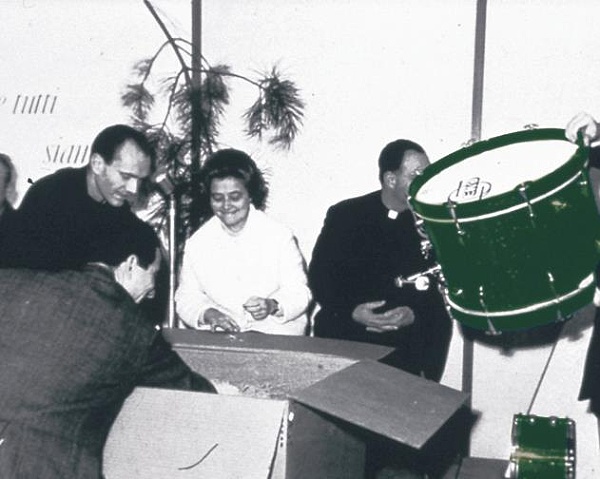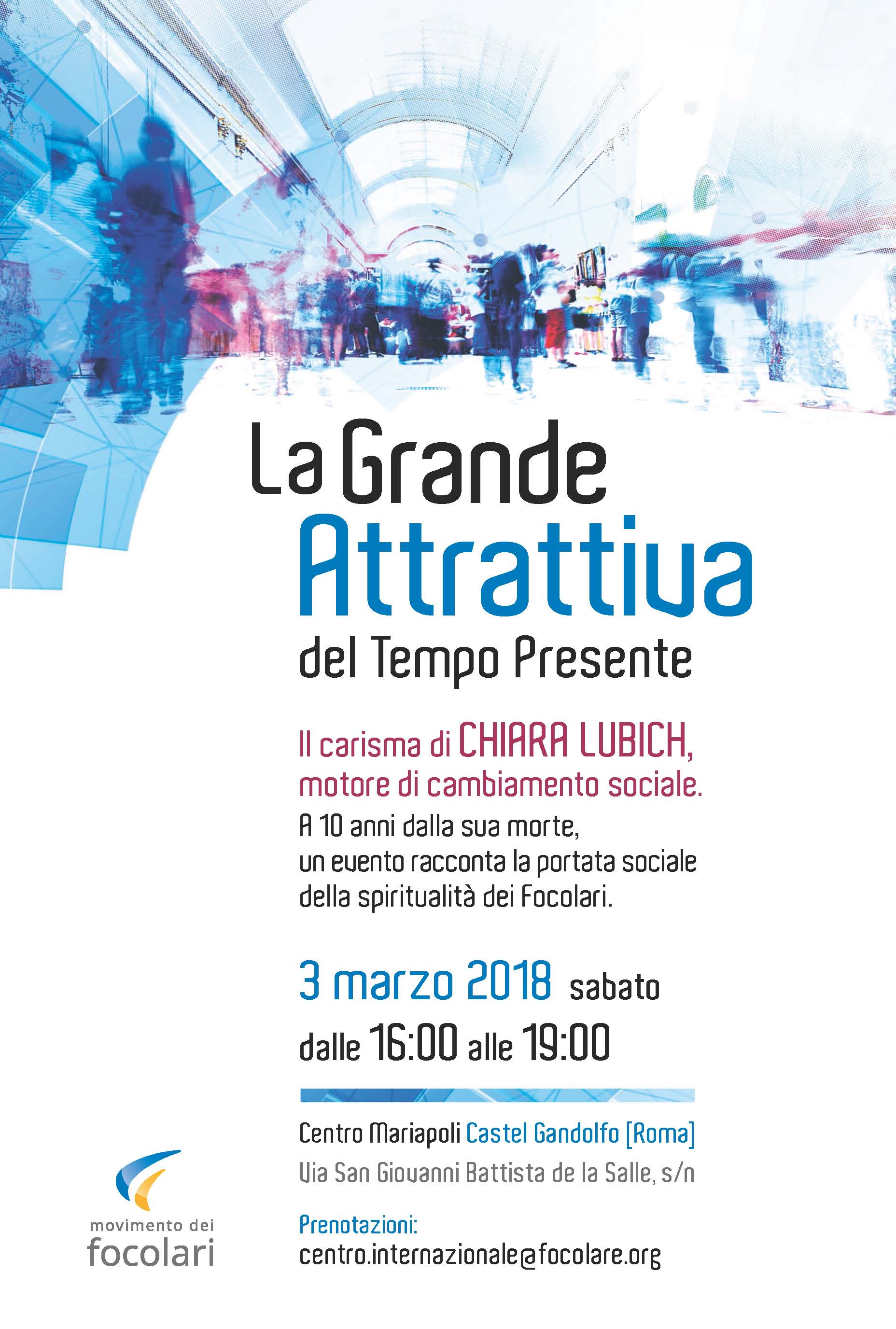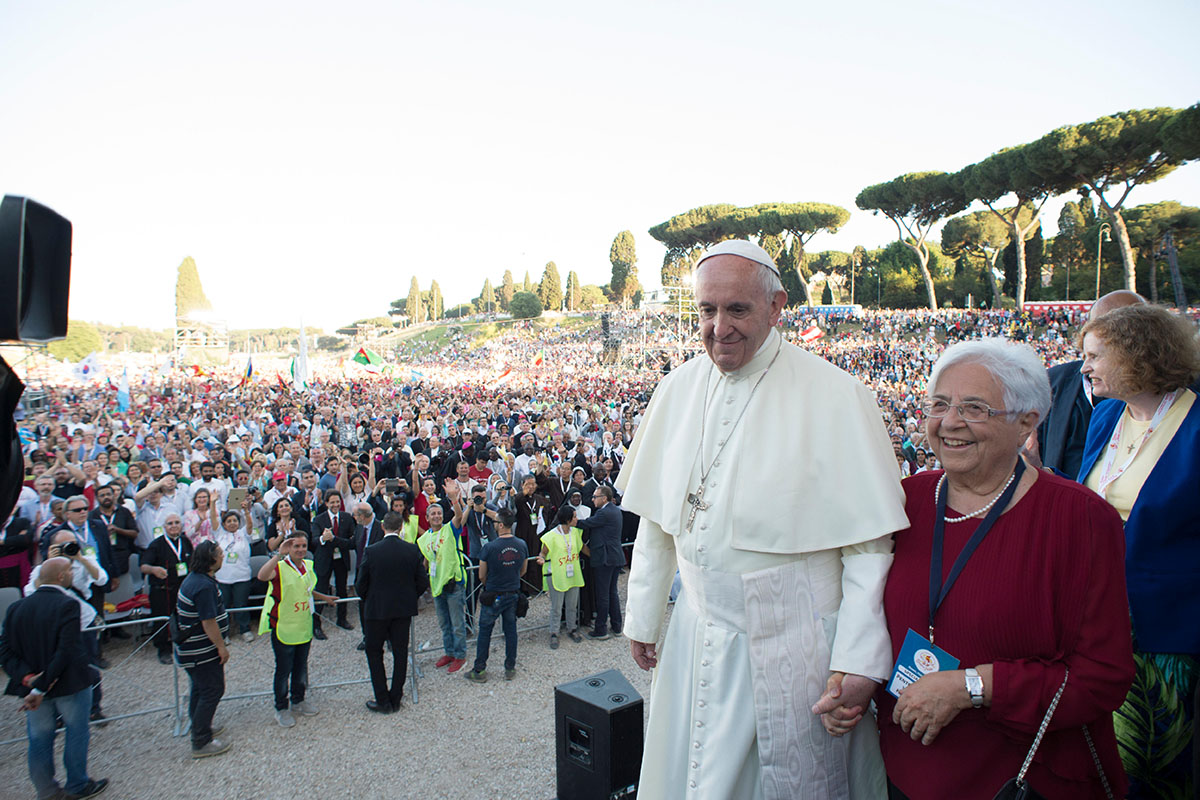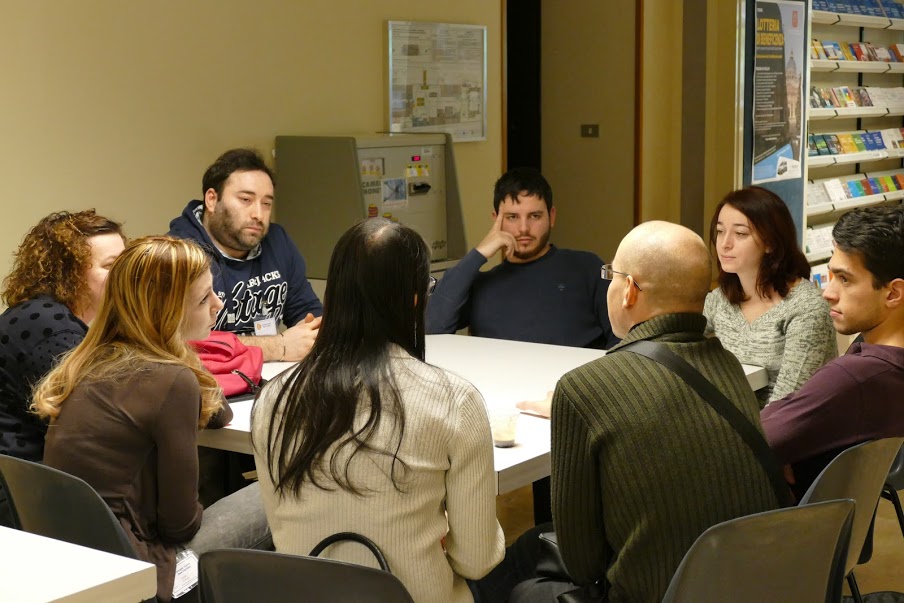
Engaged couples: The strength of personal witness
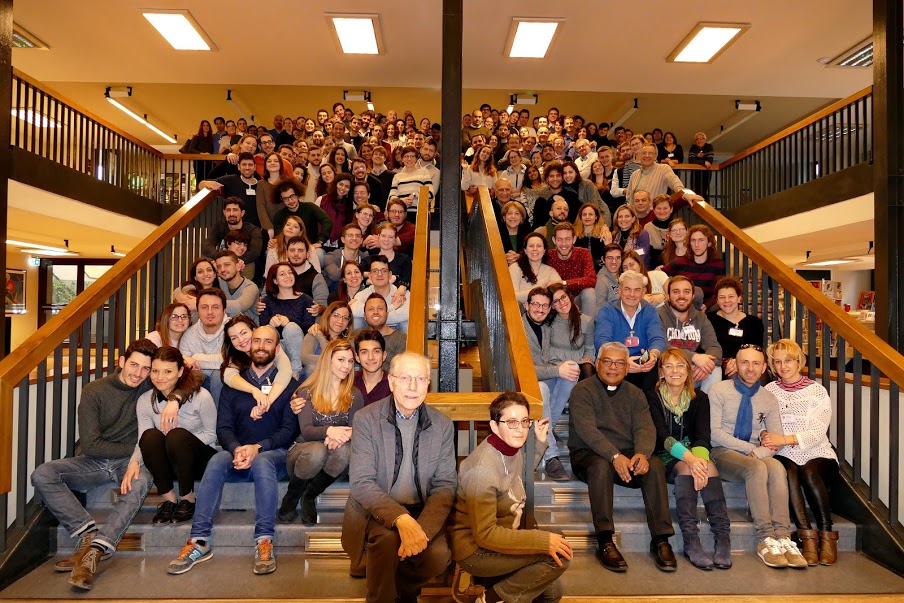 The international conference for engaged couples held in Castel Gandolfo (Rome) has just ended. It was organised by the New Families Movement of the Focolare, and attracted the participation of 65 couples. Besides addressing the issue of personal choice and identifying and overcoming crises in relationships, with a special focus on communication, affection and spirituality, what impressed most were the real-life stories shared by couples. One example was the experience shared by Massimo and Francesca from Rome, married for 17 years, both managers in a Telecom company and the latter, also a teacher of Italian to foreign students. Francesca: According to the doctors, we would not be able to have children, and even if there would be a pregnancy, the certainty of success would not be assured. It was a sentence without appeal. After a prior moment of distress, a reassuring conviction made its way: fertility lies not only in a biological capacity, but in being able to generate love around you. So we continued to bring ahead, with unchanged enthusiasm, the initiatives that had accompanied the choices we had made in our youth to work for others. We would also be open to life, albeit the fear of serial and traumatic miscarriage.
The international conference for engaged couples held in Castel Gandolfo (Rome) has just ended. It was organised by the New Families Movement of the Focolare, and attracted the participation of 65 couples. Besides addressing the issue of personal choice and identifying and overcoming crises in relationships, with a special focus on communication, affection and spirituality, what impressed most were the real-life stories shared by couples. One example was the experience shared by Massimo and Francesca from Rome, married for 17 years, both managers in a Telecom company and the latter, also a teacher of Italian to foreign students. Francesca: According to the doctors, we would not be able to have children, and even if there would be a pregnancy, the certainty of success would not be assured. It was a sentence without appeal. After a prior moment of distress, a reassuring conviction made its way: fertility lies not only in a biological capacity, but in being able to generate love around you. So we continued to bring ahead, with unchanged enthusiasm, the initiatives that had accompanied the choices we had made in our youth to work for others. We would also be open to life, albeit the fear of serial and traumatic miscarriage. 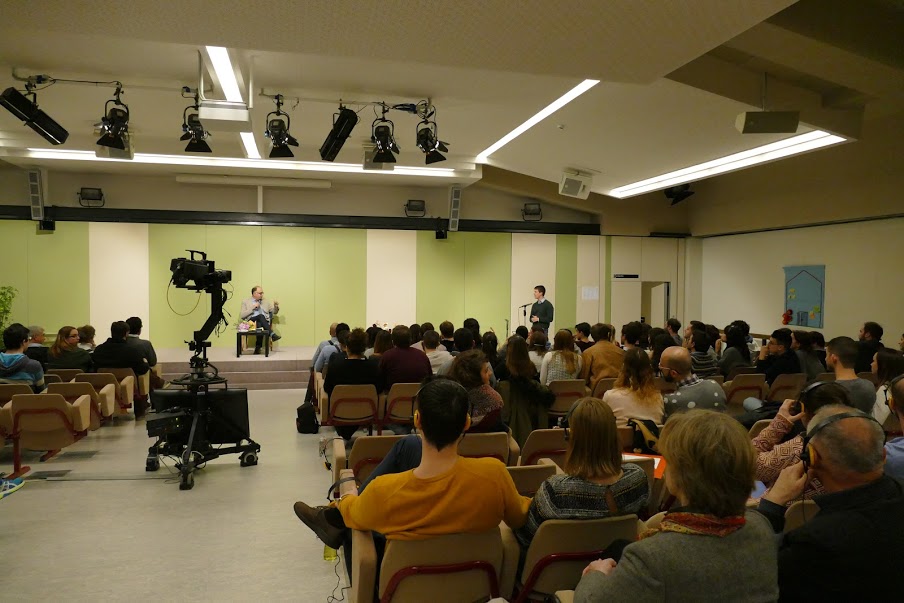 Two years had not passed when we discovered that we were expecting a baby. As foreseen, the pregnancy was difficult, and progressed despite the verdicts of the doctors who continued to remind us of the serious risks entailed and the care we had to take. In those difficult moments we prayed to God, the author of life, which made us even more conscious of the preciousness of that little bundle which wanted to grow inside me despite the severe opinion of the doctors. The doctors were astounded when at the end of term, Alessandro was born very healthy, and I too was well, though they even told us: now you have a child, do not dare venture beyond. Massimo: Instead we were still open to life and after a few years, a new pregnancy came up, followed by a new wave of amazement, skepticism and recommendations of the doctors. At the advanced stage, there was a suspicion of the Down syndrome, to be ascertained through an amniocentesis. Once again, despite the trauma of this news, we felt that the certainty of God’s love was stronger for us and our baby, to whom we wanted to give an unconditional welcome. Those were months of fear and distress which we again overcame by targeting not to remain entangled by the suffering but to live it as an occasion to love one another and all around us. At Matteo’s birth they told us that he did not have the Down syndrome, but a heart malformation which required hospitalization until when he could be operated, at four months of age.
Two years had not passed when we discovered that we were expecting a baby. As foreseen, the pregnancy was difficult, and progressed despite the verdicts of the doctors who continued to remind us of the serious risks entailed and the care we had to take. In those difficult moments we prayed to God, the author of life, which made us even more conscious of the preciousness of that little bundle which wanted to grow inside me despite the severe opinion of the doctors. The doctors were astounded when at the end of term, Alessandro was born very healthy, and I too was well, though they even told us: now you have a child, do not dare venture beyond. Massimo: Instead we were still open to life and after a few years, a new pregnancy came up, followed by a new wave of amazement, skepticism and recommendations of the doctors. At the advanced stage, there was a suspicion of the Down syndrome, to be ascertained through an amniocentesis. Once again, despite the trauma of this news, we felt that the certainty of God’s love was stronger for us and our baby, to whom we wanted to give an unconditional welcome. Those were months of fear and distress which we again overcame by targeting not to remain entangled by the suffering but to live it as an occasion to love one another and all around us. At Matteo’s birth they told us that he did not have the Down syndrome, but a heart malformation which required hospitalization until when he could be operated, at four months of age.  Francesca: In those four months, the fatigue, and above all the inability to face the pain of an innocent child, brought moments of misunderstanding between us. That propensity to love one another at times seemed to disappear, also because I wanted to stay in the hospital with Matteo and Massimo at home with Alessandro or at work. We saw each other only in the ward and often a wrong word sufficed to flare up. Massimo: One evening, after visiting them in the hospital, upon saying goodbye in the corridor both of us felt the need for a sincere, beneficial, heart-to-heart dialogue. We understood that among the many worries, the only one which should be heeded was that of loving each other. And even now, when the inevitable daily tensions seem to take the upper hand, we go back to remembering those moments of light in which also as a family, suffering has regenerated us to a truer love.
Francesca: In those four months, the fatigue, and above all the inability to face the pain of an innocent child, brought moments of misunderstanding between us. That propensity to love one another at times seemed to disappear, also because I wanted to stay in the hospital with Matteo and Massimo at home with Alessandro or at work. We saw each other only in the ward and often a wrong word sufficed to flare up. Massimo: One evening, after visiting them in the hospital, upon saying goodbye in the corridor both of us felt the need for a sincere, beneficial, heart-to-heart dialogue. We understood that among the many worries, the only one which should be heeded was that of loving each other. And even now, when the inevitable daily tensions seem to take the upper hand, we go back to remembering those moments of light in which also as a family, suffering has regenerated us to a truer love.
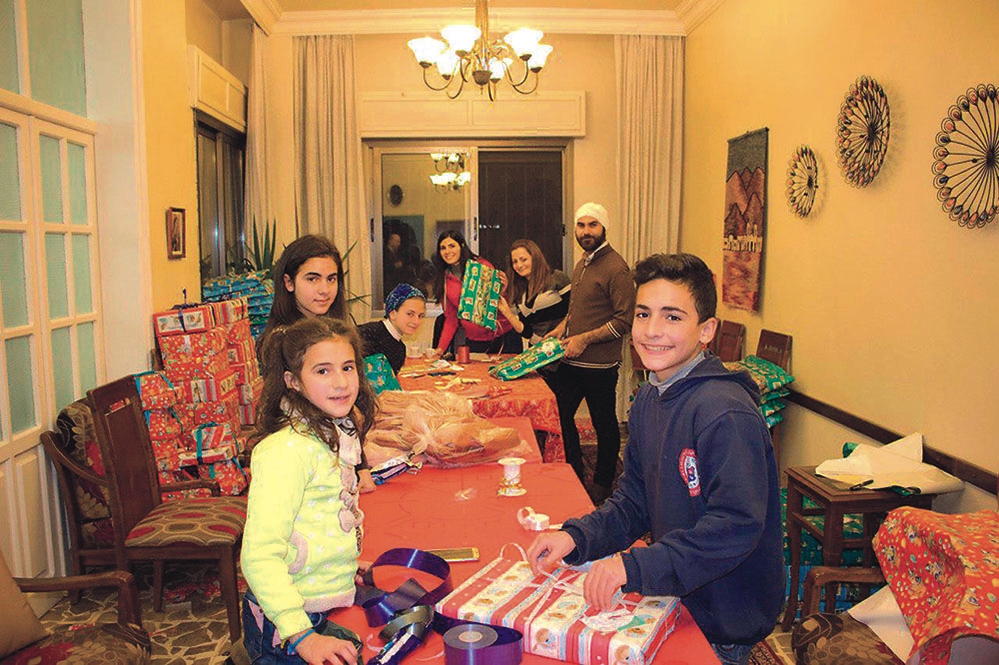
From Syria to Syria
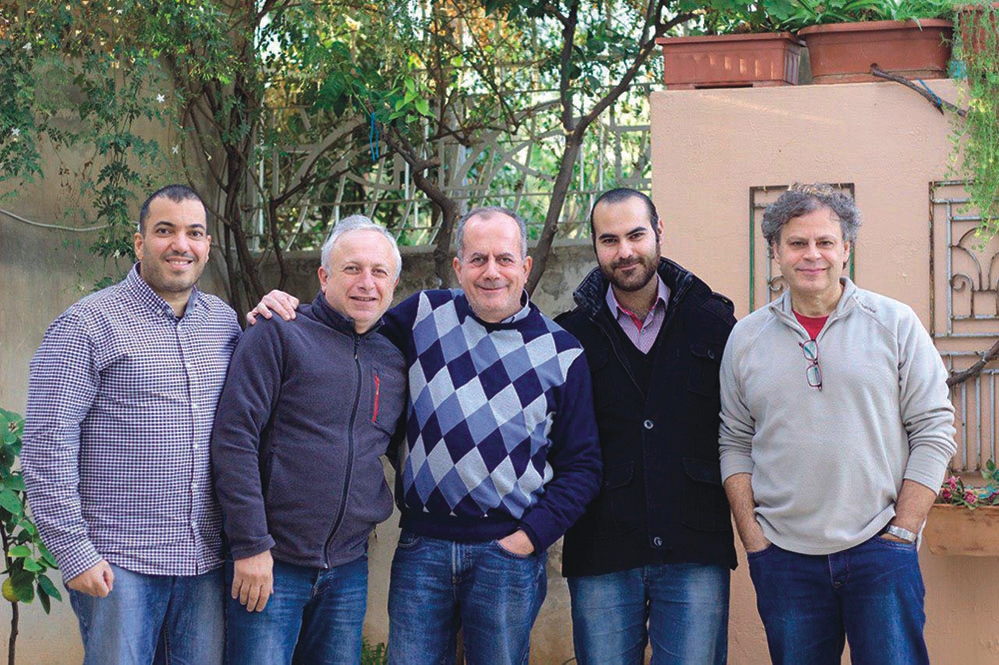
Robert Chelhod (centre) with the focolarini in Aleppo
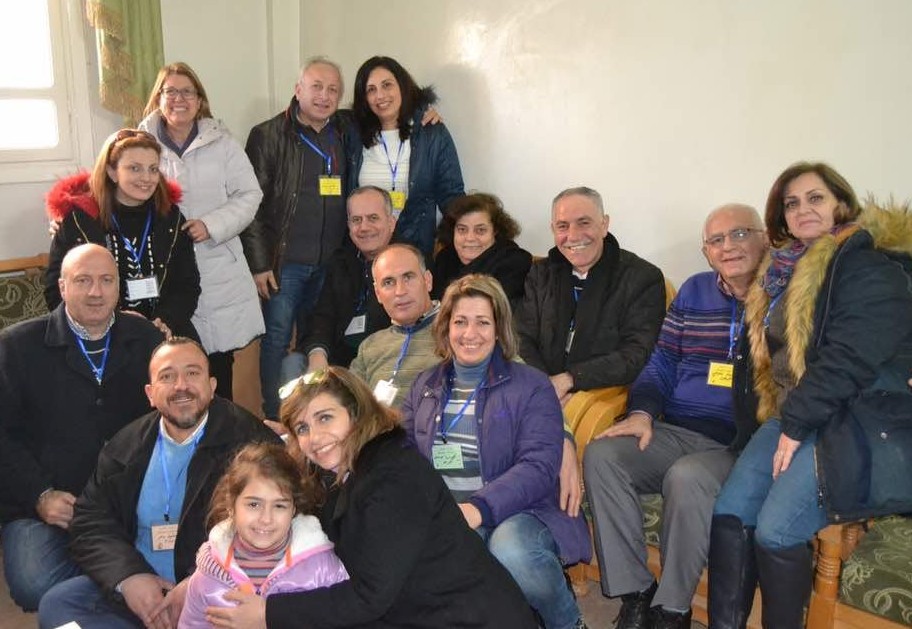 What can we do for Syria today? “For those who have faith, continue to pray. And you can bet with the Syrians that the country is alive. We need support in Syria. Not only from the economic point of view, which is certainly vital, but in believing that with us, this country, the cradle of civilisation, can be reborn. That peace is still possible. We need to know that the world feels our suffering, that of a country that is disappearing.” You coordinate onsite the social projects funded through AMU. How does this come about? “The projects range from aid for food to schooling. Then there is healthcare aid since public healthcare is unable to meet the minimum standards of assistance due to the lack of doctors, medicines and instruments. Besides help for families, there are more stable projects: two after-school organisations in Damascus and Homs with 100 children each, Christians and Muslims; two specific healthcare projects for the treatment of cancer and for dialysis; and a school for the deaf and dumb children, that was already operating before the war. These projects offer the possibility of work for many local youths. The employment issue is fundamental. We are dreaming in the near future of the possibility of working on microcredit to relaunch the activities. Aleppo was a city brimming with merchants who today would restart, but the initial capital is lacking.”
What can we do for Syria today? “For those who have faith, continue to pray. And you can bet with the Syrians that the country is alive. We need support in Syria. Not only from the economic point of view, which is certainly vital, but in believing that with us, this country, the cradle of civilisation, can be reborn. That peace is still possible. We need to know that the world feels our suffering, that of a country that is disappearing.” You coordinate onsite the social projects funded through AMU. How does this come about? “The projects range from aid for food to schooling. Then there is healthcare aid since public healthcare is unable to meet the minimum standards of assistance due to the lack of doctors, medicines and instruments. Besides help for families, there are more stable projects: two after-school organisations in Damascus and Homs with 100 children each, Christians and Muslims; two specific healthcare projects for the treatment of cancer and for dialysis; and a school for the deaf and dumb children, that was already operating before the war. These projects offer the possibility of work for many local youths. The employment issue is fundamental. We are dreaming in the near future of the possibility of working on microcredit to relaunch the activities. Aleppo was a city brimming with merchants who today would restart, but the initial capital is lacking.”  Instead many continue to leave… “The exodus, especially of the Christians, is irreversible. The reason is the insecurity, and lack of jobs. The Church suffers in this land which was a land of Christians before the arrival of Islam. And it is trying to do what is possible to help and support all this. But there are few resources. Most of the youths are in the army. You may find some university students, or kids. But the 25-40 age bracket is inexistent. In the city of Aleppo, the estimated further drop of Christians is 140,000 from 130,000, while many Muslims have arrived, evacuated from their destroyed cities.” What impact does this have on interreligious dialogue? “In Aleppo the Christians considered themselves somewhat like the élite of the country. With the war, since the Muslim zones were hit, many took refuge in the Christian zones. So the Christians opened out to the Muslims, and had to accept them. The Latin Bishop Emeritus of Aleppo, Bishop Armando Bortolaso, during the war told me: “Now’s the time to be real Christians.” At the same time the Muslims have got to know the Christians personally. They were touched by the concrete help. There are negative and positive aspects. The positive one is that this war has made us Syrians closer with one another.” Source: Citta’ Nuova Magazine
Instead many continue to leave… “The exodus, especially of the Christians, is irreversible. The reason is the insecurity, and lack of jobs. The Church suffers in this land which was a land of Christians before the arrival of Islam. And it is trying to do what is possible to help and support all this. But there are few resources. Most of the youths are in the army. You may find some university students, or kids. But the 25-40 age bracket is inexistent. In the city of Aleppo, the estimated further drop of Christians is 140,000 from 130,000, while many Muslims have arrived, evacuated from their destroyed cities.” What impact does this have on interreligious dialogue? “In Aleppo the Christians considered themselves somewhat like the élite of the country. With the war, since the Muslim zones were hit, many took refuge in the Christian zones. So the Christians opened out to the Muslims, and had to accept them. The Latin Bishop Emeritus of Aleppo, Bishop Armando Bortolaso, during the war told me: “Now’s the time to be real Christians.” At the same time the Muslims have got to know the Christians personally. They were touched by the concrete help. There are negative and positive aspects. The positive one is that this war has made us Syrians closer with one another.” Source: Citta’ Nuova Magazine
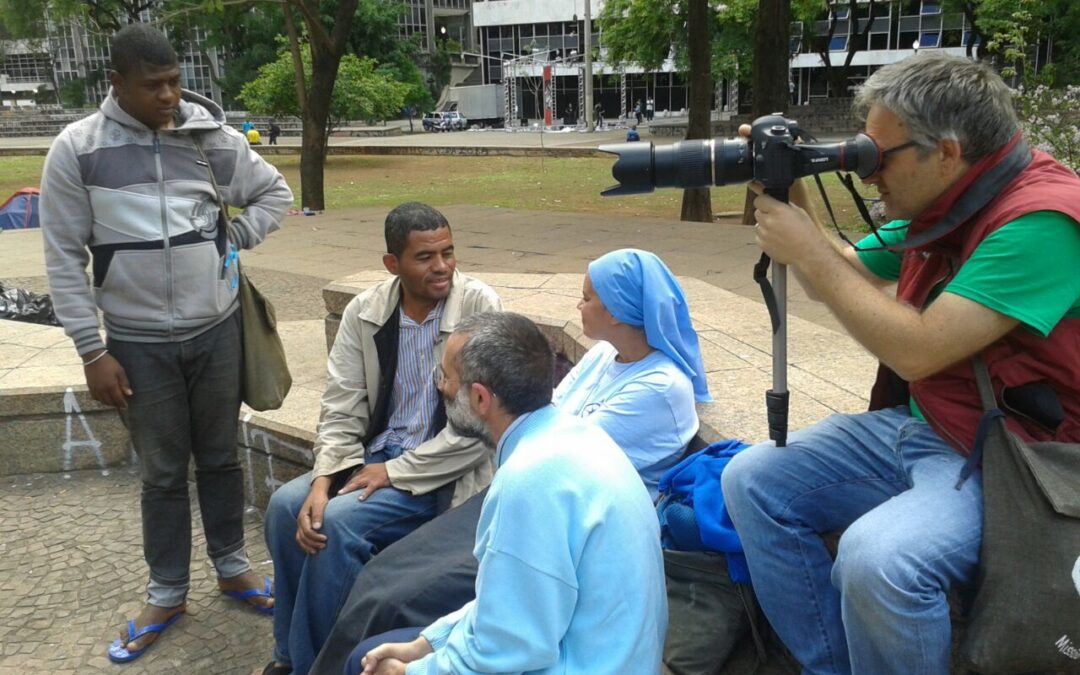
The protagonists are the least
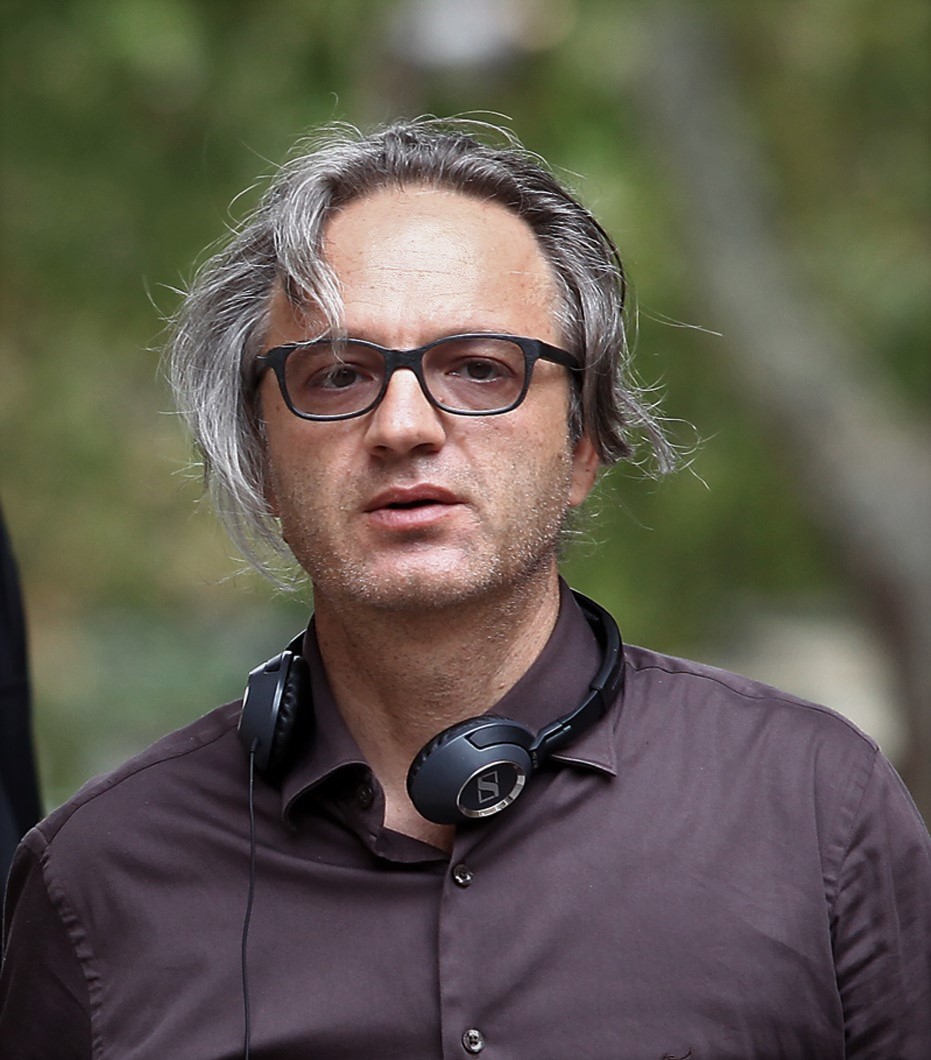 “I was only 12 when I met Chiara Lubich. If it hadn’t been for this friendship with her and for the charism of unity, I would not have persisted in such a strongly competitive environment full of quagmire. I have a deep gratitude for all those with whom I shared this challenge.” Fernando Muraca began his work as a theatre director and author after his university studies in Rome. After the success achieved in the direction of some episodes in two TV series, the debut in the world of cinema came along with a capital C. Among his most recent works we find “La Terra dei Santi” (The Land of Saints), an intense film on the role of women of the Mafia in Calabria, which received numberless awards and recognitions. Before a very attentive audience, Fernando recounted his story.
“I was only 12 when I met Chiara Lubich. If it hadn’t been for this friendship with her and for the charism of unity, I would not have persisted in such a strongly competitive environment full of quagmire. I have a deep gratitude for all those with whom I shared this challenge.” Fernando Muraca began his work as a theatre director and author after his university studies in Rome. After the success achieved in the direction of some episodes in two TV series, the debut in the world of cinema came along with a capital C. Among his most recent works we find “La Terra dei Santi” (The Land of Saints), an intense film on the role of women of the Mafia in Calabria, which received numberless awards and recognitions. Before a very attentive audience, Fernando recounted his story. 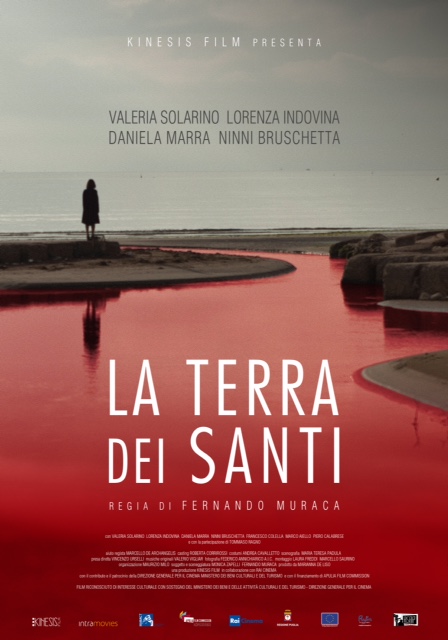 “One evening, I received an email from my friend, Giampietro, a missionary in Brazil. A long time ago I had shot for free, a documentary to collect funds for his community which engaged in saving women, men and children living under the bridges of São Paolo. In his email he asked if I was willing to leave my job for some years to document what was happening there. His mission then also addressed people who had fallen into the drug trap. The approach without prejudices and based on evangelical love, had already saved 10,000people destined to certain death. It was a result that really had to be documented.” Fernando continued – “In this email, Giampietro explained a backstory. A very rich man, after having put someone on his trail and having discovered who he really was, had decided to offer him half of his wealth. Having made a vow of poverty, Giampietro could not accept. But he had one wish: that I should go to Brazil to document the work of his mission. And so that man offered to pay for all the expenses, including the house bills in my absence.”
“One evening, I received an email from my friend, Giampietro, a missionary in Brazil. A long time ago I had shot for free, a documentary to collect funds for his community which engaged in saving women, men and children living under the bridges of São Paolo. In his email he asked if I was willing to leave my job for some years to document what was happening there. His mission then also addressed people who had fallen into the drug trap. The approach without prejudices and based on evangelical love, had already saved 10,000people destined to certain death. It was a result that really had to be documented.” Fernando continued – “In this email, Giampietro explained a backstory. A very rich man, after having put someone on his trail and having discovered who he really was, had decided to offer him half of his wealth. Having made a vow of poverty, Giampietro could not accept. But he had one wish: that I should go to Brazil to document the work of his mission. And so that man offered to pay for all the expenses, including the house bills in my absence.” 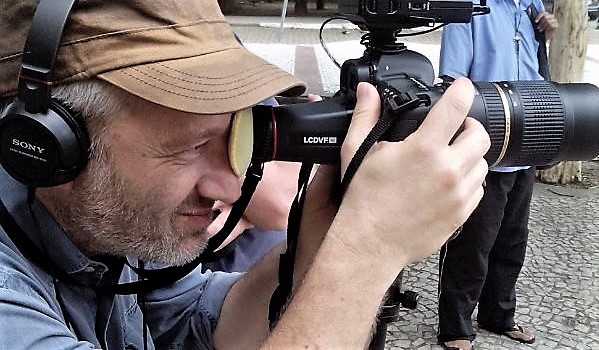 Fernando smiled: “It seems like a movie, I know, but it really happened.” And he continued: “I discussed it with my wife and our kids. It was a matter of leaving my work for two or three years, getting out of the business, putting my career at risk, with my wife having to attend to the family in my absence. She said she was ready to make this sacrifice if it would help to divulge the suffering of those people. And my eldest son said, ’Dad, we cannot look away.’ Also my friends encouraged me to accept. My film was just about to be shown in the cinemas, and I had to leave after 15 days. Pure folly. The feature film had a small distribution circuit. Without my presence to promote it, it may have died and I would have burnt my only chance for a career in the cinema world. But my son’s answer ‘We cannot look the other way’ was decisive for me.” “At the start, in São Paolo, it was almost impossible to shoot the film on the lives of people living under the bridges. They detested being photographed, much less filmed! To make them understand that I didn’t want to exploit their image I had to act like the missionaries. I also started to sleep under the bridges, to share their day, and in this way, they accepted. After a month, I returned to Italy for a break. The impact had been hard. I had to reflect about the material I was shooting and reorganize a new and longer trip. Meanwhile in Italy, all that I had foreseen really happened. Without funds for the promotion and without the presence of the director, my film was quickly disappearing from the cinema halls.
Fernando smiled: “It seems like a movie, I know, but it really happened.” And he continued: “I discussed it with my wife and our kids. It was a matter of leaving my work for two or three years, getting out of the business, putting my career at risk, with my wife having to attend to the family in my absence. She said she was ready to make this sacrifice if it would help to divulge the suffering of those people. And my eldest son said, ’Dad, we cannot look away.’ Also my friends encouraged me to accept. My film was just about to be shown in the cinemas, and I had to leave after 15 days. Pure folly. The feature film had a small distribution circuit. Without my presence to promote it, it may have died and I would have burnt my only chance for a career in the cinema world. But my son’s answer ‘We cannot look the other way’ was decisive for me.” “At the start, in São Paolo, it was almost impossible to shoot the film on the lives of people living under the bridges. They detested being photographed, much less filmed! To make them understand that I didn’t want to exploit their image I had to act like the missionaries. I also started to sleep under the bridges, to share their day, and in this way, they accepted. After a month, I returned to Italy for a break. The impact had been hard. I had to reflect about the material I was shooting and reorganize a new and longer trip. Meanwhile in Italy, all that I had foreseen really happened. Without funds for the promotion and without the presence of the director, my film was quickly disappearing from the cinema halls. 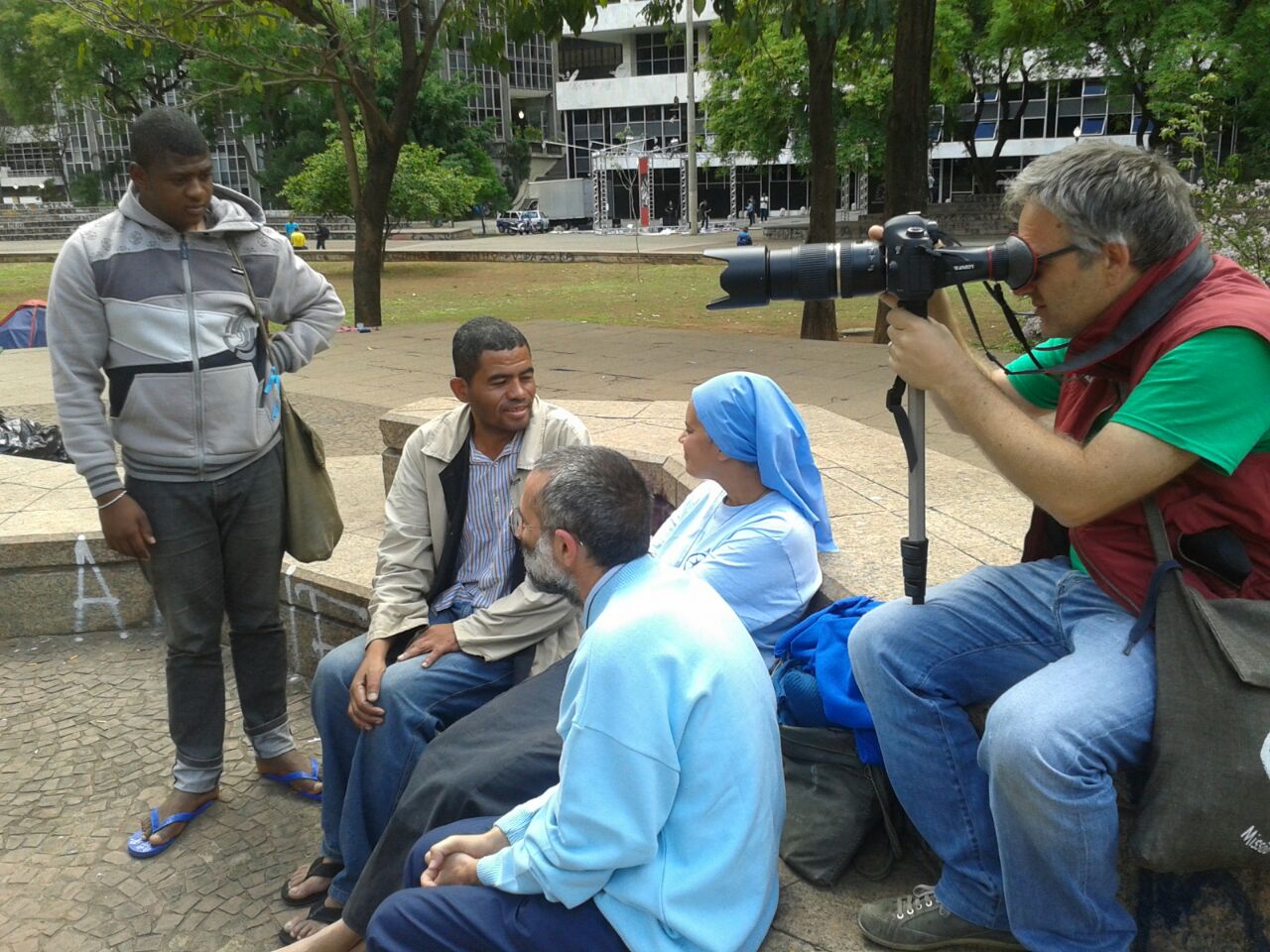 Then came an unexpected event. In Rome, on the last day of the projection, an important film critic showed up. The day after, on a national newspaper, in both the online and paper editions, two very positive reviews were published. They began sending the film to the film festivals in Italy and abroad. It won many prizes, some of which were very prestigious. Three years have passed since then. Upon terminating the work in Brazil, I started once again to take hold of the reins of my life. I didn’t shoot other films, but have many coming up on topics I had never had the courage to deal with. I wrote two novels and an essay on the experience of the “incarnation” of my ideals in art. I also developed a project to dedicate myself to the youth. In this “trade” one needs comfort, encouragement, and also reference points.” Chiara Favotti
Then came an unexpected event. In Rome, on the last day of the projection, an important film critic showed up. The day after, on a national newspaper, in both the online and paper editions, two very positive reviews were published. They began sending the film to the film festivals in Italy and abroad. It won many prizes, some of which were very prestigious. Three years have passed since then. Upon terminating the work in Brazil, I started once again to take hold of the reins of my life. I didn’t shoot other films, but have many coming up on topics I had never had the courage to deal with. I wrote two novels and an essay on the experience of the “incarnation” of my ideals in art. I also developed a project to dedicate myself to the youth. In this “trade” one needs comfort, encouragement, and also reference points.” Chiara Favotti
Lent, A Time Of Conversion
For the Catholic Church and other Christian Churches, the season of Lent is about to begin. Lent is a period of the liturgical year, which comes just before the celebration of Easter. It lasts from February 14th to March 29th in the Roman Rite. Lent is seen as an invitation to conversion toward God. It lasts for 40 days, a number that occurs rather often in the Bible – in the Old Testament, for example, Israel spent 40 years in the desert, the great flood lasted 40 days, Moses spent 40 days and 40 nights on Mount Sinai, and Jesus fasted for 40 days in the desert. In the Roman Rite Lent begins with the rite of ashes, in which the priest or minister places a pinch of blessed ashes on the heads or the foreheads of the faithful, symbolizing the fall of earthly existence and one’s commitment to a penitential life.
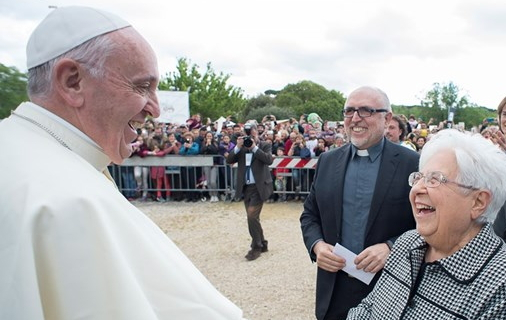
The Pope’s Visit to Loppiano
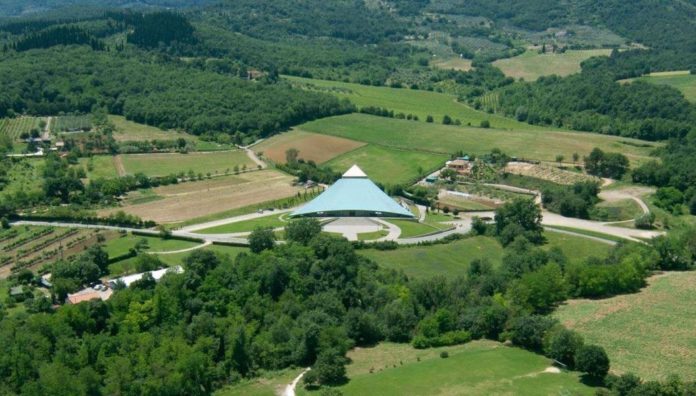 “We’re all enjoying this surprise together,” said Focolare president Maria Voce as she joyfully commented on the news of Pope Francis’s visit to Loppiano on May 10, 2018. The surprising news has raised great enthusiasm among the members and adherents of the Movement throughout the world, beginning with the town of Loppiano that will welcome the pope. Loppiano is located near Florence, Italy. It was the hope of Focolare foundress, Chiara Lubich, that it would be a real city, with schools, businesses, training centres, universities and business parks. It’s a “special” place a laboratory of community Gospel living. A thousand people from 65 countries of all ages, backgrounds and religions live in Loppiano. They strive to build universal brotherhood through daily practice of the Gospel and Loppiano’s “law” of mutual love. It’s a place for putting into practice the charism of unity – which is the spirituality of the Movement – and for responding to Jesus’s testament: “that all be one” (Jn 21).
“We’re all enjoying this surprise together,” said Focolare president Maria Voce as she joyfully commented on the news of Pope Francis’s visit to Loppiano on May 10, 2018. The surprising news has raised great enthusiasm among the members and adherents of the Movement throughout the world, beginning with the town of Loppiano that will welcome the pope. Loppiano is located near Florence, Italy. It was the hope of Focolare foundress, Chiara Lubich, that it would be a real city, with schools, businesses, training centres, universities and business parks. It’s a “special” place a laboratory of community Gospel living. A thousand people from 65 countries of all ages, backgrounds and religions live in Loppiano. They strive to build universal brotherhood through daily practice of the Gospel and Loppiano’s “law” of mutual love. It’s a place for putting into practice the charism of unity – which is the spirituality of the Movement – and for responding to Jesus’s testament: “that all be one” (Jn 21).  It was sensational news for the little city: “One second after the announcement by Maria Voce,” they tell us from Loppiano, “the news spread among the residents of the little city and was spread on the social networks around the world with a shower of joyful and surprised posts; it was like an atomic explosion that just blew us away.” At the announcement of the visit, Maria Voce remarked: “We’d like the pope to find the people of Chiara who live the Gospel and are bound to each other solely by mutual love, so that he sees a reflection of the Trinity on earth in the little city.” As for preparing the visit, she pointed out that only a hundred days remain to live and intensify our prayers “so that everything goes as well as possible and there won’t be any insurmountable obstacles; but mostly to intensify our life of Gospel love so that we can really be the living Word.” The Focolare president was also overjoyed about the pope’s visit to the Nomadelfia community, founded by Father Zeno Saltini in Grosseto, Italy. The pope will visit them before he visits Loppiano: “We know that the pope isn’t only visiting Loppiano. His visit to Nomadelfia is scheduled for the morning. Since we’re geographically close, our two communities have been linked by years of friendship and we have in common the same belief in the centrality of the Gospel and the commitment to universal brotherhood and working in favour of the least of these.In recent times many joyfully recall the participation of a group of young people from Nomadelfia at the annual youth fest held in Loppiano on the 1st of May, which has traditionally drawn teenagers to Loppiano from all over Italy.
It was sensational news for the little city: “One second after the announcement by Maria Voce,” they tell us from Loppiano, “the news spread among the residents of the little city and was spread on the social networks around the world with a shower of joyful and surprised posts; it was like an atomic explosion that just blew us away.” At the announcement of the visit, Maria Voce remarked: “We’d like the pope to find the people of Chiara who live the Gospel and are bound to each other solely by mutual love, so that he sees a reflection of the Trinity on earth in the little city.” As for preparing the visit, she pointed out that only a hundred days remain to live and intensify our prayers “so that everything goes as well as possible and there won’t be any insurmountable obstacles; but mostly to intensify our life of Gospel love so that we can really be the living Word.” The Focolare president was also overjoyed about the pope’s visit to the Nomadelfia community, founded by Father Zeno Saltini in Grosseto, Italy. The pope will visit them before he visits Loppiano: “We know that the pope isn’t only visiting Loppiano. His visit to Nomadelfia is scheduled for the morning. Since we’re geographically close, our two communities have been linked by years of friendship and we have in common the same belief in the centrality of the Gospel and the commitment to universal brotherhood and working in favour of the least of these.In recent times many joyfully recall the participation of a group of young people from Nomadelfia at the annual youth fest held in Loppiano on the 1st of May, which has traditionally drawn teenagers to Loppiano from all over Italy.
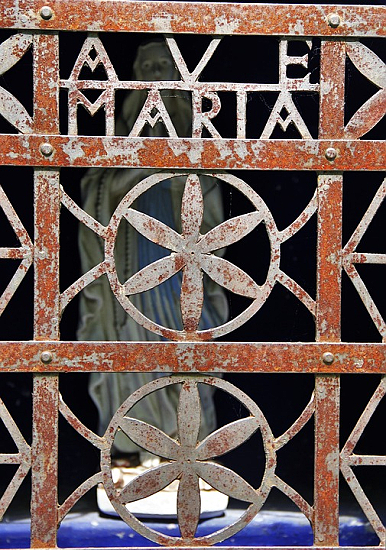
Mary, Teacher of Life

Foto: Pixabay
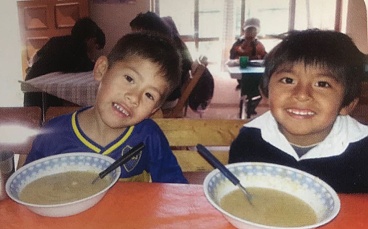
Bolivia: They believed in me
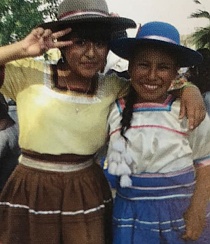 My family is composed of me, my sister and my mother who raised us on her own. We went through some very critical moments. My mother tried hard to find work. Then there was some friction with the landlady, because we didn’t have money for the rent. It was quite a heavy cross for my mother to manage the little money she earned. Therefore, the support we received through the Focolare Movement’s New Families Association was very important. Then the Centro Rincón de Luz was opened on the south side of our city, Cochabamba, in which scholastic support was being offered ever day, along with a hot meal, to children and teenagers who attended the local school. That centre was a huge help to me. It made me smile again and gave me some important formation. We were like one big family where our teachers were often like second parents. Thanks to the people who had faith in me, I can proudly say that I completed my course of study with good results and am in my first semester of university.I’ll soon be a professional, and I’ll try to extend some of the help I received to the to the children who are now at the centre.
My family is composed of me, my sister and my mother who raised us on her own. We went through some very critical moments. My mother tried hard to find work. Then there was some friction with the landlady, because we didn’t have money for the rent. It was quite a heavy cross for my mother to manage the little money she earned. Therefore, the support we received through the Focolare Movement’s New Families Association was very important. Then the Centro Rincón de Luz was opened on the south side of our city, Cochabamba, in which scholastic support was being offered ever day, along with a hot meal, to children and teenagers who attended the local school. That centre was a huge help to me. It made me smile again and gave me some important formation. We were like one big family where our teachers were often like second parents. Thanks to the people who had faith in me, I can proudly say that I completed my course of study with good results and am in my first semester of university.I’ll soon be a professional, and I’ll try to extend some of the help I received to the to the children who are now at the centre.  I’d also like to open a place for the people who live on the streets, helping them to find a way forward. I now know that you can change the life of a child and point him or her in the direction of a better life. That’s why I’m asking everybody to help: Together we can do it! In my case, the most important thing wasn’t just the financial support, but the faith they had in me, which has been a seed of hope, a spark of light that’s lit not only in the children, but also in their parents. Source: Teens
I’d also like to open a place for the people who live on the streets, helping them to find a way forward. I now know that you can change the life of a child and point him or her in the direction of a better life. That’s why I’m asking everybody to help: Together we can do it! In my case, the most important thing wasn’t just the financial support, but the faith they had in me, which has been a seed of hope, a spark of light that’s lit not only in the children, but also in their parents. Source: Teens
What if we change perspective?
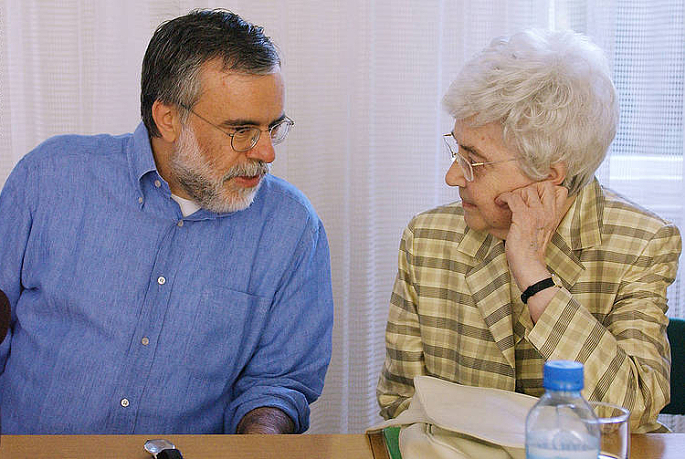
Sant’Egidio celebrates its 50th
 The Community of Sant’Egidio is celebrating its 50th year. A story that began on 7 February 1968, in Rome, with Andrea Riccardi and a small group of high school students who wanted to change the world. “We have discovered in all these years, along with many people worldwide, the joy of the Gospel,” declared the president of the Community, Marco Impagliazzo. “At Sant’Egidio, in the heart of the Trastevere district (Rome) – the notice diffused on that occasion said: an adventure has begun, one that has led the Community to the human and existential outskirts in the different continents, a commitment amid the poor of every condition, up to the healthcare plans to treat AIDS and statistical records, from interreligious dialogue to working for peace.” Next Saturday, 10 February, the “people of Sant’Egidio” will gather in the Roman basilica of St John Lateran for a celebration presided by the Vatican Secretary of State, Pietro Parolin. On behalf of the Focolare, president Maria Voce will attend, together with some of her staff. In her warm message she gives “ heartfelt thanks to the Holy Spirit for the charism bestowed to the Church and all of humanity and for the fruits achieved in these fifty years of life, also thanks to your fidelity.” She added that “the Community, now spread to 70 countries, has contributed and continues to contribute to building peace in the world, through a courageous dialogue at all levels and with a particular attention to the most forgotten members of society,” and recalls the peace obtained in 1992 in Mozambique and the “humanitarian corridors” in favour of refugees. Maria Voce underlines, among the many moments lived together, a “special” one: “the joyful commitment assumed together and in an altogether particular way by Chiara Lubich and Andrea Riccardi, after the historical encounter of the Movements with the Pope on the Pentecost of 1998, which has produced many fruits for the glory of God.” And concludes with her wish and that of the Focolare “to totally fulfill God’s design on your Community.” See the new site: www.santegidio.org
The Community of Sant’Egidio is celebrating its 50th year. A story that began on 7 February 1968, in Rome, with Andrea Riccardi and a small group of high school students who wanted to change the world. “We have discovered in all these years, along with many people worldwide, the joy of the Gospel,” declared the president of the Community, Marco Impagliazzo. “At Sant’Egidio, in the heart of the Trastevere district (Rome) – the notice diffused on that occasion said: an adventure has begun, one that has led the Community to the human and existential outskirts in the different continents, a commitment amid the poor of every condition, up to the healthcare plans to treat AIDS and statistical records, from interreligious dialogue to working for peace.” Next Saturday, 10 February, the “people of Sant’Egidio” will gather in the Roman basilica of St John Lateran for a celebration presided by the Vatican Secretary of State, Pietro Parolin. On behalf of the Focolare, president Maria Voce will attend, together with some of her staff. In her warm message she gives “ heartfelt thanks to the Holy Spirit for the charism bestowed to the Church and all of humanity and for the fruits achieved in these fifty years of life, also thanks to your fidelity.” She added that “the Community, now spread to 70 countries, has contributed and continues to contribute to building peace in the world, through a courageous dialogue at all levels and with a particular attention to the most forgotten members of society,” and recalls the peace obtained in 1992 in Mozambique and the “humanitarian corridors” in favour of refugees. Maria Voce underlines, among the many moments lived together, a “special” one: “the joyful commitment assumed together and in an altogether particular way by Chiara Lubich and Andrea Riccardi, after the historical encounter of the Movements with the Pope on the Pentecost of 1998, which has produced many fruits for the glory of God.” And concludes with her wish and that of the Focolare “to totally fulfill God’s design on your Community.” See the new site: www.santegidio.org
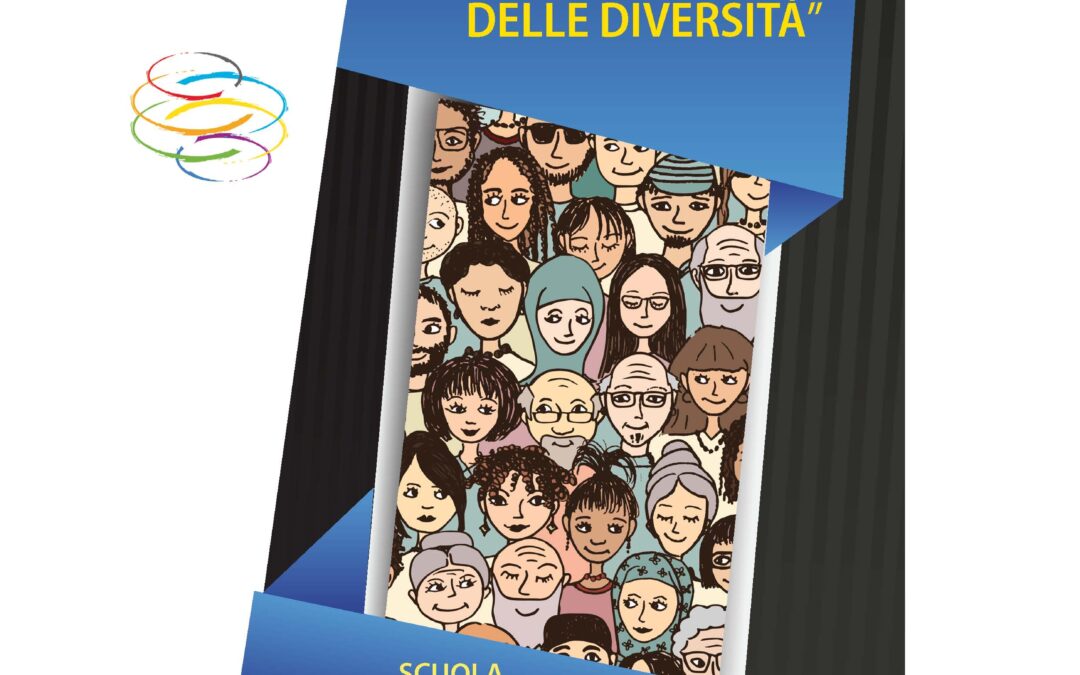
“Onecity: The Beauty of Diversity”
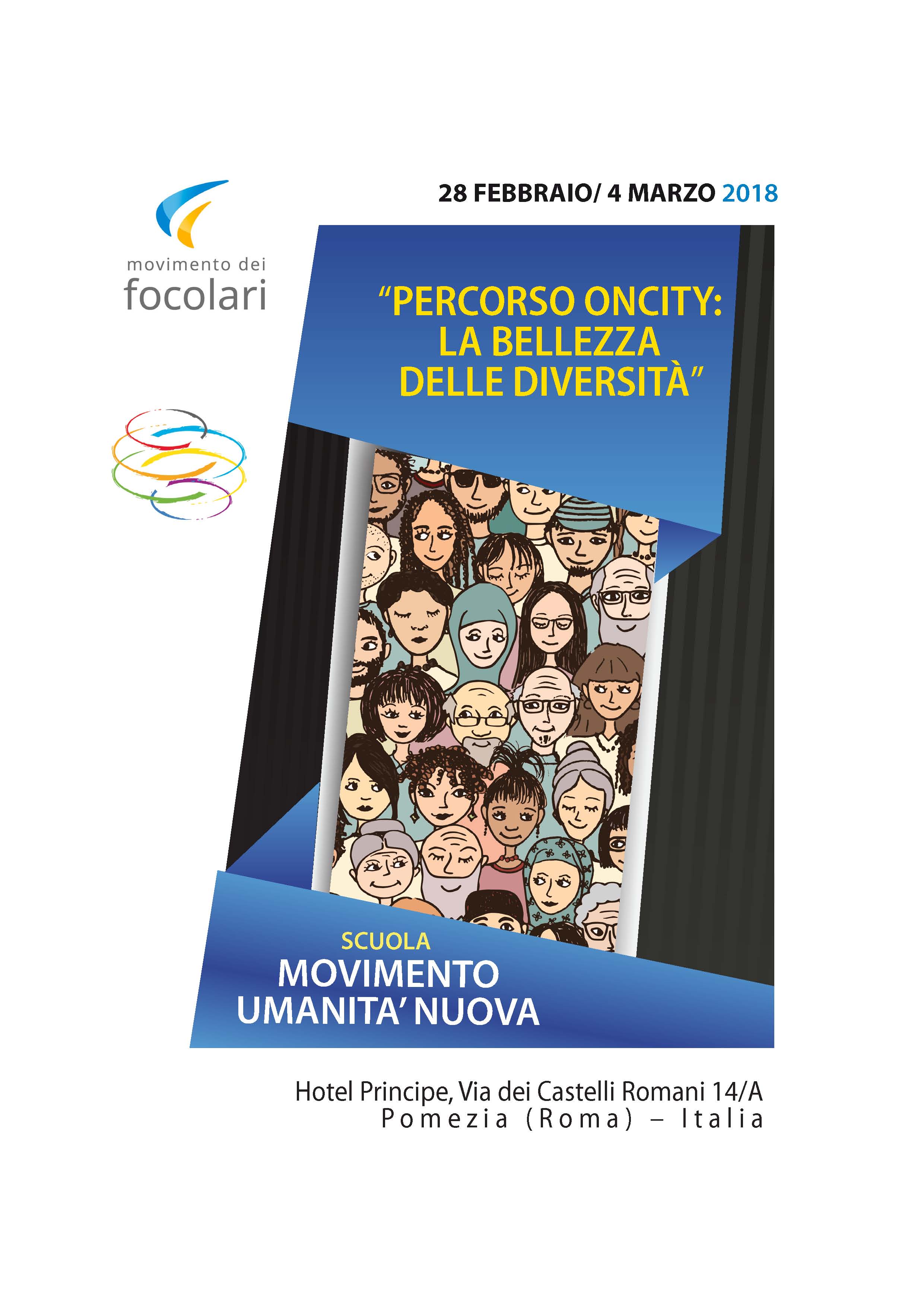 That is the title of an event that the New Humanity Movement is planning at the Principe Hotel in Pomezia, Italy. It will be comprised of five days of work, sharing of experiences, study, budgeting planning and finding new directions for their work. It will be a “school” for “learning,” one more time, how to actualize brotherhood in a city beginning from the wealth of diversity that lies in the people. For information: International New Humanity Movement Tel 06 943156 35 newhumanity@focolare.org
That is the title of an event that the New Humanity Movement is planning at the Principe Hotel in Pomezia, Italy. It will be comprised of five days of work, sharing of experiences, study, budgeting planning and finding new directions for their work. It will be a “school” for “learning,” one more time, how to actualize brotherhood in a city beginning from the wealth of diversity that lies in the people. For information: International New Humanity Movement Tel 06 943156 35 newhumanity@focolare.org
Editorial Ciudad Nueva
Editorial Ciudad Nueva C/ José Picón, 28 28028 Madrid (España) Tel.: +34 91 725 95 30 www.ciudadnueva.es editorial@ciudadnueva.com (Libros) REDES: Facebook: https://www.facebook.com/ciudadnueva.es/ Twitter: @CiudadNuevaES You Tube: https://www.youtube.com/watch?v=SBpWkZKDcBg
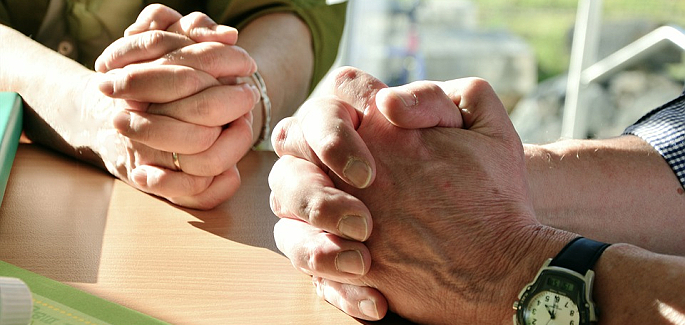
Day of Prayer and Fasting for Peace
 On February 23rd the Focolare Movement will join the Church in a Day of Prayer and Fasting for peace and the end to all forms of violence. The day was instituted by Pope Francis in a surprise announcement before 20 of the faithful in Saint Peter’s Square for the Sunday Angelus. The Pope turned especially to the populations of the Democratic Republic of Congo and of South Sudan, which have been going through great escalation in violence and oppression, but he was also mindful of all the prolonged conflicts that are taking place in all parts of the world. This is not anything new: Pope Francis had invited “all believers, also non-Catholic brothers and sisters and non-Christians” to unite in a common moment of prayer, each in their own way, to implore together the gift of peace, while trying to understand what each of us can do to stop the violence. “The victories obtained by violence,” said the pope, “are false victories.”
On February 23rd the Focolare Movement will join the Church in a Day of Prayer and Fasting for peace and the end to all forms of violence. The day was instituted by Pope Francis in a surprise announcement before 20 of the faithful in Saint Peter’s Square for the Sunday Angelus. The Pope turned especially to the populations of the Democratic Republic of Congo and of South Sudan, which have been going through great escalation in violence and oppression, but he was also mindful of all the prolonged conflicts that are taking place in all parts of the world. This is not anything new: Pope Francis had invited “all believers, also non-Catholic brothers and sisters and non-Christians” to unite in a common moment of prayer, each in their own way, to implore together the gift of peace, while trying to understand what each of us can do to stop the violence. “The victories obtained by violence,” said the pope, “are false victories.”
India: The Rainbow Kids
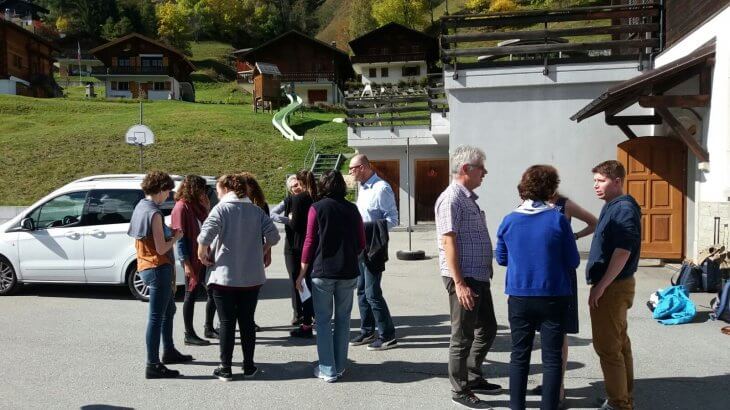
Switzerland: What way should I follow?
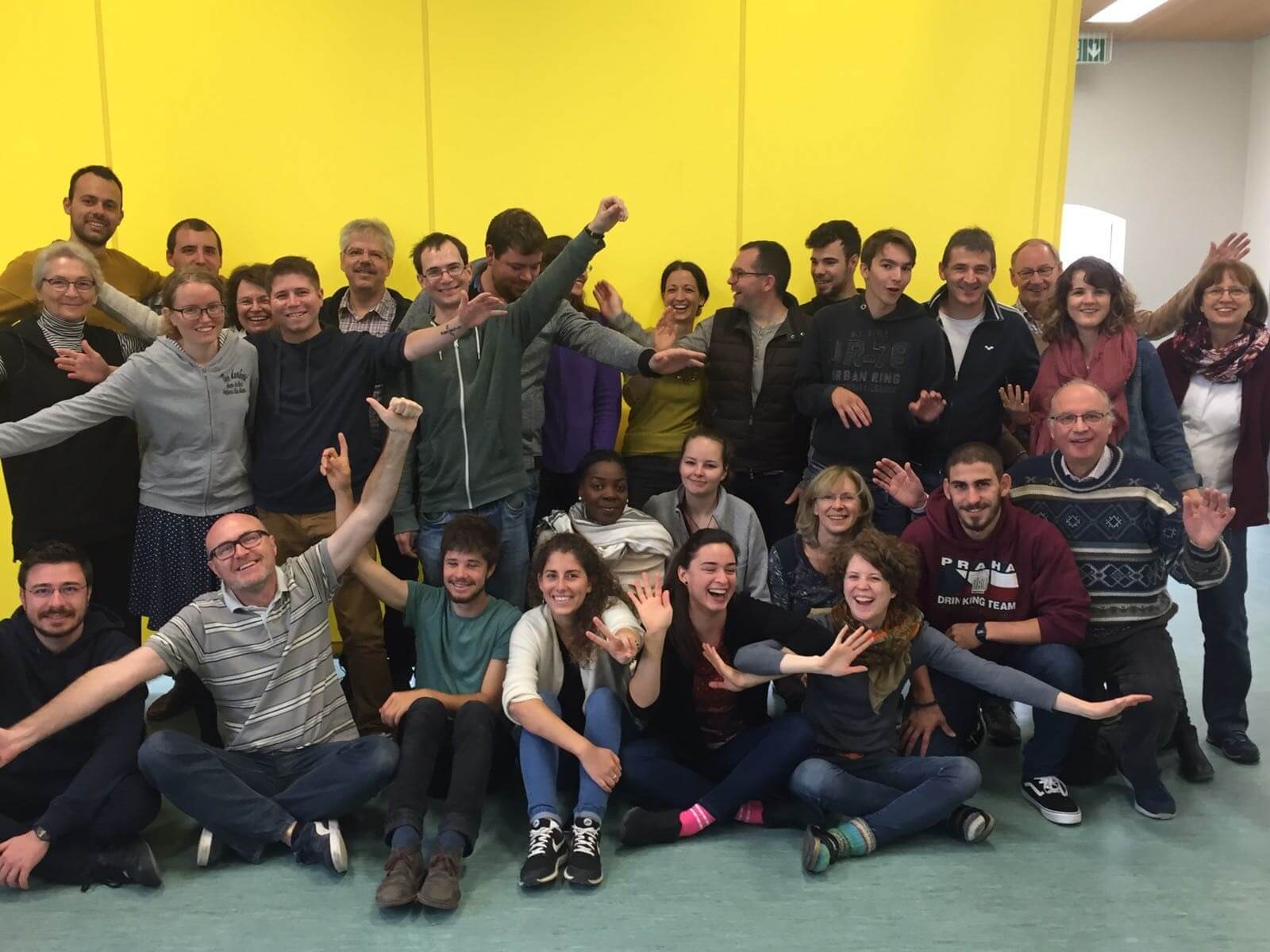 What drives a group of young people aged 18 to 34 years, from the three linguistic regions of Switzerland, to spend some days in the mountains together with eight focolare men and women, a couple of married focolarini and a priest? “The scope of “Behind the Scenes of the Focolare”, a weekend held in the splendid background of the Valais Alps, was not only to enjoy nature, but also to ask oneself, immersed in an ideal environment, a series of essential questions on the life one has lived so far and the years lying ahead. And among such queries was: What path shall I take? This question is often not easy to answer, especially when there are extraordinary and often unrepeatable possibilities from which one can choose. To consciously undertake one – the organizers thought – that it would be helpful to turn down the volume of daily vicissitudes and find a place where it is easier to listen to a suggestion, often whispered to one’s heart. “This is how we got the idea of spending a weekend together, where one can express oneself freely and sincerely, and where Jesus can speak out in the intimacy of one’s heart. A mix of deep reflection and community life, consisting of walks, games, clearing, coking, prayer, to express at best the beauty and also the “normality” of following His call, also today.”
What drives a group of young people aged 18 to 34 years, from the three linguistic regions of Switzerland, to spend some days in the mountains together with eight focolare men and women, a couple of married focolarini and a priest? “The scope of “Behind the Scenes of the Focolare”, a weekend held in the splendid background of the Valais Alps, was not only to enjoy nature, but also to ask oneself, immersed in an ideal environment, a series of essential questions on the life one has lived so far and the years lying ahead. And among such queries was: What path shall I take? This question is often not easy to answer, especially when there are extraordinary and often unrepeatable possibilities from which one can choose. To consciously undertake one – the organizers thought – that it would be helpful to turn down the volume of daily vicissitudes and find a place where it is easier to listen to a suggestion, often whispered to one’s heart. “This is how we got the idea of spending a weekend together, where one can express oneself freely and sincerely, and where Jesus can speak out in the intimacy of one’s heart. A mix of deep reflection and community life, consisting of walks, games, clearing, coking, prayer, to express at best the beauty and also the “normality” of following His call, also today.” 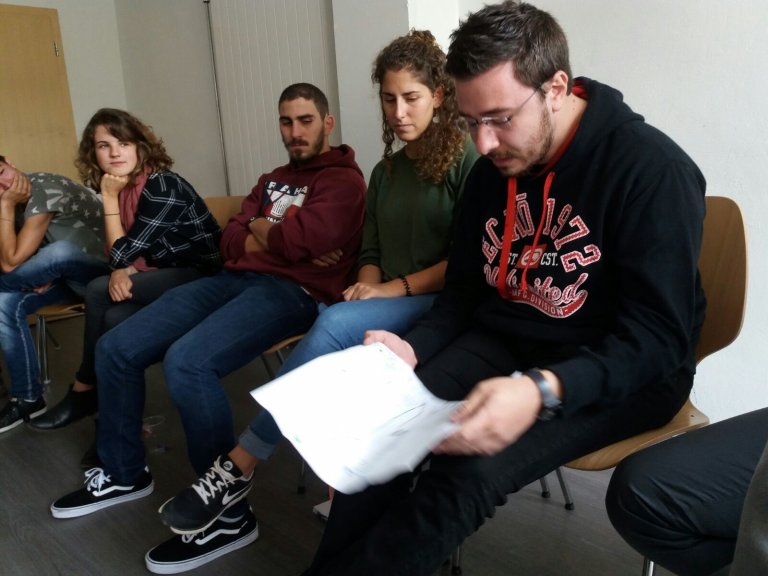 “Behind the scenes” of focolare life lies a personal call of God to achieve a community of laity, virgins and married people (each according to their status), fully immersed in the world, but imbued with the spiritual presence of Jesus among them, fruit of mutual love. It is a “presence” that wishes to bring to the world, with the objective and perspective of unity among people and societies, a more fraternal and united world that respects diversity. Some of the youths present had never investigated this possibility. Others had already decided to form a family, while others still had not posed the issue. But all had the desire to deepen a personal rapport with God and know more about this particular way of coexistence based on the model of the family of Nazareth, born from the charism of Chiara Lubich. “You live in the midst of society, and you don’t have a convent that protects you, how do you manage?” “Great, but isn’t it too difficult?” “What does it mean to follow Jesus today?” Many questions came up spontaneously and many answers were given, starting from personal experiences and the group meditations on the articles on the evangelical spirituality of unity.
“Behind the scenes” of focolare life lies a personal call of God to achieve a community of laity, virgins and married people (each according to their status), fully immersed in the world, but imbued with the spiritual presence of Jesus among them, fruit of mutual love. It is a “presence” that wishes to bring to the world, with the objective and perspective of unity among people and societies, a more fraternal and united world that respects diversity. Some of the youths present had never investigated this possibility. Others had already decided to form a family, while others still had not posed the issue. But all had the desire to deepen a personal rapport with God and know more about this particular way of coexistence based on the model of the family of Nazareth, born from the charism of Chiara Lubich. “You live in the midst of society, and you don’t have a convent that protects you, how do you manage?” “Great, but isn’t it too difficult?” “What does it mean to follow Jesus today?” Many questions came up spontaneously and many answers were given, starting from personal experiences and the group meditations on the articles on the evangelical spirituality of unity.  Kati and Istvan, a married couple, shared their own joys, difficulties and fundamental choices of their family. “I was deeply struck by the depth of the themes discussed even if I did not know you,” said one of the boys. “I came with a lot of questions and found many answers,” a girl said upon returning home. Peter, a priest remarked; “This was an unexpected weekend. Some of the boys expressed the desire to continue such sessions. This, to my mind, was the most important message of the two days spent together; we live for you and with you, in the uncertainty of the choice to make in life, but in the certainty of no longer being alone in this quest.”
Kati and Istvan, a married couple, shared their own joys, difficulties and fundamental choices of their family. “I was deeply struck by the depth of the themes discussed even if I did not know you,” said one of the boys. “I came with a lot of questions and found many answers,” a girl said upon returning home. Peter, a priest remarked; “This was an unexpected weekend. Some of the boys expressed the desire to continue such sessions. This, to my mind, was the most important message of the two days spent together; we live for you and with you, in the uncertainty of the choice to make in life, but in the certainty of no longer being alone in this quest.”

Sportmeet 2018 Congress, Rome, Italy
 The role of sport in breaking down many of today’s barriers, whether they be psychological, relational, cultural, social or environmental. By its very nature, sport is a place for facing limits. Why does sport turn out to be such a good terraine for reconciling with our limits, and for experiencing inclusion, integratation and breaking down barriers? Where does the magic lie? In tune with Sportmeet’s mission, these are some of the important topics that will be examined, through cultural reflection, testimonies and practical workshops, and dialogue with people who are actively involved in significant ways in and around the city of Rome. Interested? Want to join us? For more information click here: Sportmeet
The role of sport in breaking down many of today’s barriers, whether they be psychological, relational, cultural, social or environmental. By its very nature, sport is a place for facing limits. Why does sport turn out to be such a good terraine for reconciling with our limits, and for experiencing inclusion, integratation and breaking down barriers? Where does the magic lie? In tune with Sportmeet’s mission, these are some of the important topics that will be examined, through cultural reflection, testimonies and practical workshops, and dialogue with people who are actively involved in significant ways in and around the city of Rome. Interested? Want to join us? For more information click here: Sportmeet
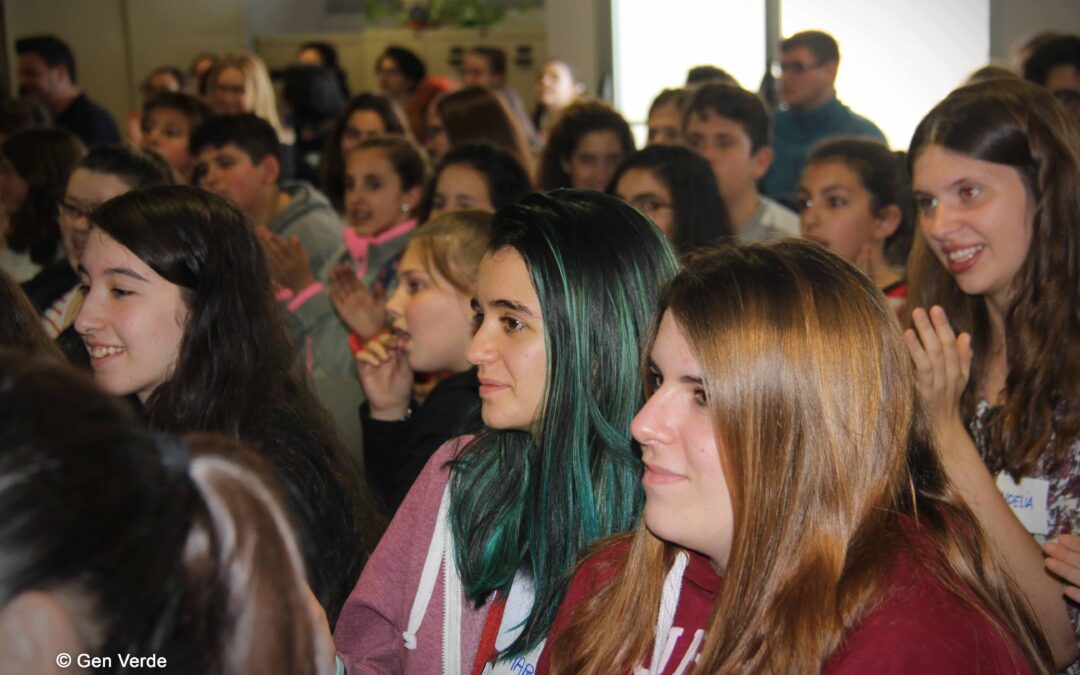
Gen Verde: Start Now …and then?
It all began with a set of green drums at the International Centre of Loppiano in December 1966. It was an unexpected gift in the hands of a group of girls. That instrument has become the symbol of a permanent revolution to contribute to the building of a more united and fraternal world. This saw the birth of Gen Verde: determination, talents, words, gestures and professionalism in synergy to say with music that humanity, still and always, has a chance to choose peace and not war, cohesion instead of walls, and dialogue instead of silence. In almost 50 years of activity, the band has performed in public squares, theatres and stadiums throughout the world with over 1,500 shows and events, hundreds of tours, and 69 albums in 9 languages. As of today 147 singers, musicians, actresses, dancers and technicians have been part of Gen Verde, whose professional contributions have given rise to diverse artistic productions with genres ranging from live concerts to musicals, besides didactic and training activities for the youth through workshops and specific courses.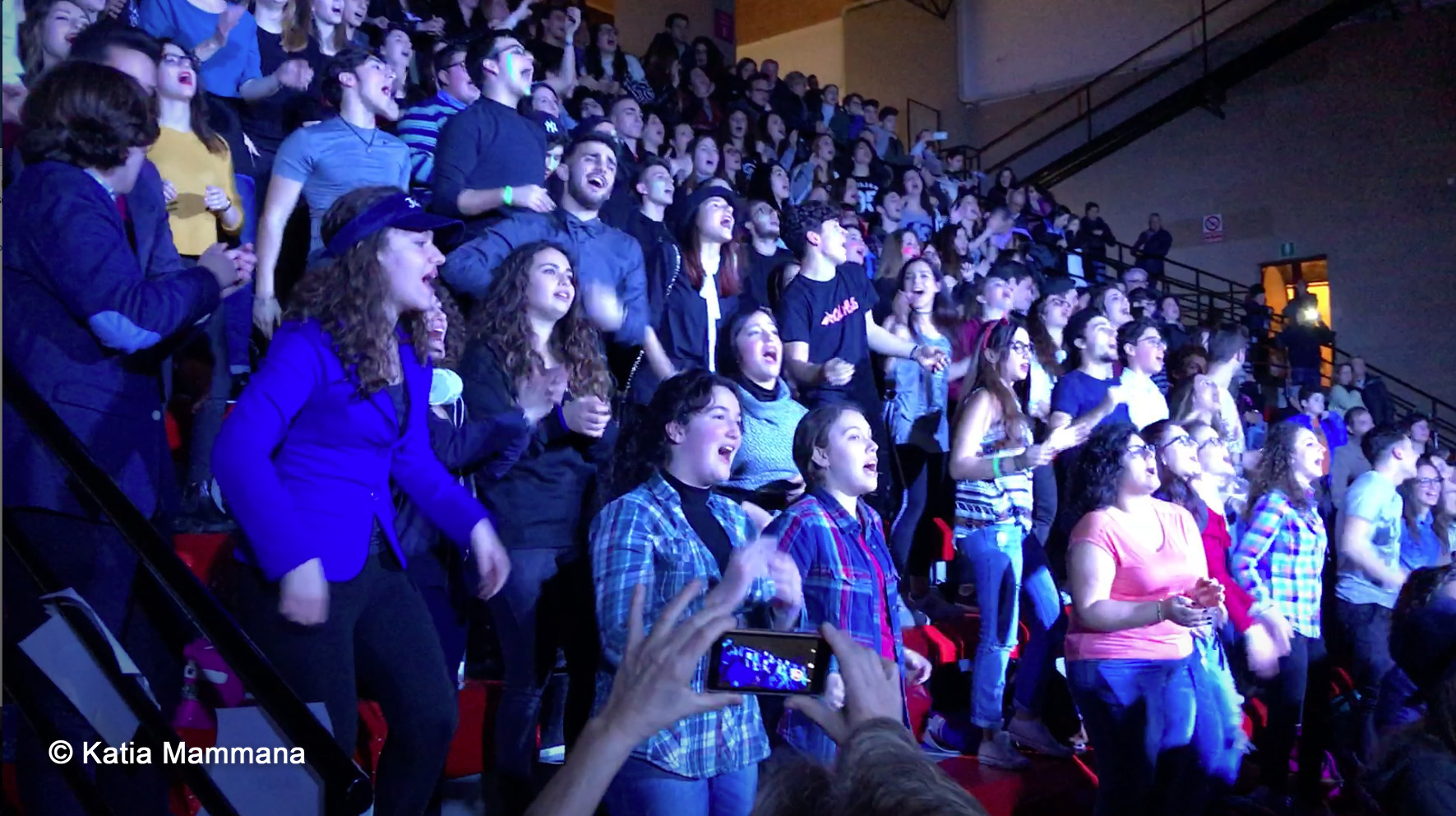 It took so much work to prepare a project with intense days experienced, but what remains in the end? We posed this question to the protagonists of some of the phases of the initiative in many countries worldwide. What they told us had many points in common. The first: the actual concert we are staging, “Start Now,” gives an impulse to relate with the others in a different lifestyle, based on trust, openness, and attention to the common good. This style continues also after, in daily life. The second: the courage to be the first to start in changing the world around us, since “Togetherness is our strength. We can think big if we work together.” Someone called it “spirit of brotherhood.” The third note could be called sharing: the drive, the desire to communicate to others their concrete experience, to contaminate and involve all in the endeavour of improving the world, wherever we are.
It took so much work to prepare a project with intense days experienced, but what remains in the end? We posed this question to the protagonists of some of the phases of the initiative in many countries worldwide. What they told us had many points in common. The first: the actual concert we are staging, “Start Now,” gives an impulse to relate with the others in a different lifestyle, based on trust, openness, and attention to the common good. This style continues also after, in daily life. The second: the courage to be the first to start in changing the world around us, since “Togetherness is our strength. We can think big if we work together.” Someone called it “spirit of brotherhood.” The third note could be called sharing: the drive, the desire to communicate to others their concrete experience, to contaminate and involve all in the endeavour of improving the world, wherever we are. 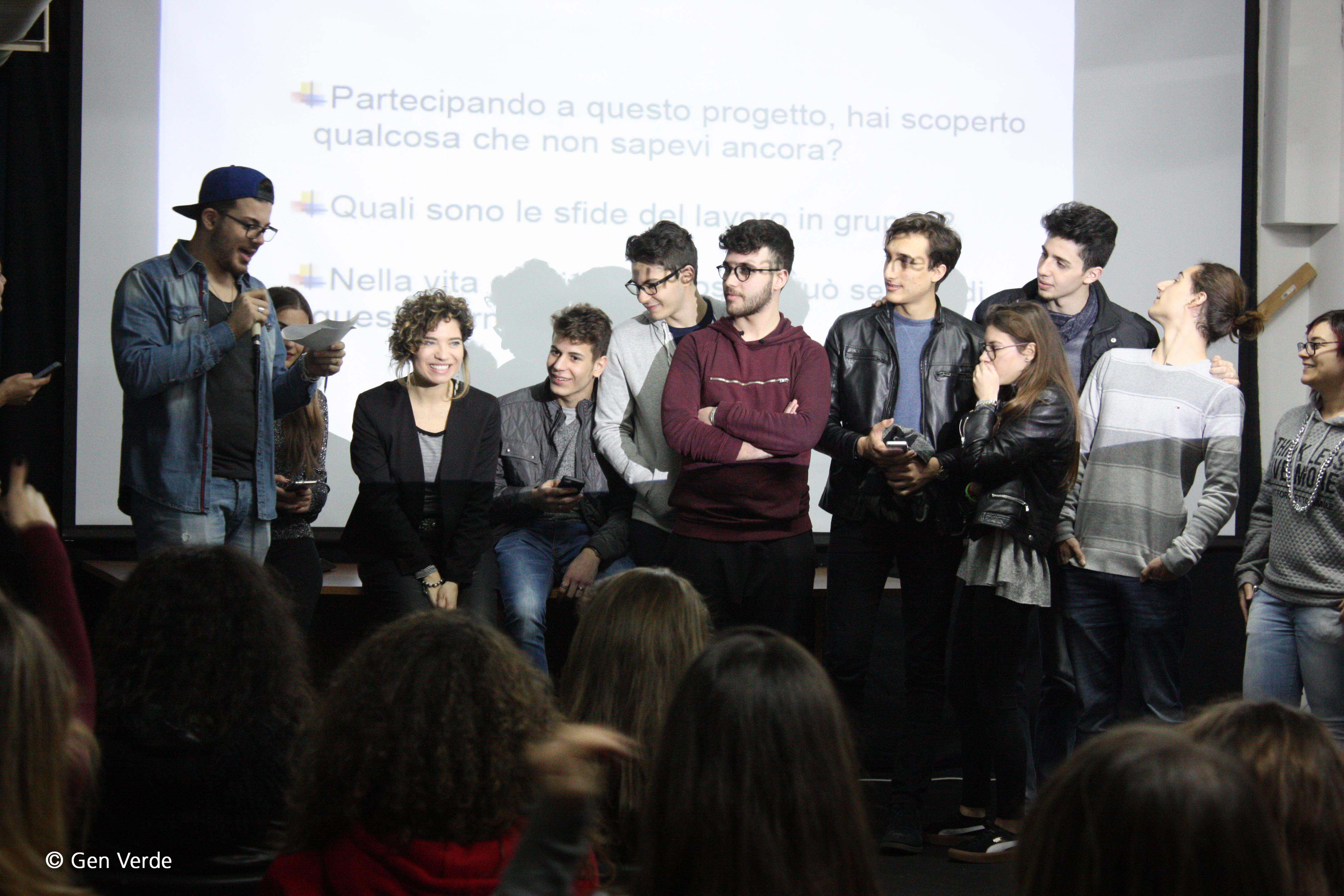 “We managed to relate better with people, and at times also influence others to act like us,” a boy said. And a teacher, talking about some of his students who had participated in the project: “They were able to show that they have a deep humaneness which I may have underestimated in these years. I no longer consider them as kids, at times immature, but as people who are able to be protagonists.” The desire to divulge this constructive way of facing reality, gave rise to various initiatives. In Palermo, Southern Italy, for example, they are already working on a second edition of Start Now 2018. In La Spezia, in the north, the youths who had participated in the project invented a “car wash” afternoon, for the benefit of Nigeria and a “typical 1960s masquerade ball” to gather funds for a dispensary in Man, Ivory Coast. To let fraternity be “heard” before a party, they had a linkup via Skype with their friends in the African country.
“We managed to relate better with people, and at times also influence others to act like us,” a boy said. And a teacher, talking about some of his students who had participated in the project: “They were able to show that they have a deep humaneness which I may have underestimated in these years. I no longer consider them as kids, at times immature, but as people who are able to be protagonists.” The desire to divulge this constructive way of facing reality, gave rise to various initiatives. In Palermo, Southern Italy, for example, they are already working on a second edition of Start Now 2018. In La Spezia, in the north, the youths who had participated in the project invented a “car wash” afternoon, for the benefit of Nigeria and a “typical 1960s masquerade ball” to gather funds for a dispensary in Man, Ivory Coast. To let fraternity be “heard” before a party, they had a linkup via Skype with their friends in the African country. 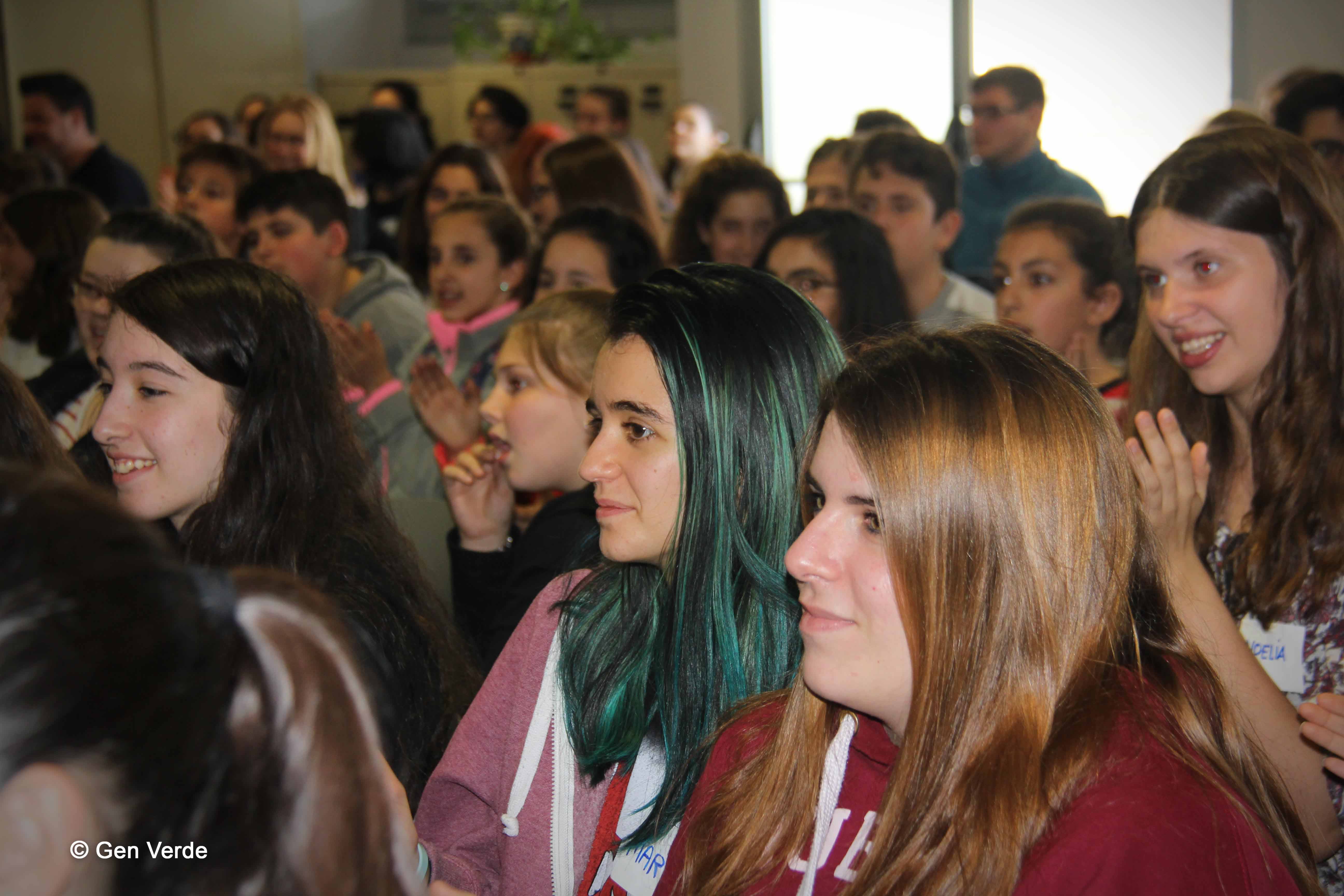 In Huétor Tájar (Spain), the Start Now spirit enlivened the traditional “solidarity run.” “We understood – a girl wrote – that life is nicer if accompanied by a smile and joy.” Still in Spain, in Azpeitia, the dean of a university requested that the project be presented in his university. These are small steps with great perspectives, and the feeling of belonging to a choir where the voice of each one is necessary, and many other effects, here and there around the world, triggered by the sharing of the Start Now project. It is not a firework which soon dies out leaving only memories and nostalgia, but a spark that lights up, contaminates and spreads. Chiara Favotti
In Huétor Tájar (Spain), the Start Now spirit enlivened the traditional “solidarity run.” “We understood – a girl wrote – that life is nicer if accompanied by a smile and joy.” Still in Spain, in Azpeitia, the dean of a university requested that the project be presented in his university. These are small steps with great perspectives, and the feeling of belonging to a choir where the voice of each one is necessary, and many other effects, here and there around the world, triggered by the sharing of the Start Now project. It is not a firework which soon dies out leaving only memories and nostalgia, but a spark that lights up, contaminates and spreads. Chiara Favotti
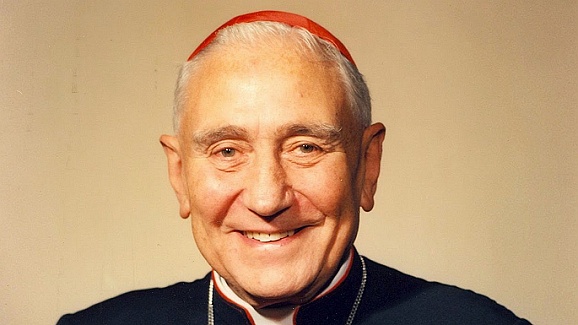
In remembrance of Card. Pironio
 5 February is the 20th death anniversary of Card. Eduardo Francisco Pironio (1920 – 1998), whose cause of canonization is underway. Born in Nueve de Julio, Argentina, and the 23rd son of a family of Italian origin, he was ordained priest in 1943. Pironio first became full bishop in Ceciri, and later in La Plata, he became secretary general and them president of the Latin American Episcopal Conference. He was called to Rome by Pope Paul VI, who appointed him as Cardinal in 1976. John Paul II appointed him President of the Pontifical Council for the Laity, and in his capacity as such and with the Decree of 29 June 1990, Card. Pironio delivered to Chiara Lubich, the definitive approval of the general Statutes of the Work of Mary (Focolare Movement). The celebrations started with a mass in the national shrine of Nuestra Señora de Luján on 4 February, promoted in his honour by the Argentinean Catholic Action. The central events will take place next 31 May in Buenos Aires. The Focolare Movement joins all with gratitude, in commemorating one of the most outstanding figures of recent ecclesial history.
5 February is the 20th death anniversary of Card. Eduardo Francisco Pironio (1920 – 1998), whose cause of canonization is underway. Born in Nueve de Julio, Argentina, and the 23rd son of a family of Italian origin, he was ordained priest in 1943. Pironio first became full bishop in Ceciri, and later in La Plata, he became secretary general and them president of the Latin American Episcopal Conference. He was called to Rome by Pope Paul VI, who appointed him as Cardinal in 1976. John Paul II appointed him President of the Pontifical Council for the Laity, and in his capacity as such and with the Decree of 29 June 1990, Card. Pironio delivered to Chiara Lubich, the definitive approval of the general Statutes of the Work of Mary (Focolare Movement). The celebrations started with a mass in the national shrine of Nuestra Señora de Luján on 4 February, promoted in his honour by the Argentinean Catholic Action. The central events will take place next 31 May in Buenos Aires. The Focolare Movement joins all with gratitude, in commemorating one of the most outstanding figures of recent ecclesial history.
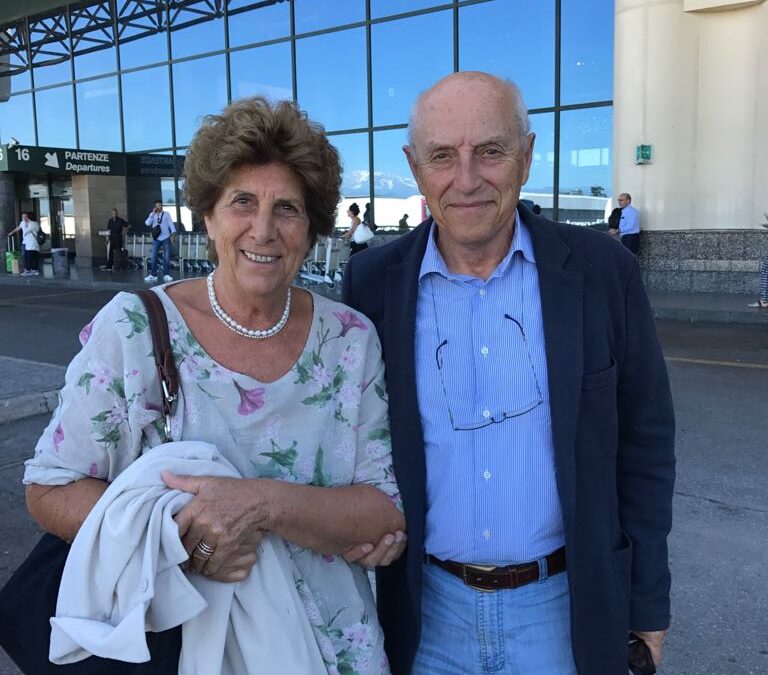
Dialogue as a Style of Life
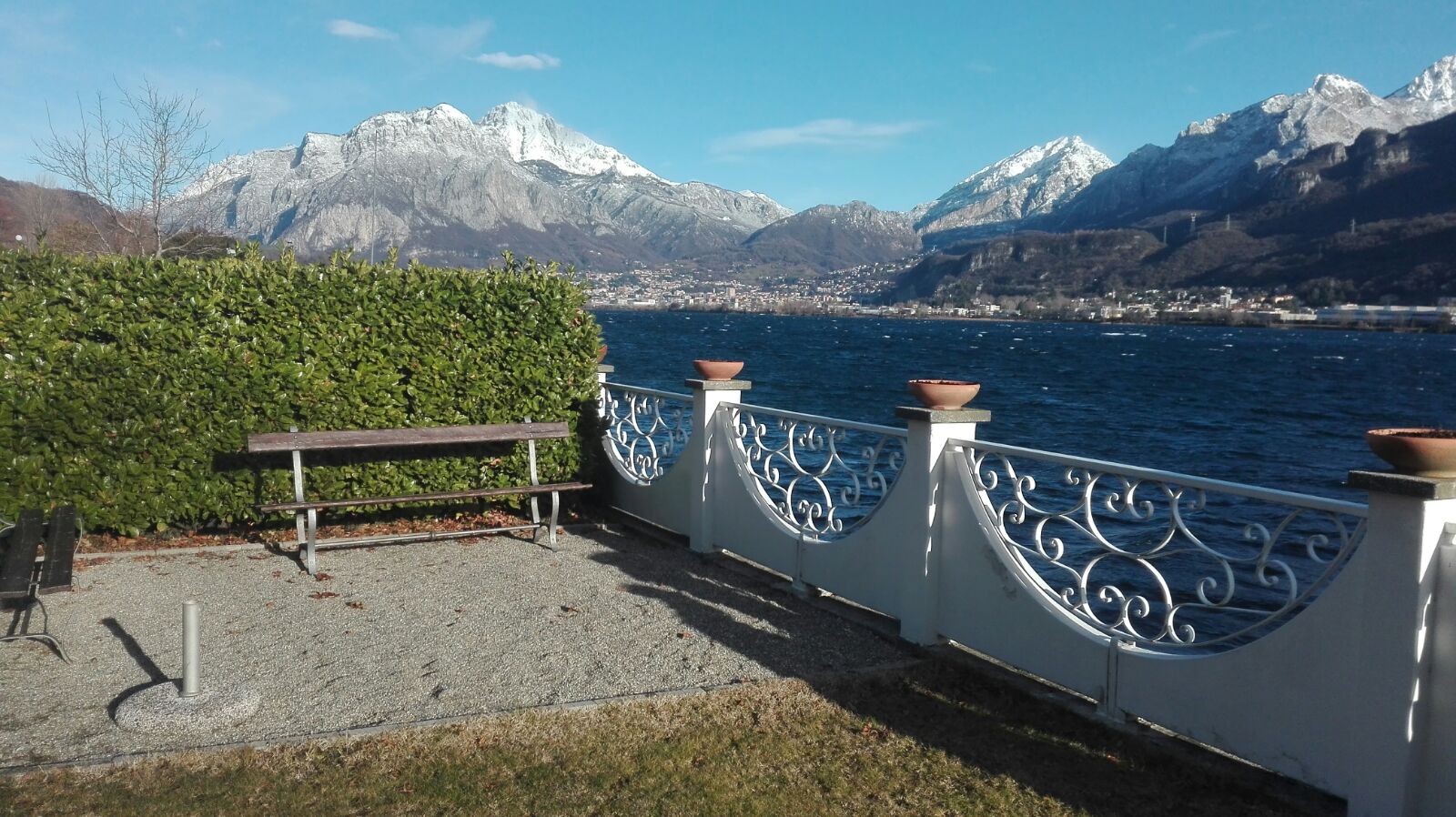 “A 360 degree dialogue with every person, even people of different convictions had become normal for our family, shared by our children Pietro, Elena and Matteo.” Annamaria and Mario Raimondi are like a rushing river as they share the many experiences of dialogue they’ve had as a family. They now live in a quiet little town in northern Italy, on Lake Como, only forty-five minutes from Milan, Annamaria points out. He’s an ordinary professor of Physical Chemistry at the University of Milan, and she’s a teacher. Both are retired, at least “officially”. They’re quite lively and very active with their family and three grandchildren In their diocese, they’re very involved with ecumenism, and they’re also at the service of the local Focolare community.
“A 360 degree dialogue with every person, even people of different convictions had become normal for our family, shared by our children Pietro, Elena and Matteo.” Annamaria and Mario Raimondi are like a rushing river as they share the many experiences of dialogue they’ve had as a family. They now live in a quiet little town in northern Italy, on Lake Como, only forty-five minutes from Milan, Annamaria points out. He’s an ordinary professor of Physical Chemistry at the University of Milan, and she’s a teacher. Both are retired, at least “officially”. They’re quite lively and very active with their family and three grandchildren In their diocese, they’re very involved with ecumenism, and they’re also at the service of the local Focolare community.
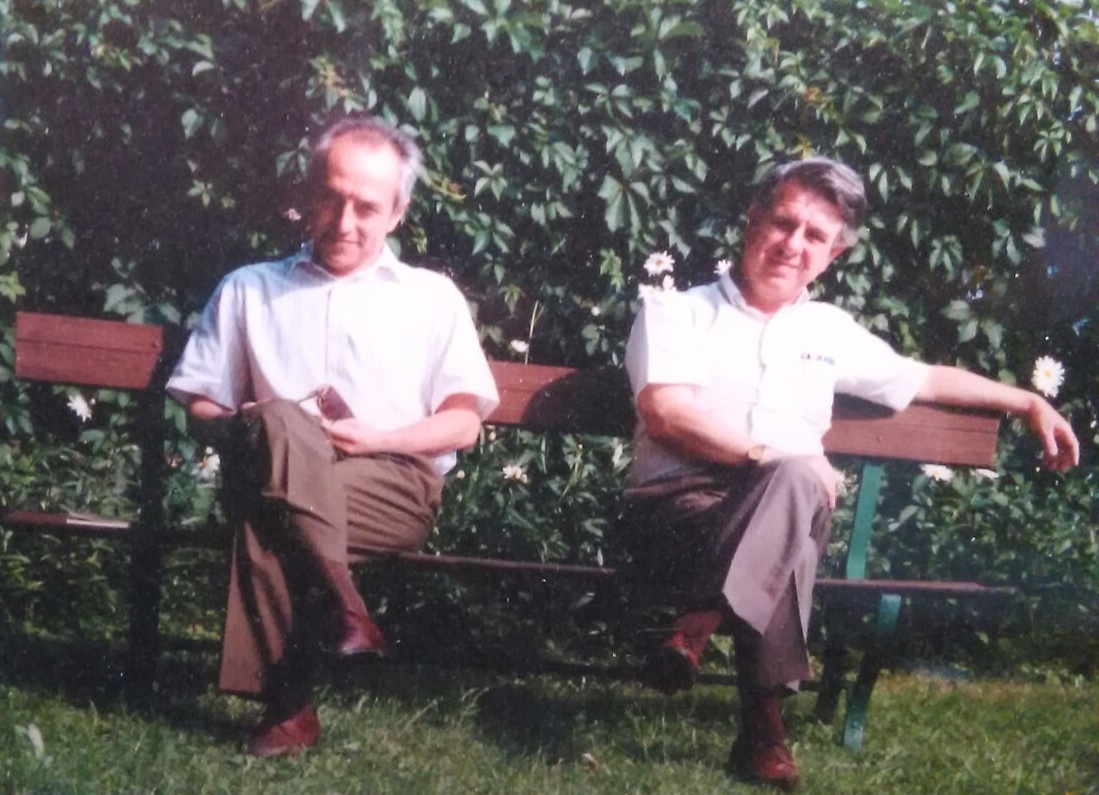
Mario and Joe
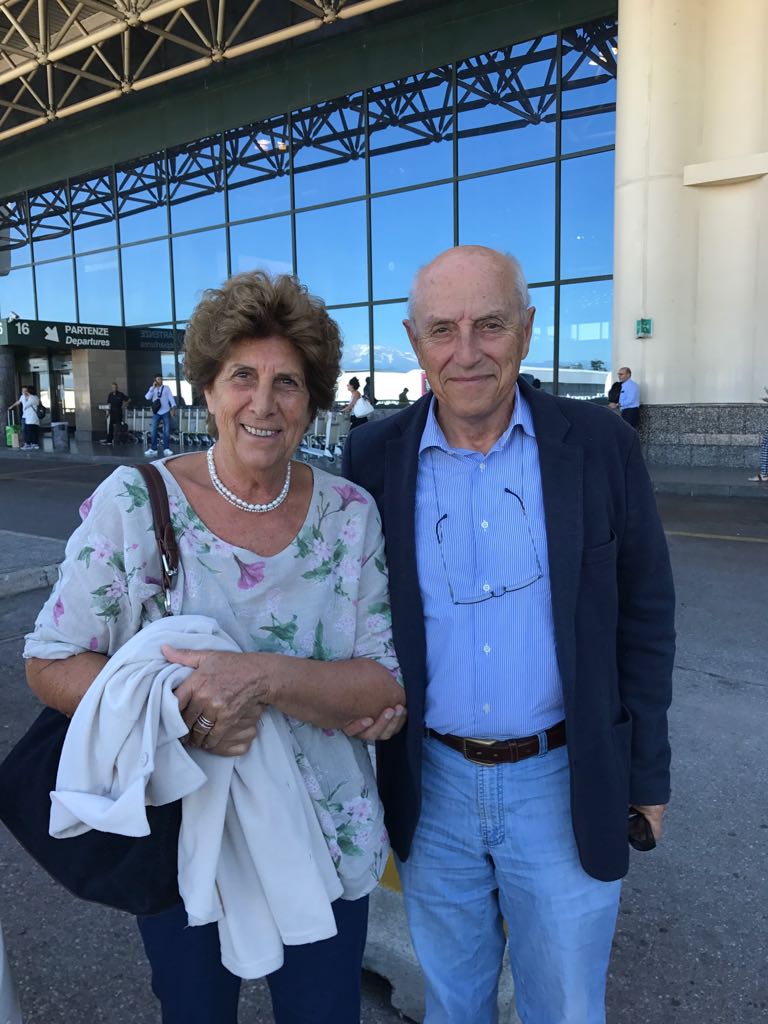 “Even now,” Mario reports, “after many years the relationship with Zaga and her family still continues. She’s old now and not in very good health. We visited her often, for example, when her daughters married, and when her first grandson was born (who just happened to be named Mario!). We went through everything together in our lives: raising the children, vacations, the scientific research… It wasn’t just great human understanding among us, but something much deeper than that. Each of us felt free to be him or herself, and the love among was sincere. Zaga, who still claims to be a non-believer, participated in the priestly ordination of Pietro and the Religious Profession of Elena – even while wearing a cast on her leg – Matteo’s marriage… The relationship between our families is still there, and we continue to share the simple times together, the deep and the important moments.” “Last summer,” Annamaria went on to say, “we learned that an 80 year-old English gentleman had a heart attack while visiting Lake Como in Italy. The hospital was fairly close to our home. He and his wife, who didn’t speak any Italian, were having a hard time. The other members of their group had returned to England. During the hospital stay, which lasted for two weeks, we visited him every day him every day, helping him to communicate with doctors, finding a place for his wife to stay with some nuns near the hospital, doing ordinary things as if we had known each other forever. We gave them the Word of Life and shared simple but deep moments together. When he was released from hospital, we accompanied them to the airport. It was there that Antony – as he’s called – asked ‘May I give you a blessing?’ That’s when we discovered that he was an Anglican minister. The memory of that very special goodbye is always with us. Returned to London, Antony and his wife, who are already in close contact with the local Focolare community, still thank us, recalling that moment with gratitude.” Chiara Favotti
“Even now,” Mario reports, “after many years the relationship with Zaga and her family still continues. She’s old now and not in very good health. We visited her often, for example, when her daughters married, and when her first grandson was born (who just happened to be named Mario!). We went through everything together in our lives: raising the children, vacations, the scientific research… It wasn’t just great human understanding among us, but something much deeper than that. Each of us felt free to be him or herself, and the love among was sincere. Zaga, who still claims to be a non-believer, participated in the priestly ordination of Pietro and the Religious Profession of Elena – even while wearing a cast on her leg – Matteo’s marriage… The relationship between our families is still there, and we continue to share the simple times together, the deep and the important moments.” “Last summer,” Annamaria went on to say, “we learned that an 80 year-old English gentleman had a heart attack while visiting Lake Como in Italy. The hospital was fairly close to our home. He and his wife, who didn’t speak any Italian, were having a hard time. The other members of their group had returned to England. During the hospital stay, which lasted for two weeks, we visited him every day him every day, helping him to communicate with doctors, finding a place for his wife to stay with some nuns near the hospital, doing ordinary things as if we had known each other forever. We gave them the Word of Life and shared simple but deep moments together. When he was released from hospital, we accompanied them to the airport. It was there that Antony – as he’s called – asked ‘May I give you a blessing?’ That’s when we discovered that he was an Anglican minister. The memory of that very special goodbye is always with us. Returned to London, Antony and his wife, who are already in close contact with the local Focolare community, still thank us, recalling that moment with gratitude.” Chiara Favotti
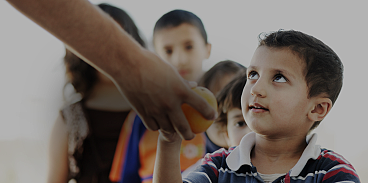
Chiara Lubich: to love in action

Photo: www.afnonlus.org

Pope Francis will go to Loppiano
 The Focolare Movement has received the surprising news of Pope Francis’s visit to Loppiano, a little town of the Movement, scheduled for 10th May 2018. Focolare President, Maria Voce, will receive the Pope, together with the local Ordinary, Rt Rev. Mario Meini, Bishop of Fiesole. Maria Voce’s immediate response was, “This surprising news has given me deep joy. It is a great honour for the Focolare Movement to welcome a Pope into our midst, in one of our little towns. Above all, it prompts us to intensify our commitment to live love and unity, being rooted in the Gospel. All we want is that the Pope should find this breath of Gospel life on his arrival at Loppiano. Now that the news is spreading to the Movement’s communities, this joy and commitment will be shared all over the world”. Loppiano is the first of the Focolare’s little towns, established in 1964 on the Tuscan hills not far from Florence. Currently, there are 850 residents: men and women, families, young people and children, priests and religious from 65 countries and all 5 continents. More than half live there permanently while others are attending one of the 12 international schools during which they spend 6-18 months at Loppiano. This multi-national and multi-cultural population has made its own the law of mutual love. This makes Loppiano become a workshop of shared living among people of different ages, backgrounds, traditions, cultures and religious faiths.
The Focolare Movement has received the surprising news of Pope Francis’s visit to Loppiano, a little town of the Movement, scheduled for 10th May 2018. Focolare President, Maria Voce, will receive the Pope, together with the local Ordinary, Rt Rev. Mario Meini, Bishop of Fiesole. Maria Voce’s immediate response was, “This surprising news has given me deep joy. It is a great honour for the Focolare Movement to welcome a Pope into our midst, in one of our little towns. Above all, it prompts us to intensify our commitment to live love and unity, being rooted in the Gospel. All we want is that the Pope should find this breath of Gospel life on his arrival at Loppiano. Now that the news is spreading to the Movement’s communities, this joy and commitment will be shared all over the world”. Loppiano is the first of the Focolare’s little towns, established in 1964 on the Tuscan hills not far from Florence. Currently, there are 850 residents: men and women, families, young people and children, priests and religious from 65 countries and all 5 continents. More than half live there permanently while others are attending one of the 12 international schools during which they spend 6-18 months at Loppiano. This multi-national and multi-cultural population has made its own the law of mutual love. This makes Loppiano become a workshop of shared living among people of different ages, backgrounds, traditions, cultures and religious faiths.
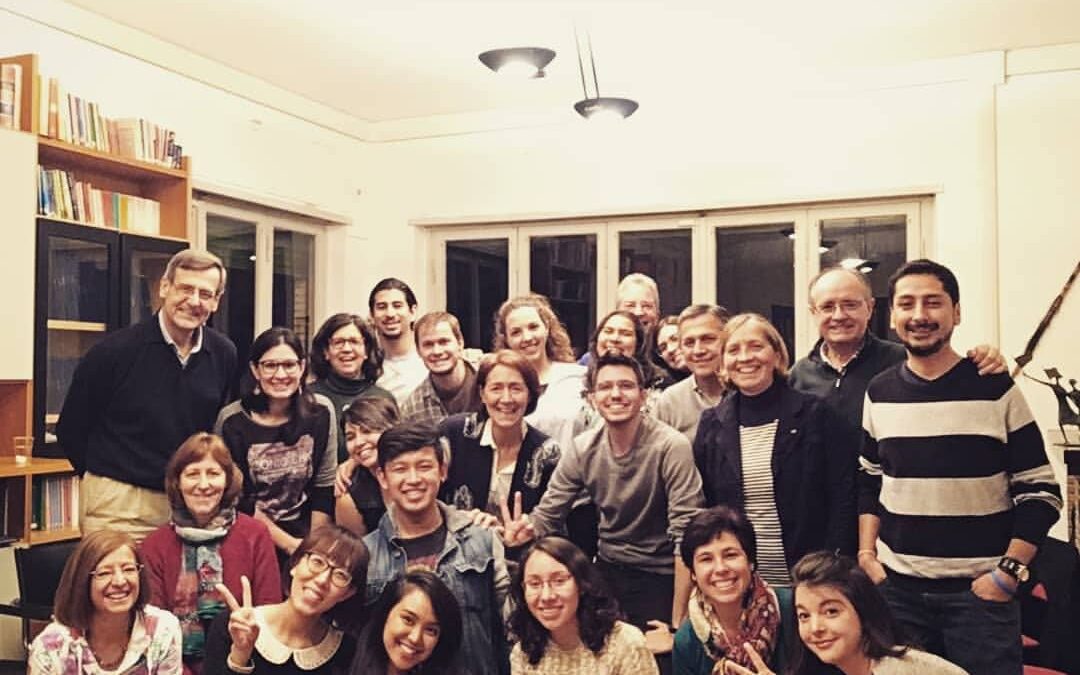
El Salvador: Nelson’s Story
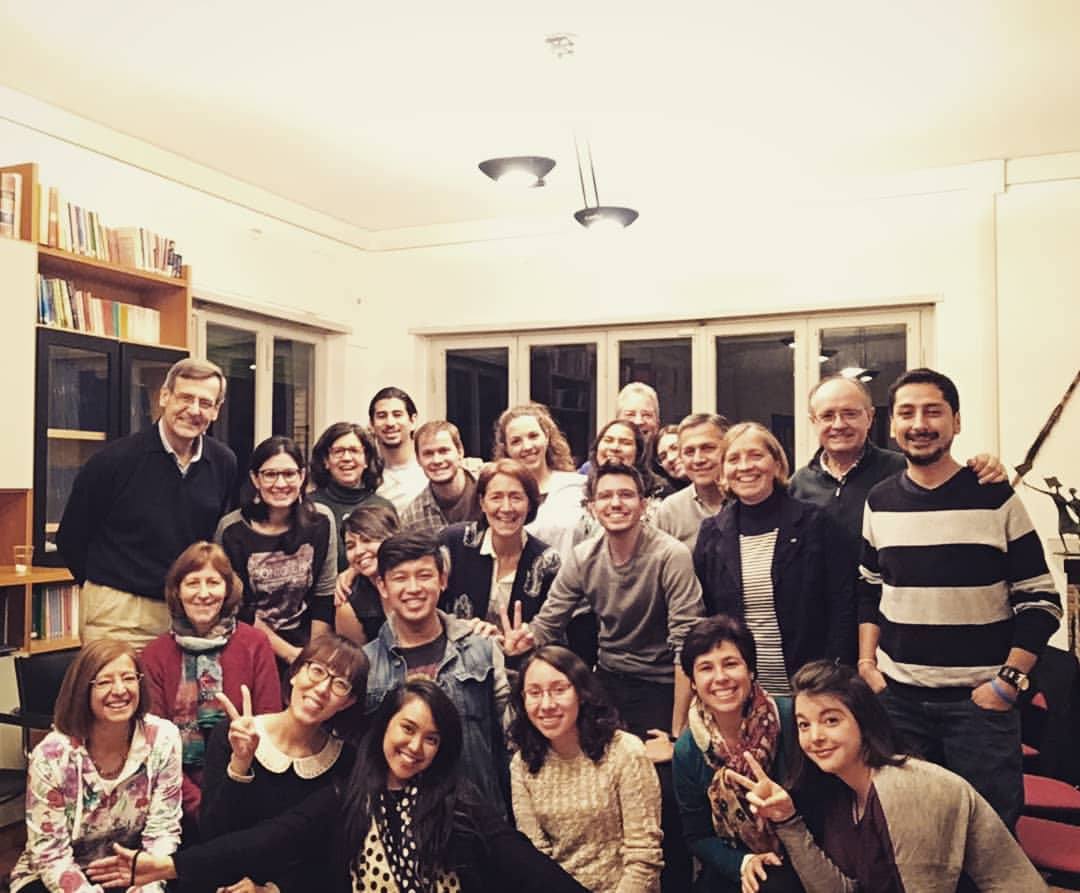 “I’m working in Italy working with some other young people my age for the upcoming 2018 Genfest in Manila.” Preparations are in full swing for the first Genfest ever held outside Europe. Nelson joined the international group of teenagers who were already at work, ever since he arrived in Italy in 2017 – first in Loppiano and then at the international Gen2 centre near Rome where we are interviewing him. “I come from El Salvador, the least expansive but most populated country in Central America. It’s a beautiful place, but has recently been hit by a civil war that lasted for 12 years and ended in 1992, leaving the country completely destroyed.” Nelson explains; “After the end of the war, many families found themselves looking for a place to settle and many parents emigrated, leaving their children with relatives or anyone who would take them in. But in the midst of the overall bewilderment, this resulted in an entire generation of boys and teenagers who were left without guidance or direction, or even anyone to show some genuine interest in them. To that was added the complication of getting the money earned outside the country to its destination in El Salvador. Many of these boys were left deprived of everything and began to leave school and roam the streets, seeking in delinquency the attention that they hadn’t found anwhere else. In short, recruiting adolescents, some of them quite young, they formed into many criminall groups who became more and more rooted and dangerous, each with its own name and symbolism, rituals and gestures.” “To uproot what seemed at first a simple problem to solve, the government launched a plan, which was also very violent, inprisoning anyone with a tatoo. The result was an unprecedented escalation of ferocious violence from the gangs that began to kill for no reason, to threaten more and more young people, forcing them into their groups. Before moving to Italy, I worked in San Miguel at a Salesian school which was dedicated to more than a thousand students who come from outside the city every week. Many of them have serious family problems, or parents enlisted in criminal groups, or even worse, they themselves are on the verge of joining. I taught physical education. One day, during swimming class, a boy wanted to jump into the pool without removing his shirt, even though that was against the rules. He was nervous and afraid. So I took him aside so that I could talk to him alone. I asked him the reason why. He told me that he had had himself tattooed with the symbol of a group, and didn’t want anyone to know. I gave him permissioin to get into the water with the shirt on, but afterwards, in class, I returned to the topic and we began to talk about ways of finding alternatives to criminality. Then, for the rest of the year, we tried to explain to him all of us together, that there’s always a way out, another way to live, far from violence. A few months later I saw him proudly wearing a work uniform, he had managed to leave the group which, thanks be to God had left him in peace. Now he’s providing for his family. ‘Thanks Prof. Thanks to all of you who helped me to realize that I could be a different person from what I started out to be. Thank you mostly for helping me to change the direction of my life.’” Chiara Favotti
“I’m working in Italy working with some other young people my age for the upcoming 2018 Genfest in Manila.” Preparations are in full swing for the first Genfest ever held outside Europe. Nelson joined the international group of teenagers who were already at work, ever since he arrived in Italy in 2017 – first in Loppiano and then at the international Gen2 centre near Rome where we are interviewing him. “I come from El Salvador, the least expansive but most populated country in Central America. It’s a beautiful place, but has recently been hit by a civil war that lasted for 12 years and ended in 1992, leaving the country completely destroyed.” Nelson explains; “After the end of the war, many families found themselves looking for a place to settle and many parents emigrated, leaving their children with relatives or anyone who would take them in. But in the midst of the overall bewilderment, this resulted in an entire generation of boys and teenagers who were left without guidance or direction, or even anyone to show some genuine interest in them. To that was added the complication of getting the money earned outside the country to its destination in El Salvador. Many of these boys were left deprived of everything and began to leave school and roam the streets, seeking in delinquency the attention that they hadn’t found anwhere else. In short, recruiting adolescents, some of them quite young, they formed into many criminall groups who became more and more rooted and dangerous, each with its own name and symbolism, rituals and gestures.” “To uproot what seemed at first a simple problem to solve, the government launched a plan, which was also very violent, inprisoning anyone with a tatoo. The result was an unprecedented escalation of ferocious violence from the gangs that began to kill for no reason, to threaten more and more young people, forcing them into their groups. Before moving to Italy, I worked in San Miguel at a Salesian school which was dedicated to more than a thousand students who come from outside the city every week. Many of them have serious family problems, or parents enlisted in criminal groups, or even worse, they themselves are on the verge of joining. I taught physical education. One day, during swimming class, a boy wanted to jump into the pool without removing his shirt, even though that was against the rules. He was nervous and afraid. So I took him aside so that I could talk to him alone. I asked him the reason why. He told me that he had had himself tattooed with the symbol of a group, and didn’t want anyone to know. I gave him permissioin to get into the water with the shirt on, but afterwards, in class, I returned to the topic and we began to talk about ways of finding alternatives to criminality. Then, for the rest of the year, we tried to explain to him all of us together, that there’s always a way out, another way to live, far from violence. A few months later I saw him proudly wearing a work uniform, he had managed to leave the group which, thanks be to God had left him in peace. Now he’s providing for his family. ‘Thanks Prof. Thanks to all of you who helped me to realize that I could be a different person from what I started out to be. Thank you mostly for helping me to change the direction of my life.’” Chiara Favotti
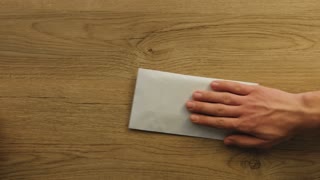
Living the Gospel: The Fountain of Life
 An Immediate Response We bought firewood and kerosene for the winter, in early summer. But it was already autmn and we didn’t have the money for the heating. One day, talking among ourselves in the family, we said: “The Eternal Father knows our needs and the important thing is trust in Him.” We hadn’t even finished saying it, when our friend arrived with an envelope full of money from a collection that had been taken. It had never happened to us before, to receive such a quick answer from God who cares for his children! I.S. – Serbia From the Dentist There was a boy in our community with very bad teeth, but being from a poor family he couldn’t afford to get them fixed. One day, we took him to a dentist, but when we got to the dentist’s office, we realized that all the patients were wealthy people. Trustin in Providence, we went in anyway. After the visit, the doctor asked us if we could afford such a costly procedure. We explained that we and our friends had held held a sale to help cover the expenses. The doctor became curious and wanted to know more. “You can pay me what you have,” she concluded. As we were leaving, she called us back and said: “You know, I’m going through a lot of problems and I thought I could do it for free, if you pray for me.” That’s what we did. Some time later the doctor told us that our presence brought a note of peace and joy to her work. G.B. – Pilippines Meetings in Jail Aware that there were many lonely people who needed someone to accompany them, we decided to go and visit the patients in a hospital, prisoners and teenagers in an orphanage. We brought toys and clothes for the orphans. Then we said: Why not use the means of communication to reach out to the most people possible? We obtained a half hour of radio time from a local radio. Many listeners were listening to our programm. When we went back to the jail, they welcomed us saying that, after listening to our radio program, they were waiting for us to come. Usually kids like us aren’t allowed into the jail, but they made an exception for us. With songs and dances, we shared our expeirences of living the Gospel, with men and women detainees, a dozen or so guards. They invited us to come back again. The local newspaper covered the news of this encounter in the jail. A group of friends – Uganda Illness When I learned that Monique had ALS disease, even though we hadn’t seen one another for two years, I went back to get in touch with her and see if there was anything I could do. We had been greatly in love, but for various reasons had drifted apart. Monique’s simple faith clashed with my agnosticism. Being at her side as she accepted the new situation with peace and serenity, I went through a complete change of mentality. A Christian would call it conversion. By the time her illness reached the terminal stage, I found myself completely changed. I’m not saying that I found the fith, but the respect for Monique had created a new space in my. J. M. – France
An Immediate Response We bought firewood and kerosene for the winter, in early summer. But it was already autmn and we didn’t have the money for the heating. One day, talking among ourselves in the family, we said: “The Eternal Father knows our needs and the important thing is trust in Him.” We hadn’t even finished saying it, when our friend arrived with an envelope full of money from a collection that had been taken. It had never happened to us before, to receive such a quick answer from God who cares for his children! I.S. – Serbia From the Dentist There was a boy in our community with very bad teeth, but being from a poor family he couldn’t afford to get them fixed. One day, we took him to a dentist, but when we got to the dentist’s office, we realized that all the patients were wealthy people. Trustin in Providence, we went in anyway. After the visit, the doctor asked us if we could afford such a costly procedure. We explained that we and our friends had held held a sale to help cover the expenses. The doctor became curious and wanted to know more. “You can pay me what you have,” she concluded. As we were leaving, she called us back and said: “You know, I’m going through a lot of problems and I thought I could do it for free, if you pray for me.” That’s what we did. Some time later the doctor told us that our presence brought a note of peace and joy to her work. G.B. – Pilippines Meetings in Jail Aware that there were many lonely people who needed someone to accompany them, we decided to go and visit the patients in a hospital, prisoners and teenagers in an orphanage. We brought toys and clothes for the orphans. Then we said: Why not use the means of communication to reach out to the most people possible? We obtained a half hour of radio time from a local radio. Many listeners were listening to our programm. When we went back to the jail, they welcomed us saying that, after listening to our radio program, they were waiting for us to come. Usually kids like us aren’t allowed into the jail, but they made an exception for us. With songs and dances, we shared our expeirences of living the Gospel, with men and women detainees, a dozen or so guards. They invited us to come back again. The local newspaper covered the news of this encounter in the jail. A group of friends – Uganda Illness When I learned that Monique had ALS disease, even though we hadn’t seen one another for two years, I went back to get in touch with her and see if there was anything I could do. We had been greatly in love, but for various reasons had drifted apart. Monique’s simple faith clashed with my agnosticism. Being at her side as she accepted the new situation with peace and serenity, I went through a complete change of mentality. A Christian would call it conversion. By the time her illness reached the terminal stage, I found myself completely changed. I’m not saying that I found the fith, but the respect for Monique had created a new space in my. J. M. – France
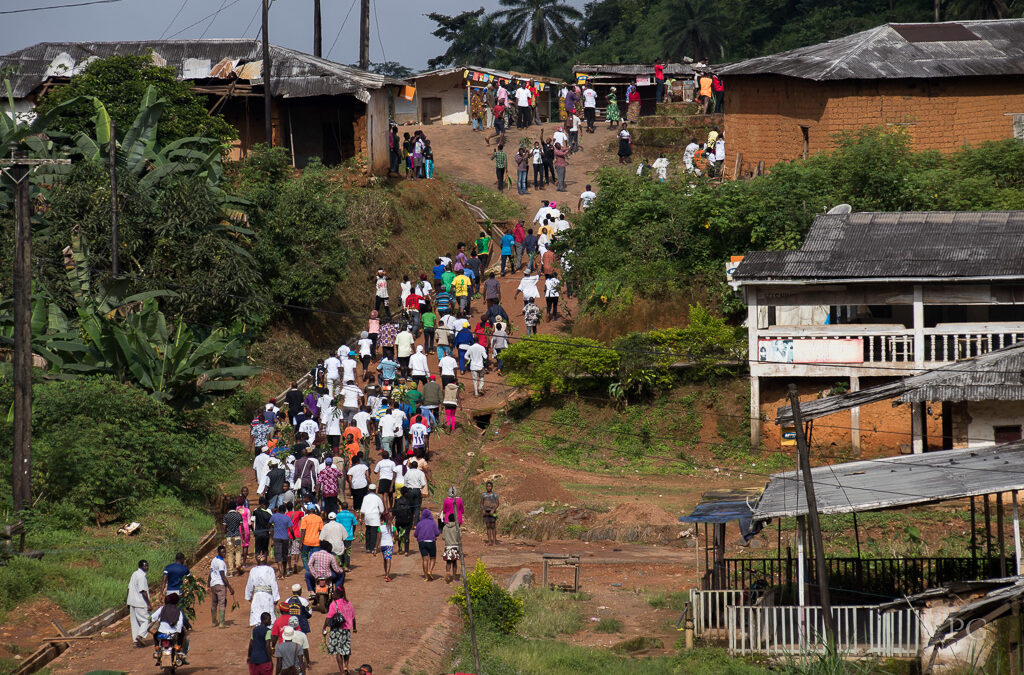
Fontem: A Journey of Unity
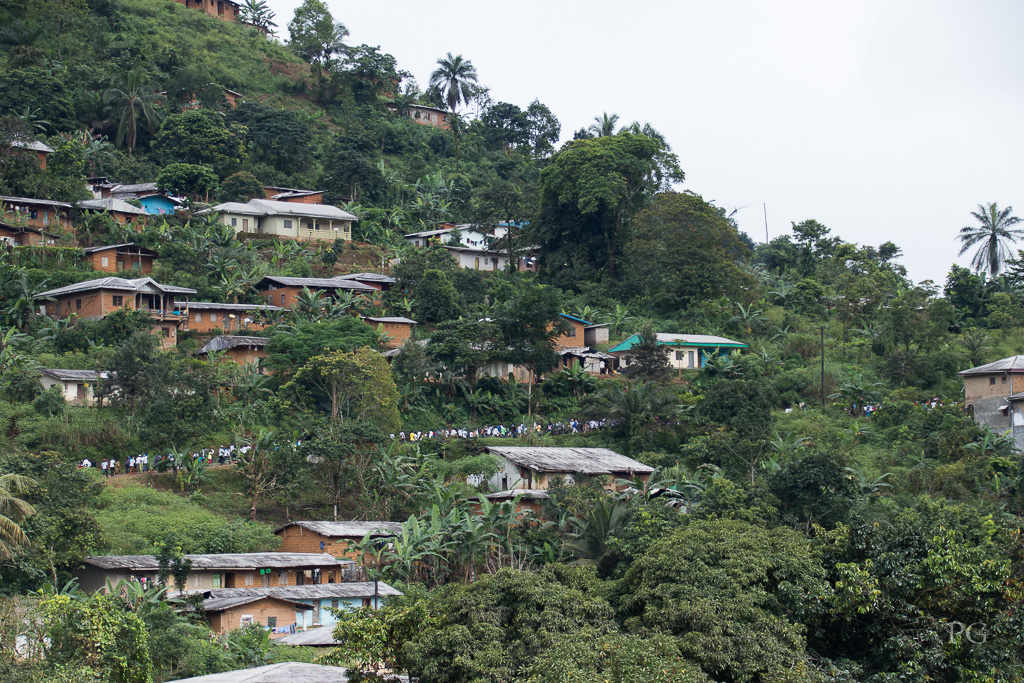 Cameroon, in the equatorial region of West Africa, is composed of two groups of regions that speak French and English respectively. The differences between them are not limited to language, but also some aspects of public administration. An escalation of violence is threatening the country of 23 million people livining within a territory of 475 thousand square kilometers. Raphaël Takougang, a Cameroonian lawyer and member of the Focolare, who now lives in Italy, explains: “The francophone part became independent on January 1, 1960. For the English-speaking part there was a referendum on October 1, 1961 to decide whether or not to join neighbouring Nigeria, which was already Anglophone, or stay with Cameroon. The northern part of this region chose to join Nigeria, the south preferred to stay with Cameroon. Thus was born a Federal Republic with two states, East Cameroon and South Cameroon, each with its own institutions – Parliament, government, legal systems – and others at the federal level. On May 20, 1972, another referendum resulted in the United Republic of Cameroon. In 1984, a small change in the Constitution removed the word “united” and, from then on, the country has been called the Republic of Cameroon. Ever since 1972 the malaise has been growing among the Anglophones who are a strong minority in the country, and there is even a name for it: the Anglophone problem.
Cameroon, in the equatorial region of West Africa, is composed of two groups of regions that speak French and English respectively. The differences between them are not limited to language, but also some aspects of public administration. An escalation of violence is threatening the country of 23 million people livining within a territory of 475 thousand square kilometers. Raphaël Takougang, a Cameroonian lawyer and member of the Focolare, who now lives in Italy, explains: “The francophone part became independent on January 1, 1960. For the English-speaking part there was a referendum on October 1, 1961 to decide whether or not to join neighbouring Nigeria, which was already Anglophone, or stay with Cameroon. The northern part of this region chose to join Nigeria, the south preferred to stay with Cameroon. Thus was born a Federal Republic with two states, East Cameroon and South Cameroon, each with its own institutions – Parliament, government, legal systems – and others at the federal level. On May 20, 1972, another referendum resulted in the United Republic of Cameroon. In 1984, a small change in the Constitution removed the word “united” and, from then on, the country has been called the Republic of Cameroon. Ever since 1972 the malaise has been growing among the Anglophones who are a strong minority in the country, and there is even a name for it: the Anglophone problem. 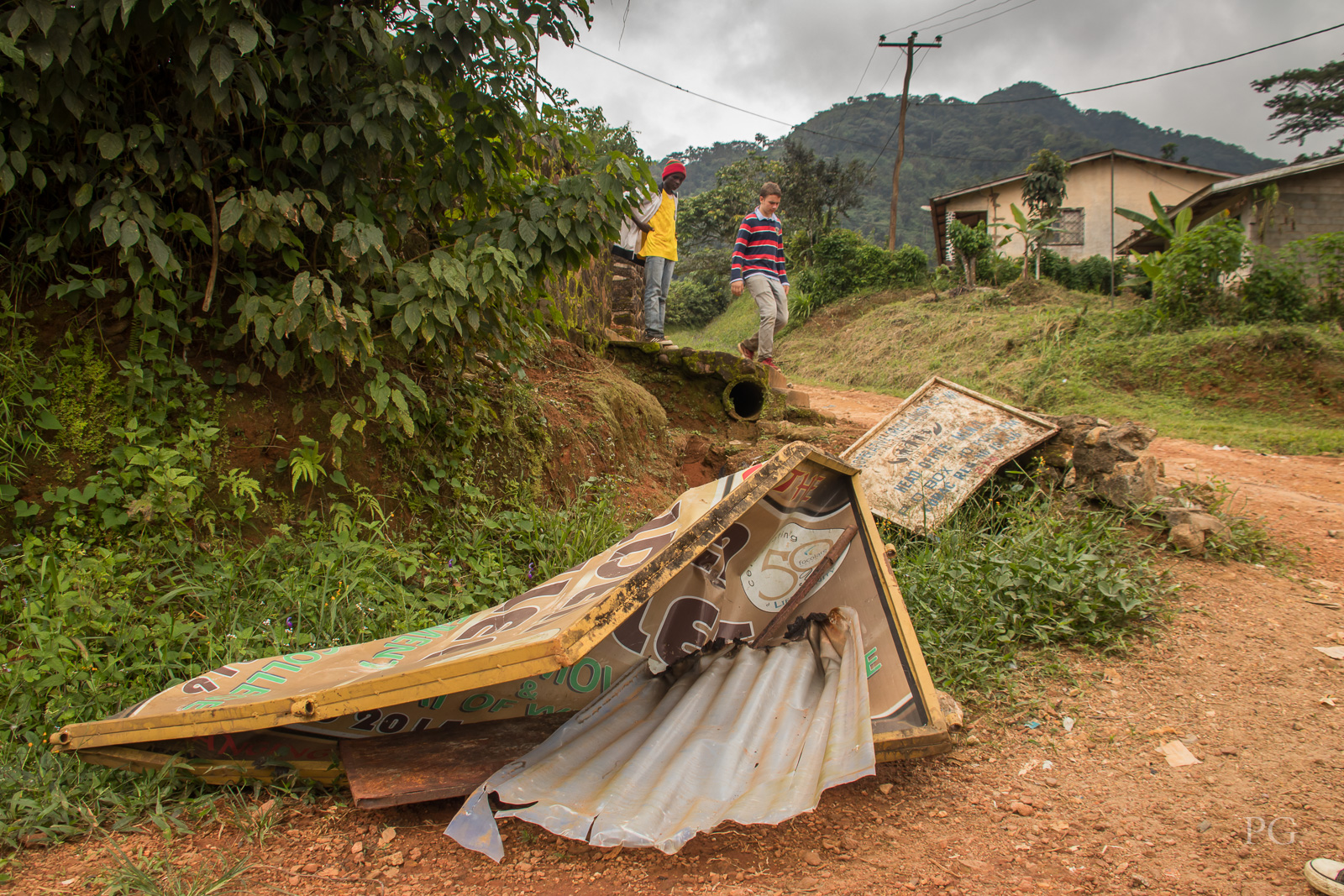 Ever since 2016 the crisis situation in the Anglophone region set off a series of strikes, first against teachers, then against lawyers. The people of the Mariapolis in Fontem, in the very heart of the Cameroon forest, explain: “While on the one hand the bishops had always encouraged dialogue, the boycotting of educational and justice institutions had an unexpected result on the crisis, which worsened with an escalation of strikes also among commercial businesses and transportation systems, in accordance with a strategy known as “Dead City.” No students showed up for the beginning of the last year school year. Despite the threats of reprisals against transgressors, here and there, some schools courageously opened their doors and others followed their example. The OLSW College in Fontem also resumed classes.” The Mariapolis in Fontem was born from the testimony of concrete love of some doctors, who arrived there in 1966, after the local bishop appealed to Chiara Lubich to take care of the Bangwa people, who were suffering from a very high infant mortality rate that was leading to their extinction. In a short time, thanks to the contribution of people from all over the world, Fontem equipped itself with schools, a hospital and other service facilities. Since then, the Bangwa people and several other neighbouring peoples have set out on the path of fraternity, which can be seen now in other citadels that have begun on the African continent. With its 80 thousand citizens, Fontem is a meeting and training place for people from all over Africa and the world. Here they experience how the exchange and collaboration among men and women of different races, cultures and traditions can bear fruits of brotherhood even in regions battered by conflicts.
Ever since 2016 the crisis situation in the Anglophone region set off a series of strikes, first against teachers, then against lawyers. The people of the Mariapolis in Fontem, in the very heart of the Cameroon forest, explain: “While on the one hand the bishops had always encouraged dialogue, the boycotting of educational and justice institutions had an unexpected result on the crisis, which worsened with an escalation of strikes also among commercial businesses and transportation systems, in accordance with a strategy known as “Dead City.” No students showed up for the beginning of the last year school year. Despite the threats of reprisals against transgressors, here and there, some schools courageously opened their doors and others followed their example. The OLSW College in Fontem also resumed classes.” The Mariapolis in Fontem was born from the testimony of concrete love of some doctors, who arrived there in 1966, after the local bishop appealed to Chiara Lubich to take care of the Bangwa people, who were suffering from a very high infant mortality rate that was leading to their extinction. In a short time, thanks to the contribution of people from all over the world, Fontem equipped itself with schools, a hospital and other service facilities. Since then, the Bangwa people and several other neighbouring peoples have set out on the path of fraternity, which can be seen now in other citadels that have begun on the African continent. With its 80 thousand citizens, Fontem is a meeting and training place for people from all over Africa and the world. Here they experience how the exchange and collaboration among men and women of different races, cultures and traditions can bear fruits of brotherhood even in regions battered by conflicts. 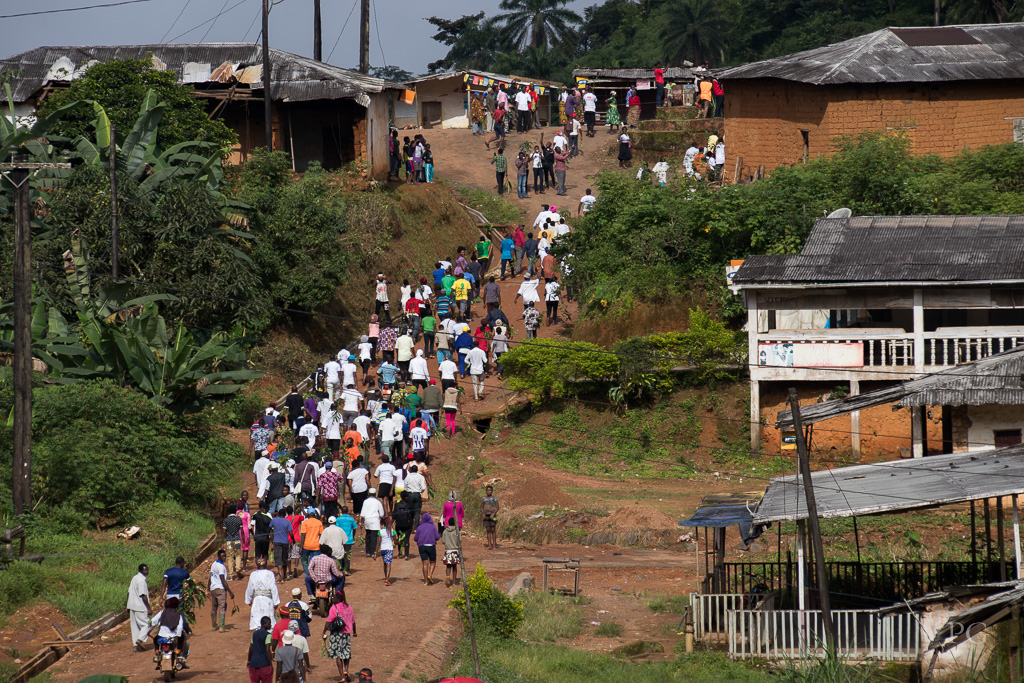 “The Catholic college in Fontem suffered an attack,” the locals have reported, “but many people of the village have come to help students and teachers, even at the risk of their own lives. With the approach of the anniversary of the aforementioned referendum, of October 1, which is such an historical date for the Anglophone region of Cameroon, violent demonstrations were feared, and the Focolare community organized prayer groups that included people from other regions of the country and from abroad. There has been no loss of life in Fontem. Every occasion is good for building relationships with the various civil, traditional and ecclesial authorities. We try to help those near to us to go beyond the fears, to create family moments, starting from those closest to us, who are often confused by the many voices and the media. The young people have organized “talent show” evenings and the “Sports for Peace” event to promote a more positive spirit “. “All during this period, even in the midst of difficulties – they conclude – the life of the Focolare community has continued. We hope that this challenge of love for all will enable us to discern and to act for the good of our country “.
“The Catholic college in Fontem suffered an attack,” the locals have reported, “but many people of the village have come to help students and teachers, even at the risk of their own lives. With the approach of the anniversary of the aforementioned referendum, of October 1, which is such an historical date for the Anglophone region of Cameroon, violent demonstrations were feared, and the Focolare community organized prayer groups that included people from other regions of the country and from abroad. There has been no loss of life in Fontem. Every occasion is good for building relationships with the various civil, traditional and ecclesial authorities. We try to help those near to us to go beyond the fears, to create family moments, starting from those closest to us, who are often confused by the many voices and the media. The young people have organized “talent show” evenings and the “Sports for Peace” event to promote a more positive spirit “. “All during this period, even in the midst of difficulties – they conclude – the life of the Focolare community has continued. We hope that this challenge of love for all will enable us to discern and to act for the good of our country “.
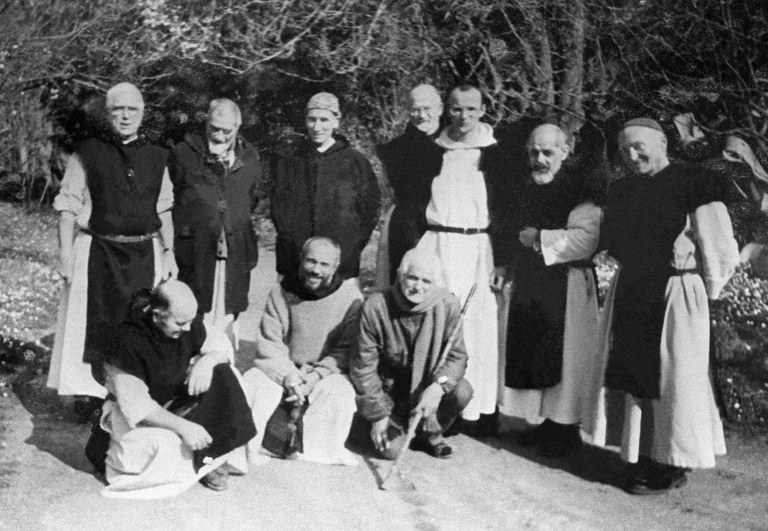
Algeria: martyrs for God
 The Vatican has promulgated the decree attesting to the martyrdom of the 7 monks of Tibhirine, among whom Msgr Pierre Claverie, Bishop of Orano, and the other 11 male and female consecrated religious, killed between 1994 and 1996 during the Algerian civil war which caused the death of thousands of innocent people among which journalists, writers, Imams and common folk. A movie entitled “Of Gods and Men” was made about the 7 Trappist monks who were abducted from their abbey of Our Lady of Atlante (80 km from Algiers) and slain in still obscure circumstances. These vicissitudes reached their peak in August 1996, when the Dominican Bishop of Orano, fervid defender of the reconciliation between Muslims and Christians, was killed together with his Muslim driver, by a bomb at the entrance of his house. The spokesman of the French Bishops’ Conference said “They are martyrs of love because they loved up to the end, giving their lives for their Algerian friends. For us it is a sign that love is not vain and will triumph.” The Algerian bishops commented “Our Church is rejoicing” associating to their homage “the thousands of people who were not afraid to risk their own lives for their fidelity in the faith in God, their country and their conscience.”
The Vatican has promulgated the decree attesting to the martyrdom of the 7 monks of Tibhirine, among whom Msgr Pierre Claverie, Bishop of Orano, and the other 11 male and female consecrated religious, killed between 1994 and 1996 during the Algerian civil war which caused the death of thousands of innocent people among which journalists, writers, Imams and common folk. A movie entitled “Of Gods and Men” was made about the 7 Trappist monks who were abducted from their abbey of Our Lady of Atlante (80 km from Algiers) and slain in still obscure circumstances. These vicissitudes reached their peak in August 1996, when the Dominican Bishop of Orano, fervid defender of the reconciliation between Muslims and Christians, was killed together with his Muslim driver, by a bomb at the entrance of his house. The spokesman of the French Bishops’ Conference said “They are martyrs of love because they loved up to the end, giving their lives for their Algerian friends. For us it is a sign that love is not vain and will triumph.” The Algerian bishops commented “Our Church is rejoicing” associating to their homage “the thousands of people who were not afraid to risk their own lives for their fidelity in the faith in God, their country and their conscience.”
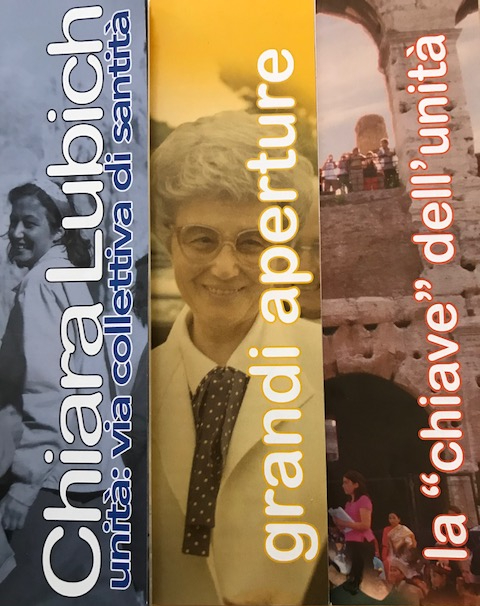
A brochure on Chiara Lubich
I n the framework of the Cause of Beatification of the Servant of God Chiara Lubich, which opened on 27 January 2015 in the Diocese of Frascati, a practical brochure with all-encompassing contents on the figure of the Founder of the Focolare Movement has been released, and is momentarily available in Italian. The new publication aims at illustrating, in a simple communicative language, her intense life and the numberless works and initiatives she promoted. It is structured in three parts: Chiara and the charism of unity; the “great openings or dialogues in the ecumenical, interreligious and contemporary cultural fields; and her spiritual insight into the mystery of “Jesus Forsaken,” which she understood, lived and proposed as the “key” to achieving unity with God, and among peoples. The idea of preparing a biographic Profile arose from the need to divulge some of the intense work of the “collection” which the Postulation of the Cause of beatification of Chiara is doing, starting from what she said about sanctity, and of how she lived it and proposed it to all, starting from the letters she wrote in the early years of the movement. The drafting of the text was shared along all the phases of elaboration, not only by the members of the Postulation but also by experts, friends, elderly and the youth. Those who wish to receive one or more paper copies may address: Postulation of the Cause of Beatification of Chiara Silvia Lubich Focolare Movement Via Frascati, 306 – 00040 Rocca di Papa (RM) – Italia Telefono +39 06 947 981 39 – Cell. +39 389 343 9529 E-mail: postulazionechiaralubich@focolare.org
n the framework of the Cause of Beatification of the Servant of God Chiara Lubich, which opened on 27 January 2015 in the Diocese of Frascati, a practical brochure with all-encompassing contents on the figure of the Founder of the Focolare Movement has been released, and is momentarily available in Italian. The new publication aims at illustrating, in a simple communicative language, her intense life and the numberless works and initiatives she promoted. It is structured in three parts: Chiara and the charism of unity; the “great openings or dialogues in the ecumenical, interreligious and contemporary cultural fields; and her spiritual insight into the mystery of “Jesus Forsaken,” which she understood, lived and proposed as the “key” to achieving unity with God, and among peoples. The idea of preparing a biographic Profile arose from the need to divulge some of the intense work of the “collection” which the Postulation of the Cause of beatification of Chiara is doing, starting from what she said about sanctity, and of how she lived it and proposed it to all, starting from the letters she wrote in the early years of the movement. The drafting of the text was shared along all the phases of elaboration, not only by the members of the Postulation but also by experts, friends, elderly and the youth. Those who wish to receive one or more paper copies may address: Postulation of the Cause of Beatification of Chiara Silvia Lubich Focolare Movement Via Frascati, 306 – 00040 Rocca di Papa (RM) – Italia Telefono +39 06 947 981 39 – Cell. +39 389 343 9529 E-mail: postulazionechiaralubich@focolare.org

City of fellowship and solidarity
 A national conference will be held on February 10 in the city of Loreto, Italy. The title of the conference will be “The City: is it a place for fellowship and solidarity?” The event is organized by the Città per la Fraternità organization which was started in 2008 and inspired by the thought of Chiara Lubich and by the life of the Focolare Movement. It currently brings together some 140 large and small municipal administrations, in spreading the spirit of unity in the local authorities. Every year the Association presents the Chiara Lubich International Fellowship Award, which is assigned to one or more municipalities. The Award is given for a project that succeeds at applying one or more aspects of the principle of brotherhood in the public sphere, and is able to show the participation of citizens in building a culture of active and inclusive citizenship. The conference will include the participation of civil and religious leaders. In the afternoon, Elena Granata, an urban scholar at the Politech University of Milan and Marco Luppi, history scholar at Sophia University Institute (SUI) will give presentations that deal with the topic of living fellowship and solidarity and to do so in a city environment
A national conference will be held on February 10 in the city of Loreto, Italy. The title of the conference will be “The City: is it a place for fellowship and solidarity?” The event is organized by the Città per la Fraternità organization which was started in 2008 and inspired by the thought of Chiara Lubich and by the life of the Focolare Movement. It currently brings together some 140 large and small municipal administrations, in spreading the spirit of unity in the local authorities. Every year the Association presents the Chiara Lubich International Fellowship Award, which is assigned to one or more municipalities. The Award is given for a project that succeeds at applying one or more aspects of the principle of brotherhood in the public sphere, and is able to show the participation of citizens in building a culture of active and inclusive citizenship. The conference will include the participation of civil and religious leaders. In the afternoon, Elena Granata, an urban scholar at the Politech University of Milan and Marco Luppi, history scholar at Sophia University Institute (SUI) will give presentations that deal with the topic of living fellowship and solidarity and to do so in a city environment
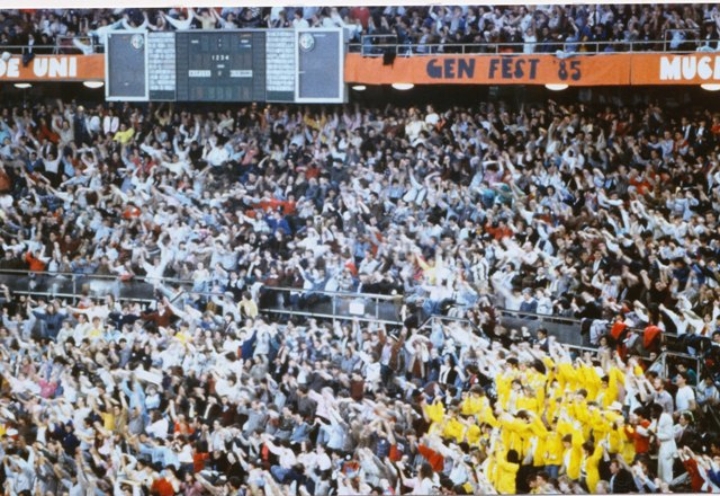
Our Genfest: “Yes to you”
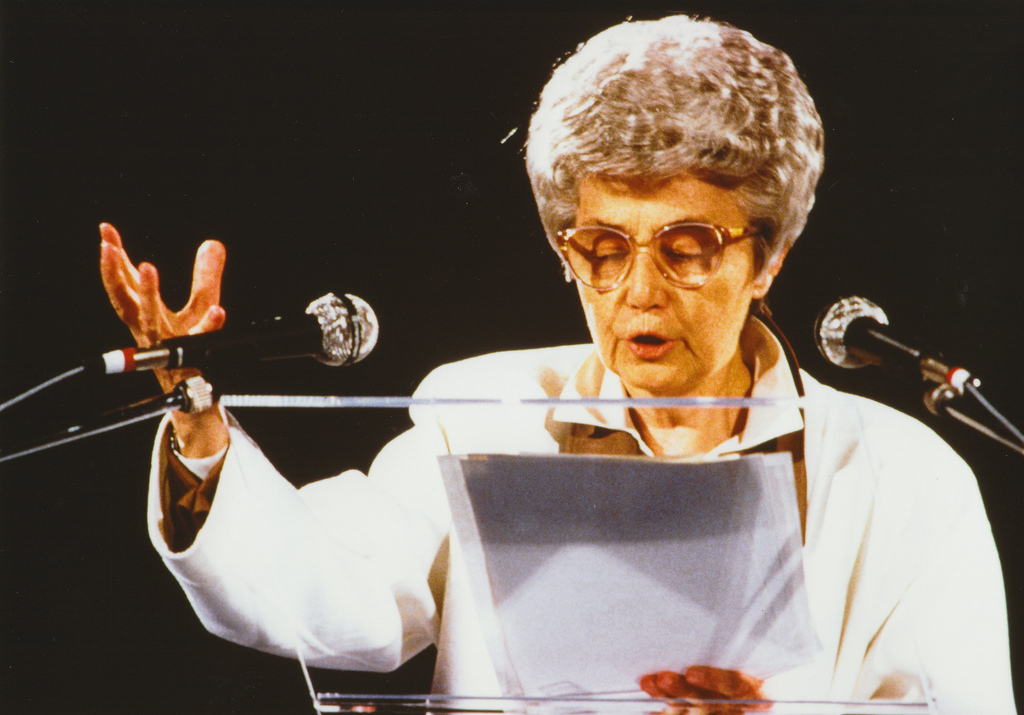 Inspired by our experience of Genfest 1980 , Andrew Basquille, Eugene Murphy and I, all students at University College Dublin at the time, started to dedicate more time to playing music together and entered a period of sustained creativity that resulted in the composition of many songs both individually and collectively. “Yes to You”, the song that we performed at the GenFest in 1985 dates from this time. Here’s how it came to be written. Chiara Lubich visited London in 1981 and most of the Focolare Community in Ireland travelled to Great Britain for the event. One afternoon, as a group of us took lunch together close to the venue where Chiara was speaking, I started to play simple chords on the piano and developed a nice melody using a slightly unusual C / Dm / G progression (on guitar I wouldn’t have naturally played such a sequence). A volunteer, Joe McCarroll, a gifted songwriter in his own right, joined me and sang the lines “So many times that I’ve said maybe” to the emerging melody.
Inspired by our experience of Genfest 1980 , Andrew Basquille, Eugene Murphy and I, all students at University College Dublin at the time, started to dedicate more time to playing music together and entered a period of sustained creativity that resulted in the composition of many songs both individually and collectively. “Yes to You”, the song that we performed at the GenFest in 1985 dates from this time. Here’s how it came to be written. Chiara Lubich visited London in 1981 and most of the Focolare Community in Ireland travelled to Great Britain for the event. One afternoon, as a group of us took lunch together close to the venue where Chiara was speaking, I started to play simple chords on the piano and developed a nice melody using a slightly unusual C / Dm / G progression (on guitar I wouldn’t have naturally played such a sequence). A volunteer, Joe McCarroll, a gifted songwriter in his own right, joined me and sang the lines “So many times that I’ve said maybe” to the emerging melody.  I continued with the line “So many times that I said no” and continued with the melody when Andrew joined and completed the lyric which then became the verse. Over the next two days between Andrew and myself we completed about 3 verses but didn’t know where to go for a chorus. This was eventually added – melody and lyric together – by Eugene who stamped his musical sophistication on the song by taking the chorus to Am and then to a beautiful minor / major interplay in E that reflected and emphasised a new level of conviction in the choice – “Yes to you”. We were the asked to perform the song at the Genfest and spend months practising it. On the day we waited patiently for our turn to sing but began to realise that the show was running behind time. Sure enough, we were informed that our intervention had been cut and, bitterly disappointed, I started to pack up my guitar accordingly, months of effort and practice gone down the drain. But then, very suddenly, the decision was reversed and we found ourselves taking our positions on a vast stage without a sound check and unable to make eye contact with each other. I didn’t have time to take my own guitar and was given a Spanish guitar with nylon strings, a type I was not used to playing! So we played “Yes to you” at Genfest 1985 completely out of our comfort zone, forced to depend on the strength of our relationship with each other and our desire to have Jesus in our midst. My experience at Genfest 1985 was one of validation and verification – validation of my choice to live for unity and verification that it was possible. I had many experiences of large scale events – festivals, football matches, concerts – but at Genfest there was no hatred, hostility and enmity like when rival factions meet at soccer games and the fleeting alcohol / drug induced euphoria that’s common at festivals and concerts was replaced by a deeper, more lasting joy.
I continued with the line “So many times that I said no” and continued with the melody when Andrew joined and completed the lyric which then became the verse. Over the next two days between Andrew and myself we completed about 3 verses but didn’t know where to go for a chorus. This was eventually added – melody and lyric together – by Eugene who stamped his musical sophistication on the song by taking the chorus to Am and then to a beautiful minor / major interplay in E that reflected and emphasised a new level of conviction in the choice – “Yes to you”. We were the asked to perform the song at the Genfest and spend months practising it. On the day we waited patiently for our turn to sing but began to realise that the show was running behind time. Sure enough, we were informed that our intervention had been cut and, bitterly disappointed, I started to pack up my guitar accordingly, months of effort and practice gone down the drain. But then, very suddenly, the decision was reversed and we found ourselves taking our positions on a vast stage without a sound check and unable to make eye contact with each other. I didn’t have time to take my own guitar and was given a Spanish guitar with nylon strings, a type I was not used to playing! So we played “Yes to you” at Genfest 1985 completely out of our comfort zone, forced to depend on the strength of our relationship with each other and our desire to have Jesus in our midst. My experience at Genfest 1985 was one of validation and verification – validation of my choice to live for unity and verification that it was possible. I had many experiences of large scale events – festivals, football matches, concerts – but at Genfest there was no hatred, hostility and enmity like when rival factions meet at soccer games and the fleeting alcohol / drug induced euphoria that’s common at festivals and concerts was replaced by a deeper, more lasting joy.
Padraic Gilligan
The massacres in Afghanistan are continuing
A martyred country without peace, the terrorist groups compete with one another to claim the attacks. Three attacks in a week have provoked a great number of victims among the civilian population: reports talk of about 150 deaths in Kabul and Jalalabad, with over 400 wounded. In Kabul the first target was a hotel, and the second target was the Higher Council for Peace, which was not hit since the terrorist made himself explode at a checkpoint. In Jalalabad they attacked the headquarters of Save the Children, the international organization that has been operating in that area for many years. According to the UN data, last year in the country, 17 humanitarian operators lost their lives, 33 were wounded and 48 were kidnapped. Pope Francis spoke of the attacks during the Angelus of 28 January: “Up to when – he asked himself – will the Afghan people have to bear with this inhuman violence? Let us pray in silence for the victims and their families, and that those in that country will continue to work to build peace.” The Focolare Movement expresses its solidarity with the Afghan people, in the hope that a peace resolution may soon bring serenity to the country.
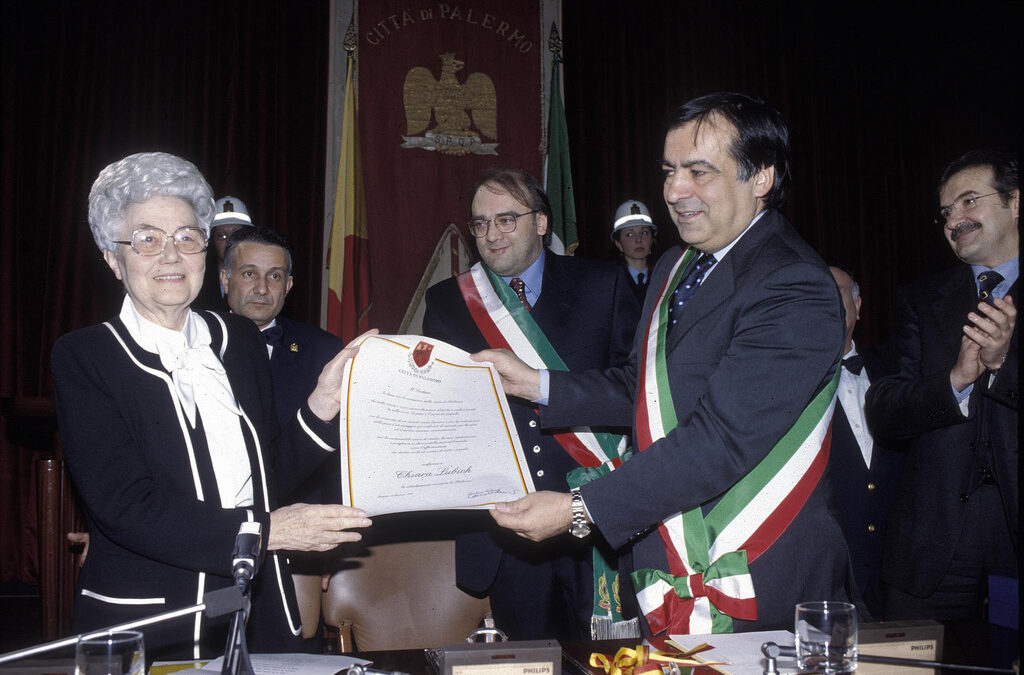
The City of Palermo and Chiara Lubich
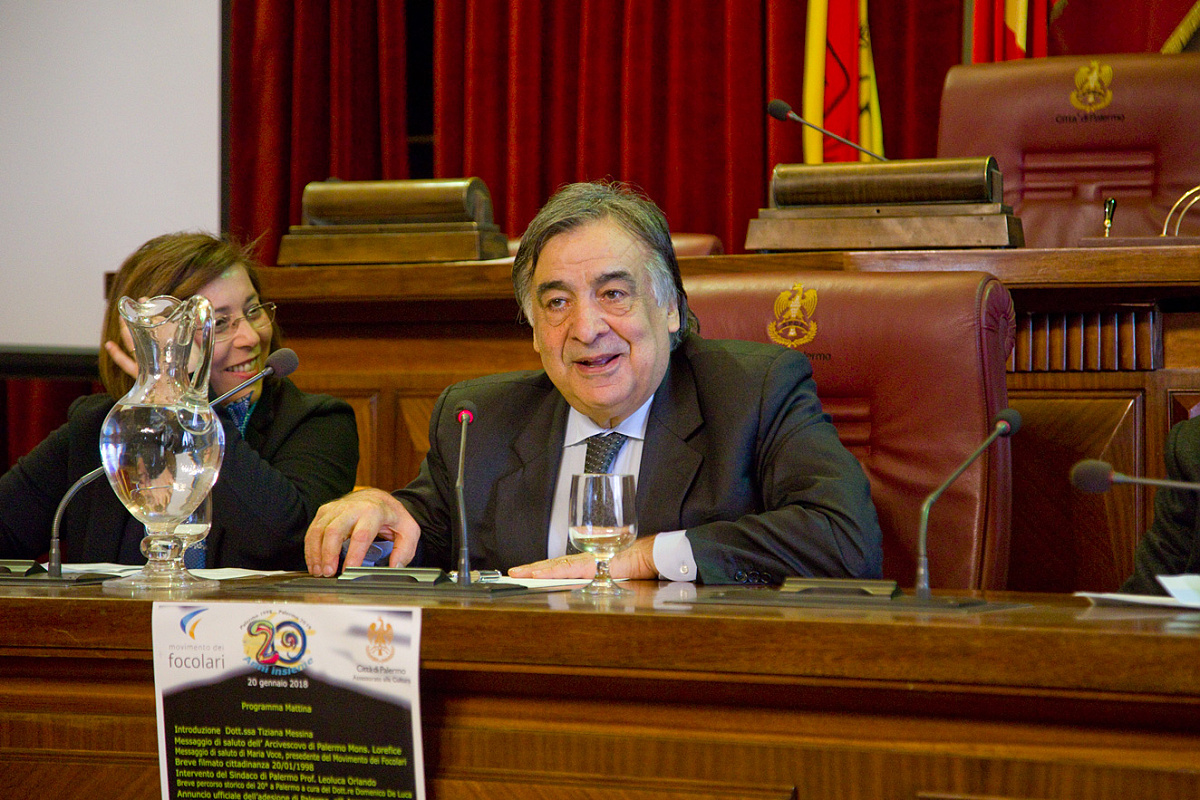 January 1998. Palermo prepared for the Grand Jubilee of the year 2000 attracting to itself the signs of light and shadow. It was a mute city, bloodied by the past and recent massacres of the mafia, but also a city determined to redeem itself and show its true countenance. January 2018. Today, the Sicilian capital appears as a “mosaic city,” an advanced expression of the dialogue between the various European cultures and the Arab world, and an outpost of Middle East culture within the European fabric. In the presence of Mayor Leoluca Orlando and the authorities of some representatives of the institutions, on 20 January the city wanted to “commemorate” – as a “commitment” to proceed in the same direction – an event which was for the city a step in its “magnificent providential design,” according to the words Chiara Lubich expressed then. During the various speeches, some aspects of the life of the Focolare over the last 20 years emerged: the social commitment and in the field of schooling, especially in some outskirt districts like Ballarò, Brancaccio and Zen, the promotion of events and the reflection on some grand themes like ecumenism, commitment toward the new generations with the start-up of schools of civil participation, and the discussion with personalities from the economic, political, cultural and art sectors. In these years the Focolare community has contributed to the journey of the entire city towards the construction of a “city of reception and rights,” with the values of fraternity and the continual pursuit of dialogue.
January 1998. Palermo prepared for the Grand Jubilee of the year 2000 attracting to itself the signs of light and shadow. It was a mute city, bloodied by the past and recent massacres of the mafia, but also a city determined to redeem itself and show its true countenance. January 2018. Today, the Sicilian capital appears as a “mosaic city,” an advanced expression of the dialogue between the various European cultures and the Arab world, and an outpost of Middle East culture within the European fabric. In the presence of Mayor Leoluca Orlando and the authorities of some representatives of the institutions, on 20 January the city wanted to “commemorate” – as a “commitment” to proceed in the same direction – an event which was for the city a step in its “magnificent providential design,” according to the words Chiara Lubich expressed then. During the various speeches, some aspects of the life of the Focolare over the last 20 years emerged: the social commitment and in the field of schooling, especially in some outskirt districts like Ballarò, Brancaccio and Zen, the promotion of events and the reflection on some grand themes like ecumenism, commitment toward the new generations with the start-up of schools of civil participation, and the discussion with personalities from the economic, political, cultural and art sectors. In these years the Focolare community has contributed to the journey of the entire city towards the construction of a “city of reception and rights,” with the values of fraternity and the continual pursuit of dialogue. 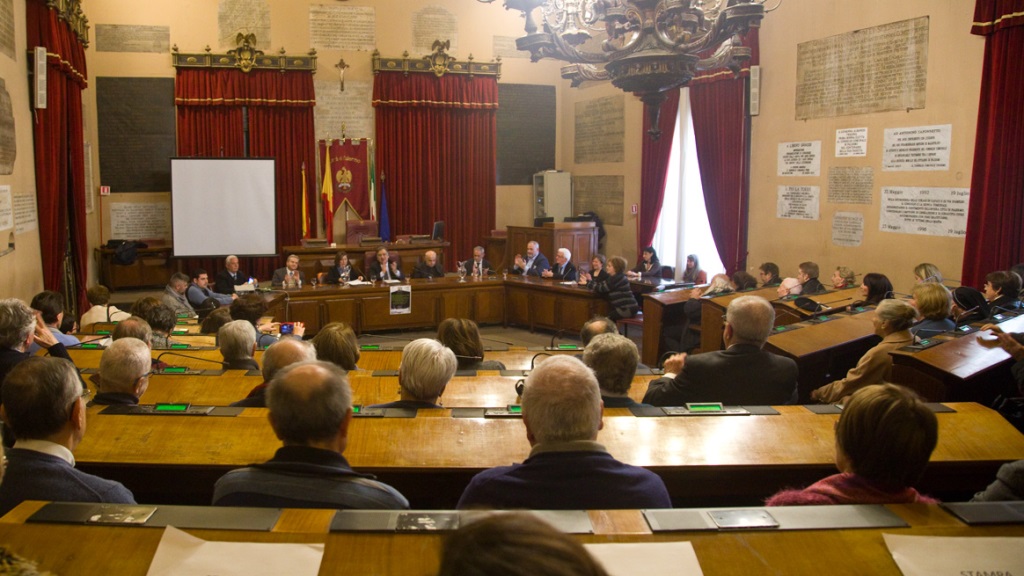 “The memory of the honorary citizenship given to Chiara Lubich,” affirmed Mayor Orlando, “is an occasion to see the city’s progress, in the name of respect for the human being and the construction of a community founded on the values of unity and brotherhood: those on which Chiara had founded her movement and which today brings together millions of people worldwide. Today those values are part of the daily life of Palermo, with reception and solidarity which are the testing grounds, but also an extraordinary occasion to confirm the will of the Palermo people to build a city on a human scale and that welcomes others, as is continually demonstrated in civil society’s undertakings.”
“The memory of the honorary citizenship given to Chiara Lubich,” affirmed Mayor Orlando, “is an occasion to see the city’s progress, in the name of respect for the human being and the construction of a community founded on the values of unity and brotherhood: those on which Chiara had founded her movement and which today brings together millions of people worldwide. Today those values are part of the daily life of Palermo, with reception and solidarity which are the testing grounds, but also an extraordinary occasion to confirm the will of the Palermo people to build a city on a human scale and that welcomes others, as is continually demonstrated in civil society’s undertakings.” 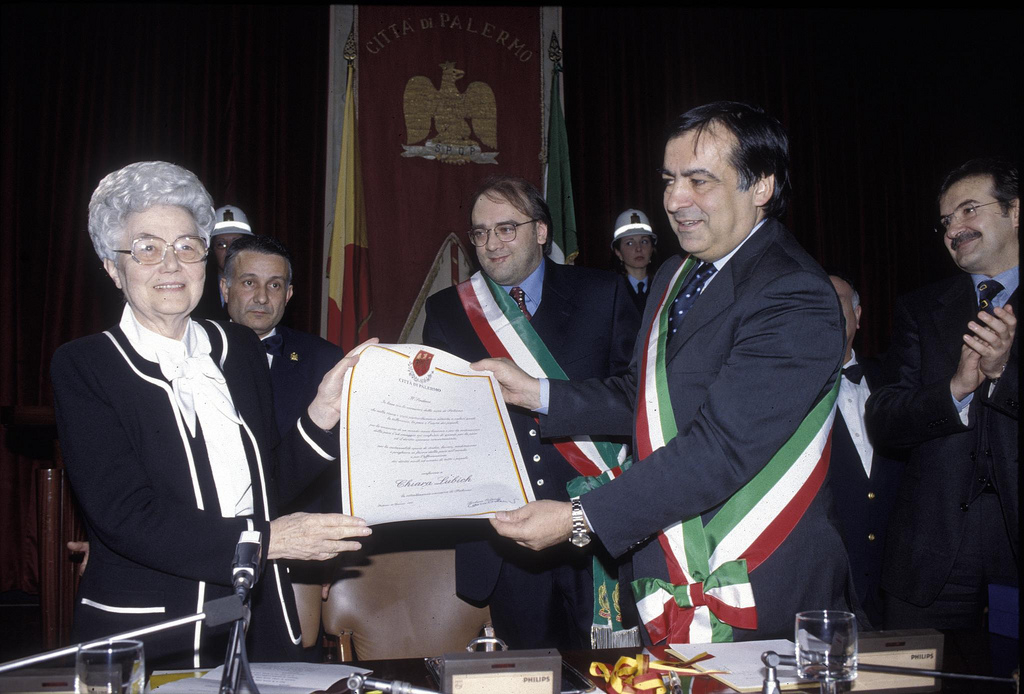 The Archbishop of Palermo, Bishop Corrado Lorefice, encouraged all to continue along this path of fraternity through dialogue at all levels, towards a goal “indicated prophetically by Chiara Lubich: that Palermo may become a city on the hill, to which one can refer for the achievement of God’s design for the community of people.” He added, “the celebration of such an event expresses the deep harmony between the city of Palermo and the values contained in Chiara’s charism: work for the reconstruction of unity of the human family.” Maria Voce, President of the Focolare, encouraged all in a message to “share the many moments of fraternity that have been consolidated all these years to promote acceptance, lawfulness and peace,” with the hope “that the city may increasingly stand out for its active testimony on the various fronts of dialogue, multiplying initiatives and imbuing hope and valorising the talents of all in the perspective of unity.” The adhesion to the “City for fraternity” Association, created by the Municipality of Palermo, further commits its citizens to draw inspiration from universal fraternity in every future decision and action.
The Archbishop of Palermo, Bishop Corrado Lorefice, encouraged all to continue along this path of fraternity through dialogue at all levels, towards a goal “indicated prophetically by Chiara Lubich: that Palermo may become a city on the hill, to which one can refer for the achievement of God’s design for the community of people.” He added, “the celebration of such an event expresses the deep harmony between the city of Palermo and the values contained in Chiara’s charism: work for the reconstruction of unity of the human family.” Maria Voce, President of the Focolare, encouraged all in a message to “share the many moments of fraternity that have been consolidated all these years to promote acceptance, lawfulness and peace,” with the hope “that the city may increasingly stand out for its active testimony on the various fronts of dialogue, multiplying initiatives and imbuing hope and valorising the talents of all in the perspective of unity.” The adhesion to the “City for fraternity” Association, created by the Municipality of Palermo, further commits its citizens to draw inspiration from universal fraternity in every future decision and action.
Word of Life – February 2018
https://www.focolare.org/gb/files/2018/01/201802WOL.mp3 Word of life for ages 4-8 | for ages 9-17 | Print | Audio This Word of Life has been selected by Christians from various churches in Germany to put into practice throughout the year. St John wrote the Book of Revelation to console and to encourage the Christians of his time, who were facing widespread persecution. The book is rich in symbolic images and reveals God’s view on history, and its fulfilment at the end of time with God’s definitive victory over every power of evil. Revelation celebrates a full and glorious point of arrival: the goal God has destined for humanity. It is the promise of liberation from all suffering. God himself “will wipe every tear from their eyes … Death will be no more; mourning and crying and pain will be no more” (Rev 21:4). “To the thirsty I will give water as a gift from the spring of the water of life.” The first signs of this final goal can already be seen now, by those who have sincerely begun to live their life searching for God and his Word that reveals his plans. They can be found by those thirsting for truth, justice, and fraternity. God sees this thirsting and searching positively, as a good start and he even promises to give us the spring of the water of life. The water God promises is given freely. It is not given only to those who hope to please God through their own efforts, but also to all those who feel the burden of their weakness and entrust themselves to his love, believing that they will be cured and will find the fullness of life and happiness. Let us ask ourselves then, what do we thirst for? Moreover, to which springs do we go to quench our thirst? “To the thirsty I will give water as a gift from the spring of the water of life.” Perhaps we are thirsting for acceptance, for an important role in society, for our plans to work out … These legitimate aspirations can push us toward the polluted wells of selfishness and being wrapped up in our own interests to the point of oppressing the weak. Populations suffering a shortage of fresh water wells are acutely aware of the disastrous effects of the lack of this resource, which is indispensable for life and health. Yet by going deeper into our hearts, we find another kind of thirst that God himself has put there; the thirst to live our life as a gift we have received and that must be shared. Let us then draw from the pure source of the Gospel, freeing ourselves from all the debris that may cover us, and allow ourselves to be transformed into fountains of generous, welcoming and freely given love for all, without stopping before inevitable difficulties along the way. When Christians put the commandment of reciprocal love into practice, we allow God to intervene in a very special way, as Chiara Lubich wrote in 2002: “Every time we try to put the Gospel into practice, it is like drinking a drop of that living water. Every gesture of love for our neighbour is a sip of that water. “Yes, because that water, which is so alive and precious, is special for it gushes from our hearts every time we open up to love everyone. It is a spring — God’s spring — that pours out water in the measure that its deep streams quench the thirst of others, through small or big acts of love. If we continue to love, this fountain of peace and life will give ever more abundant water, without ever drying up. “Jesus revealed another secret to us, like a bottomless well we can draw from. When two or three are united in his name, loving one another with his same love, he is in their midst (cf. Mt 18:20). “Then we will feel free, full of light, and streams of living water will flow from within us. Jesus’s promise will be fulfilled because the thirst-quenching water that wells up for eternity, flows from Jesus himself present among us.”
Letizia Magri
Read more:
- Lubich, Chiara. God’s Word to Us. New City Press: Hyde Park, New York, 2011.
- Lubich, Chiara. “The Word that gives life,” Essential Writings. New City Press: Hyde Park, New York, 2007, pp 120-128.
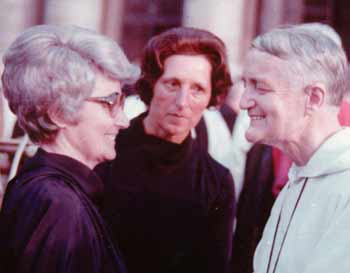
Rediscovering profound fraternal sentiments
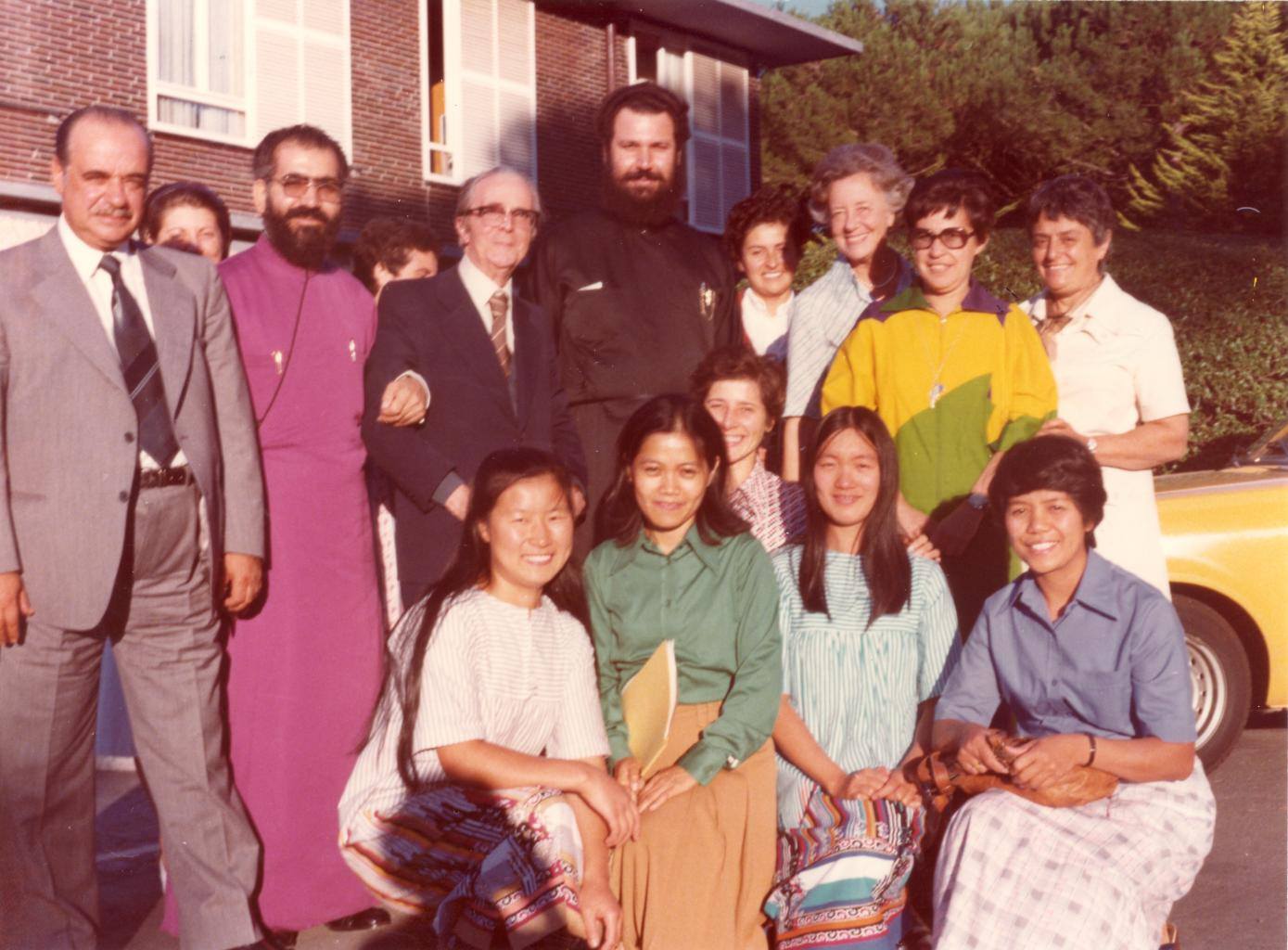 There is one event in the life of Igino Giordani that urges us to pause and reflect: the first biography written about him in 1985 was not written by a Catholic, but by a Scottish Baptist pastor, Edwin Robertson[1]. We should not see this as an irony of history [. . .] if such a friendly gesture towards Giordani had merit in the eyes of Heaven and in front of human history. Giordani had already presided at a conference of ecumenists back in the fall of 1967, at the headquarters of the Movement in Rocca di Papa, Italy. The Very Reverend Archimendrite, Eleuterio Fortino was also present. Years later in 2004, he gave the following testimony: “Because of his own interior serenity, Giordani was able to calm the heated tones of the debates at that conference; and he clarified the theological and pastoral aspects of the Second Vatican Council’s Unitatis redintegratio (1965), bringing down the last resistance of the Italian opposition to common prayer among all Christians during the Week of Prayer for the Unity of Churches[2]. Giordani had already been following the Week of Prayer, which was actually an Octave, beginning on January 18 (feast of the Chair of St. Peter in Rome) to January 25 (feast of the Conversion of St. Paul). In 1940 Giordani writes: “During the preparations of the Octave, news spread that was at first uncertain, that at a certain monastery of Trappist nuns in Rome, they were praying intensely for an end to the divisions among Christians. I came to learn that a young nun of that monastery had offered her life for the unity of the Church and that her sacrificial death had deeply touched a community of separated brothers in England. The news, even though it was so vague, greatly expanded – at least in my eyes – the horizon of the unitary movement and opened new prospects that appeared as patches of blue breaking through the gray and stormy heavens over a brawling humanity. It placed the Octave and its goals in their true light. Those nuns probably didn’t know anything about all the debates and commissions and committees that were held on the topic. Placed in front of the problem of the secession, they had contemplated it in simplicity, in the light of the Rule that never changes: they saw that unity is to be sought where it is found, that is, at its source, at the matrix. In other words it has to be asked of the Father in whom – and only in whom – brothers unite. This means that those humble women whom you’ll never meet at any conference, knew immediately what had to be done, and they placed the unity movement on the most direct path. Some might be tempted to ask it from Hegel, Loisy or even Marx; and in the news and in the conferences the names of such people came up, who had not and can not provide anything but partial solutions. Unity is not the work of men, but of God: not of study, but of grace. Even so, Father, accept this too, above all for your Church, that you might deign to purify her, preserve her, and unify her …”[3].
There is one event in the life of Igino Giordani that urges us to pause and reflect: the first biography written about him in 1985 was not written by a Catholic, but by a Scottish Baptist pastor, Edwin Robertson[1]. We should not see this as an irony of history [. . .] if such a friendly gesture towards Giordani had merit in the eyes of Heaven and in front of human history. Giordani had already presided at a conference of ecumenists back in the fall of 1967, at the headquarters of the Movement in Rocca di Papa, Italy. The Very Reverend Archimendrite, Eleuterio Fortino was also present. Years later in 2004, he gave the following testimony: “Because of his own interior serenity, Giordani was able to calm the heated tones of the debates at that conference; and he clarified the theological and pastoral aspects of the Second Vatican Council’s Unitatis redintegratio (1965), bringing down the last resistance of the Italian opposition to common prayer among all Christians during the Week of Prayer for the Unity of Churches[2]. Giordani had already been following the Week of Prayer, which was actually an Octave, beginning on January 18 (feast of the Chair of St. Peter in Rome) to January 25 (feast of the Conversion of St. Paul). In 1940 Giordani writes: “During the preparations of the Octave, news spread that was at first uncertain, that at a certain monastery of Trappist nuns in Rome, they were praying intensely for an end to the divisions among Christians. I came to learn that a young nun of that monastery had offered her life for the unity of the Church and that her sacrificial death had deeply touched a community of separated brothers in England. The news, even though it was so vague, greatly expanded – at least in my eyes – the horizon of the unitary movement and opened new prospects that appeared as patches of blue breaking through the gray and stormy heavens over a brawling humanity. It placed the Octave and its goals in their true light. Those nuns probably didn’t know anything about all the debates and commissions and committees that were held on the topic. Placed in front of the problem of the secession, they had contemplated it in simplicity, in the light of the Rule that never changes: they saw that unity is to be sought where it is found, that is, at its source, at the matrix. In other words it has to be asked of the Father in whom – and only in whom – brothers unite. This means that those humble women whom you’ll never meet at any conference, knew immediately what had to be done, and they placed the unity movement on the most direct path. Some might be tempted to ask it from Hegel, Loisy or even Marx; and in the news and in the conferences the names of such people came up, who had not and can not provide anything but partial solutions. Unity is not the work of men, but of God: not of study, but of grace. Even so, Father, accept this too, above all for your Church, that you might deign to purify her, preserve her, and unify her …”[3].  Chiara Lubich called the ecumenism that has come from her, an “ecumenism of life”. It is still practiced by the Focolare and has well developed experiences of its own experiences, developing in the light of great men like John XXIII, Paul VI, and in the light of the Second Vatican Council. It became one of the main priorities of Igino Giordani during the final years of his life. For Giordani, all Christians were already long-lost brothers and sisters. He lived and spread an ecumenical spirit that was composed of love and aimed at communion, in the certainty that “from the unity of hearts comes unity of minds”.[4]. It is rather touching to see how his article on ecumenism, The Journey Towards Unity, was written by in December 1979, four months before his departure for Heaven. In that gesture he continued to tenaciously cultivate a prophetic vision, in which he set the unity of Christians as the basis and the leaven that would “give an impetus to the ideal of universal unity among all peoples [5]. (Compiled by: Tommaso Sorgi, Il percorso ecumenico di Igino Giordani, “Nuova Umanità” No.199). ________________________________________ [1] E. Robertson, Igino Giordani, Città Nuova, Rome 1985. Ed. English edition entitled: The Fire of love. A life of Igino Giordani ‘Foco’, New City, London 1989. [2] E. Fortino, Igino Giordani e la preghiera per l’unità dei cristiani, in “Besa-Fede”, Greek-Albanese Journal, Rome, February 2004, pp. 7-9. [3] I. Giordani, Questa ottava, in: M. G. Dore, Suor Maria Gabriella (1914-1939), Morcelliana, Brescia 1940, pp. 9-25. [4] I. Giordani, Sette giorni per l’unità, “Città Nuova”, 1978, n. 23, p.30. [5] I. Giordani, Il viaggio verso l’unità, “Città Nuova”», 1979, n. 23, p.27.
Chiara Lubich called the ecumenism that has come from her, an “ecumenism of life”. It is still practiced by the Focolare and has well developed experiences of its own experiences, developing in the light of great men like John XXIII, Paul VI, and in the light of the Second Vatican Council. It became one of the main priorities of Igino Giordani during the final years of his life. For Giordani, all Christians were already long-lost brothers and sisters. He lived and spread an ecumenical spirit that was composed of love and aimed at communion, in the certainty that “from the unity of hearts comes unity of minds”.[4]. It is rather touching to see how his article on ecumenism, The Journey Towards Unity, was written by in December 1979, four months before his departure for Heaven. In that gesture he continued to tenaciously cultivate a prophetic vision, in which he set the unity of Christians as the basis and the leaven that would “give an impetus to the ideal of universal unity among all peoples [5]. (Compiled by: Tommaso Sorgi, Il percorso ecumenico di Igino Giordani, “Nuova Umanità” No.199). ________________________________________ [1] E. Robertson, Igino Giordani, Città Nuova, Rome 1985. Ed. English edition entitled: The Fire of love. A life of Igino Giordani ‘Foco’, New City, London 1989. [2] E. Fortino, Igino Giordani e la preghiera per l’unità dei cristiani, in “Besa-Fede”, Greek-Albanese Journal, Rome, February 2004, pp. 7-9. [3] I. Giordani, Questa ottava, in: M. G. Dore, Suor Maria Gabriella (1914-1939), Morcelliana, Brescia 1940, pp. 9-25. [4] I. Giordani, Sette giorni per l’unità, “Città Nuova”, 1978, n. 23, p.30. [5] I. Giordani, Il viaggio verso l’unità, “Città Nuova”», 1979, n. 23, p.27.
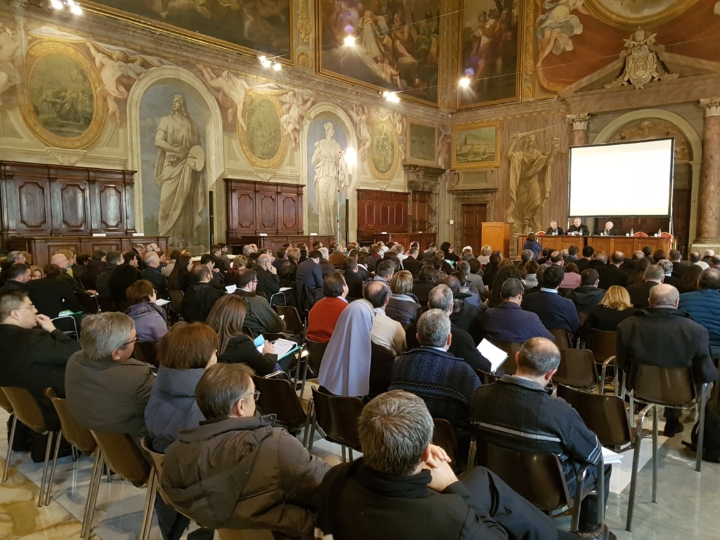
A sole pathway in the plurality of gifts
 On the first day of the week dedicated to Christian unity (18 – 25 January), under the splendid vault frescoed in just a hundred days by the famed painter Vasari, in the renaissance Roman Chancery building, an invocation to the Holy Spirit opened the study day which the ecclesial Movements and Communities dedicated to “Charism and Institutions.” Promoted by the Focolare Movement, New Horizons, Family of Hope, the Catholic Shalom Community, The Emmanuel Comminity and Pope John 23rd Community, together with upper education Evagelii Gaudium” Centre of the “Sophia” University Institute and under the patronage of the The Canon Law Association of Italy, the day represented a new phase of the deep “affective and effective synergy” between Movements and ecclesial realities, as underlined by opening speech of Maria Voce who represented all the promoters: “We are committed to facing, day after day, coherently with all the charisms received, the challenges that lead the way towards the fullness of Christian life and the perfection of charity, in the effort to enhance communion within our Movements and between us all.” At the same time, the day was the occasion to deepen a specific theme regarding the relationship between charisms, gifts of the Spirit, and the institutional forms, in the light of the document of the Congregation for the Doctrine of the Faith, “Iuvenescit Ecclesia” (May 2016), which defines the charismatic and hierarchic gifts as “co-essential:” while “the presence of the institutions guarantee that the announcement of the Gospel will never be lacking – underlined Cardinal Kevin Joseph Farrell, President of the Council for the Laity, Family and Life – the presence of the charisms guarantee that there will always be those who receive them with openness of heart.” After their birth in the heart of the Church, “with that bit of surprise and upheaval which their unexpected and unprecedented appearance had provoked,” and their approval, often the fruit of a long and painful pathway, now the Movements – said Piero Coda, Rector of the IUS – “are fording a third phase, where charismatic effervescence is committed to finding the suitable channels for a balanced institutionalisation (…) to express at best their own specific contribution.” A still open issue regards the nature of the ecclesial movements, which in force of their founding charism do not demand a new juridical form of association (the Codes of Canon Law in force do not contain the terms “ecclesial movements and communities” and therefore these are lawfully placed under the “associations of the faithful), but also in the distinctions of juridical nature able to support at best the charismatic richness and specificity of each. In fact, we have to take into account, that these “associations” are made up of laity, priests and religious, forming what Bishop Christoph Hegge, Auxiliary Bishop of Münster defines a “communitarian unity,” with reference to the “communitarian testimony” which all the members of the movement, with “resilience and flexibility of belonging,” offer together as the people of God, accepting and living the proclamation of the Church in our time. On the need to differentiate the juridical statutes regarding the variety and specificity of the charisms, His Eminence Luis Navarro, Rector of the Pontifical University of Santa Croce, said “There is no unitary juridical solution. Each needs to tailor a made-to-measure vest.” But to do so, we need to “know and study a charism in its concrete ecclesial life.” “In the history of the Church, the Movements have always been the answer to a need,” affirmed Laurent Landete, married and father of six children, the French leader of the Emmanuele Community, among the participants of the afternoon round table dedicated to the presentation of the Movements and ecclesial realities operating at all latitudes. If the future of their Statutes is the basic theme of the reflection, the freshness, actuality and variety of the ways with which they operate, driven by the Spirit, in the streets of the world, arouse marvel and stupor, as in face of the colours and perfumes of an immense garden in Spring.
On the first day of the week dedicated to Christian unity (18 – 25 January), under the splendid vault frescoed in just a hundred days by the famed painter Vasari, in the renaissance Roman Chancery building, an invocation to the Holy Spirit opened the study day which the ecclesial Movements and Communities dedicated to “Charism and Institutions.” Promoted by the Focolare Movement, New Horizons, Family of Hope, the Catholic Shalom Community, The Emmanuel Comminity and Pope John 23rd Community, together with upper education Evagelii Gaudium” Centre of the “Sophia” University Institute and under the patronage of the The Canon Law Association of Italy, the day represented a new phase of the deep “affective and effective synergy” between Movements and ecclesial realities, as underlined by opening speech of Maria Voce who represented all the promoters: “We are committed to facing, day after day, coherently with all the charisms received, the challenges that lead the way towards the fullness of Christian life and the perfection of charity, in the effort to enhance communion within our Movements and between us all.” At the same time, the day was the occasion to deepen a specific theme regarding the relationship between charisms, gifts of the Spirit, and the institutional forms, in the light of the document of the Congregation for the Doctrine of the Faith, “Iuvenescit Ecclesia” (May 2016), which defines the charismatic and hierarchic gifts as “co-essential:” while “the presence of the institutions guarantee that the announcement of the Gospel will never be lacking – underlined Cardinal Kevin Joseph Farrell, President of the Council for the Laity, Family and Life – the presence of the charisms guarantee that there will always be those who receive them with openness of heart.” After their birth in the heart of the Church, “with that bit of surprise and upheaval which their unexpected and unprecedented appearance had provoked,” and their approval, often the fruit of a long and painful pathway, now the Movements – said Piero Coda, Rector of the IUS – “are fording a third phase, where charismatic effervescence is committed to finding the suitable channels for a balanced institutionalisation (…) to express at best their own specific contribution.” A still open issue regards the nature of the ecclesial movements, which in force of their founding charism do not demand a new juridical form of association (the Codes of Canon Law in force do not contain the terms “ecclesial movements and communities” and therefore these are lawfully placed under the “associations of the faithful), but also in the distinctions of juridical nature able to support at best the charismatic richness and specificity of each. In fact, we have to take into account, that these “associations” are made up of laity, priests and religious, forming what Bishop Christoph Hegge, Auxiliary Bishop of Münster defines a “communitarian unity,” with reference to the “communitarian testimony” which all the members of the movement, with “resilience and flexibility of belonging,” offer together as the people of God, accepting and living the proclamation of the Church in our time. On the need to differentiate the juridical statutes regarding the variety and specificity of the charisms, His Eminence Luis Navarro, Rector of the Pontifical University of Santa Croce, said “There is no unitary juridical solution. Each needs to tailor a made-to-measure vest.” But to do so, we need to “know and study a charism in its concrete ecclesial life.” “In the history of the Church, the Movements have always been the answer to a need,” affirmed Laurent Landete, married and father of six children, the French leader of the Emmanuele Community, among the participants of the afternoon round table dedicated to the presentation of the Movements and ecclesial realities operating at all latitudes. If the future of their Statutes is the basic theme of the reflection, the freshness, actuality and variety of the ways with which they operate, driven by the Spirit, in the streets of the world, arouse marvel and stupor, as in face of the colours and perfumes of an immense garden in Spring.
Days of Remembrance
The international memorial day on 27 January, designated by the United Nations General Assembly, is held in order to commemorate the victims of the Shoah. On 27 January 1945, the Allied Forces liberated Auschwitz, the Nazi concentration and death camp, and its surviving prisoners. Beyond the prison gate and the sign bearing the slogan “Arbeit macht frei” (Work sets you free), the world witnessed the horror of what had taken place there and came to the know the scale of the mass extermination which had caused the death of six million people. 73 years after the end of the Shoah, in various parts of Europe and the world, every year commemorative meetings, ceremonies, initiatives and moments of narration of events by the survivors are promoted, especially in schools, in order to “never forget ” one of the most terrible examples of racial hatred and so that such atrocities will never be repeated anywhere on the planet.
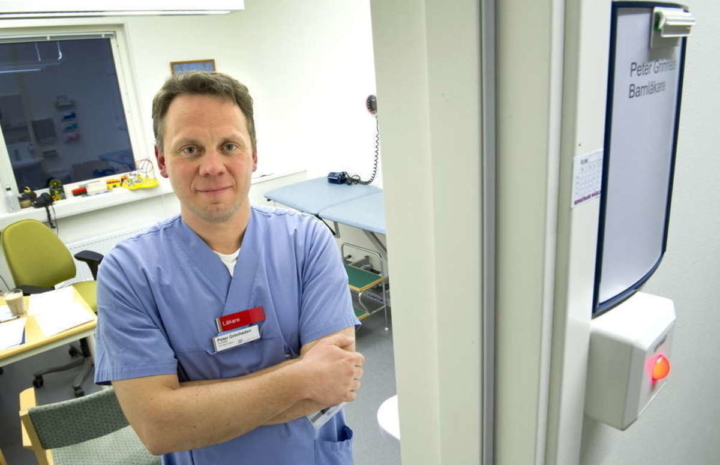
A Lutheran doctor in focolare
 Peter Grimheden has an oval face with two blue, piercing eyes. I met him for the first time in Lund, Sweden, for the historical encounter between Catholics and Lutherans for the 500 years of the Reformation. Peter is a young pediatrician, passionate about his work, to which he is dedicated with great enthusiasm. His singularity is that of being Swedish, Lutheran, a focolarino, and for his having chosen a path of total donation to God. He lives in Stockholm, in a small community with other 4 Catholic focolarinos: a Belgian, an Argentinean and two Italians. Were you raised in a Christian family and environment? I belong to the Swedish Lutheran Church and come from a family which is strongly bound to traditions. As a child, I used to visit my grandparents. We would first go to Mass and then dine together. During dinner, after the women had washed the dishes, we would sit and listen to grandpa who would read one of Luther’s sermons. As if that of the Mass was not enough! The only thing I remember is that I would play at holding my breath. My record was to resist breathing for a minute. It was a strict and severe education. All was either black or white and I could never ever go to the cinema or play ice hockey. How did you meet the Focolare? I was dating a girl who invited me to a concert of Gen Verde, a musical band inspired by the Focolare. I liked the music, the words, and the atmosphere they created. The brother of a singer had been killed in a civil war and she had been able to forgive. I liked positive Christianity, not based on prohibitions and things one shouldn’t do. The people of the Focolare became my friends and I would frequent them with my girlfriend. But after some time, this relationship was too tight for me, so I left her. I continued to frequent the Focolare and I was strongly attracted by the people who gave themselves completely to God, living in a community. For me it was like slipping on a banana peel rather than making a big choice. It was like falling in love. So at 21, I went to Loppiano, Italy, close to Florence to attend the focolarini training school. It was a unique occasion to meet people from all over the world, even if I felt a bit “exotic” since almost all were Catholics. Today you live in a community in Stockholm. Is it difficult to live with people of another Church? Belonging to one Church or the other does not impact on our daily lives since we share the same ideals. We have a Christian life in common and I don’t feel any difference among us. I used to feel lonely upon frequenting my Lutheran Church but now my friends accompany me once in a while since they want to know my Church better, the same way in which I want to know about their church. We try to live in the presence of Jesus in our midst and are all his disciples. Source: New City
Peter Grimheden has an oval face with two blue, piercing eyes. I met him for the first time in Lund, Sweden, for the historical encounter between Catholics and Lutherans for the 500 years of the Reformation. Peter is a young pediatrician, passionate about his work, to which he is dedicated with great enthusiasm. His singularity is that of being Swedish, Lutheran, a focolarino, and for his having chosen a path of total donation to God. He lives in Stockholm, in a small community with other 4 Catholic focolarinos: a Belgian, an Argentinean and two Italians. Were you raised in a Christian family and environment? I belong to the Swedish Lutheran Church and come from a family which is strongly bound to traditions. As a child, I used to visit my grandparents. We would first go to Mass and then dine together. During dinner, after the women had washed the dishes, we would sit and listen to grandpa who would read one of Luther’s sermons. As if that of the Mass was not enough! The only thing I remember is that I would play at holding my breath. My record was to resist breathing for a minute. It was a strict and severe education. All was either black or white and I could never ever go to the cinema or play ice hockey. How did you meet the Focolare? I was dating a girl who invited me to a concert of Gen Verde, a musical band inspired by the Focolare. I liked the music, the words, and the atmosphere they created. The brother of a singer had been killed in a civil war and she had been able to forgive. I liked positive Christianity, not based on prohibitions and things one shouldn’t do. The people of the Focolare became my friends and I would frequent them with my girlfriend. But after some time, this relationship was too tight for me, so I left her. I continued to frequent the Focolare and I was strongly attracted by the people who gave themselves completely to God, living in a community. For me it was like slipping on a banana peel rather than making a big choice. It was like falling in love. So at 21, I went to Loppiano, Italy, close to Florence to attend the focolarini training school. It was a unique occasion to meet people from all over the world, even if I felt a bit “exotic” since almost all were Catholics. Today you live in a community in Stockholm. Is it difficult to live with people of another Church? Belonging to one Church or the other does not impact on our daily lives since we share the same ideals. We have a Christian life in common and I don’t feel any difference among us. I used to feel lonely upon frequenting my Lutheran Church but now my friends accompany me once in a while since they want to know my Church better, the same way in which I want to know about their church. We try to live in the presence of Jesus in our midst and are all his disciples. Source: New City
Living Gospel: The real power is love
House Arrest December 2016 I received a telephone call from a desperate mother who asked help for one of her sons. The lawsuit against him had been heard in court and he was sentenced to 11 month under house arrest. She couldn’t take him in because she didn’t have a house and nobody else wanted to have him. I was her only hope, and I just couldn’t look the other way in front of this request. What to do? Three days later when I was about to make a few phone calls to find somebody who could help me out, someone knocked on the door. It was someone who comes often to see us. I welcomed him in, made him a cup of coffee and we began to talk. Then he asked me: “What were you doing just now?” Something inside me made me tell him about the situation. And he says: “But couldn’t I do it?” He had a small apartment, but he would sleep in the living room and leave his bed to the boy. The next day he took care of all the bureaucratic matters. The months flew by. We took food to them twice a week, since he wasn’t very well-off financially. And all it took for God to perform veritable miracles was a yes from me. (N.C. – Italy) I could look him in the eyes One day, while I was on my way to school, I was mugged by a group of boys in an underpass. They kicked me and punched me and threw me on the ground. They wanted my cell phone. When they finally went away, I couldn’t get up because of the pain in my body and in my soul. I wondered: “Why me?” My anger and resentment mounted. I told some friends at school about the incident, but none of them appreciated my pain, and that bothered me. The next few nights I couldn’t sleep, almost crying with anger as I watched that scene in the underpass playing out over and over again in my mind as if in a film. It was only some time later that I was able to talk about it with some friends who, like me, are trying to live the Gospel. Confiding it to them helped me to do what at first seemed impossible: to my aggressors. When I went to court to identify them at the trial, I felt I had forgiven them in my heart without any difficulty, I could look them straight in the eyes. (From T. Minuta’s blog) Appearances can be deceiving I had to go downtown to do some shopping and didn’t have much time. Suddenly I heard somebody asking me for money. I generally don’t give money. You can’t help everyone, and they might spend it on drugs. The boy’s head was shaven, and he had a dark gaze. I had the feeling he was one of the boys who had mugged me years before. I walked faster. But, a block later, I began to wonder: How can I think I’m cultivating union with God and, at the same time, neglect this boy who asked me for help?” I turned around and looked for the boy. “What is it you need?” I asked him. Totally surprised, he told me that he was thirsty. I invited him to have a seat in a coffee shop. He answered all my questions with a dry “yes” or “no”. I thought I might tell him about my own experiences and effort at getting used to a new country. He didn’t seem interested, and I was a bit discouraged. When I stood up to go, he said: “Why don’t you keep on talking? No one has ever told me the story of their life? It’s a new experience for me, and I have to get used to it. Tell me about your country. Why did you come here?” I ordered another hot chocolate and we sat there for another two hours. In the end we gave each other a hug. On my way home I entrusted to Jesus that kid whose name I didn’t even know. (U.K. – Argentina)
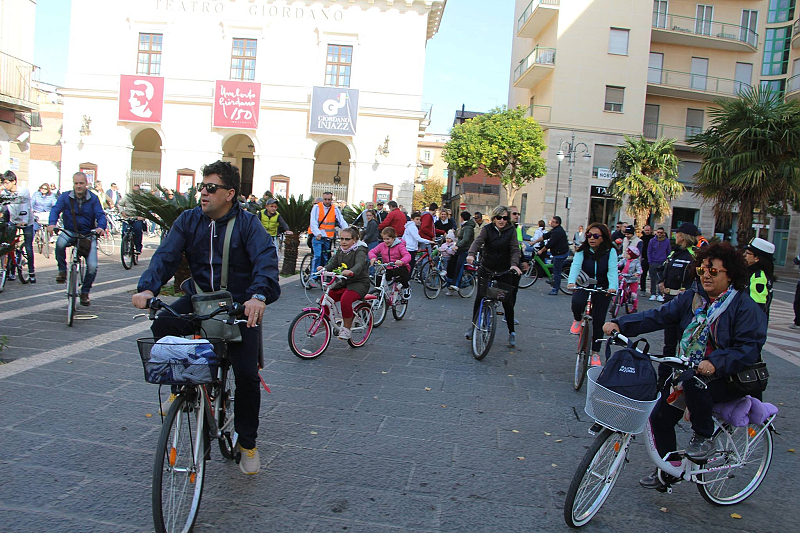
On two wheels for peace
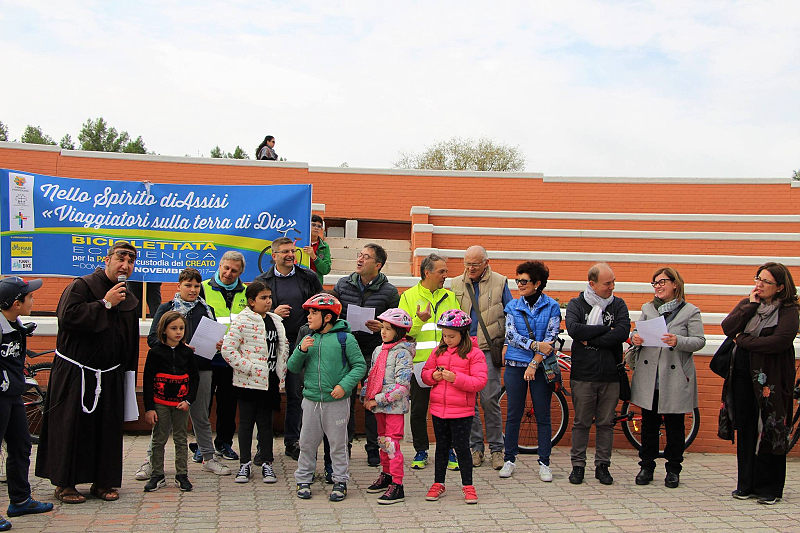 In Foggia, a commercial city in southern Italy an amazing flow of bikes crossing the city’s roads aroused the curiosity of passersby. Many citizens, also due to the sunny day, were on the road on their traditional Sunday outing, while the ladies catering to the feast day lunch watched from the balconies. Family bikes equipped with children’s chairs, tandems with blind people onboard as second paddlers, two wheels equipped with mikes, loudspeakers and banners, bikes of all shapes and sizes, a long trail of hard hats and helmets and a joyful bell: this was the ecumenical biking event organised by the Ecumenical Council of Foggia together with the Franciscans of the parish of Gesù e Maria, and the Group of Lay Associations joined by the Focolare Movement, the Fanny Bike Association and the Bike-lovers’ Association, on the occasion of the anniversary of the Spirit of Assisi and the Day for the Protection of Creation.
In Foggia, a commercial city in southern Italy an amazing flow of bikes crossing the city’s roads aroused the curiosity of passersby. Many citizens, also due to the sunny day, were on the road on their traditional Sunday outing, while the ladies catering to the feast day lunch watched from the balconies. Family bikes equipped with children’s chairs, tandems with blind people onboard as second paddlers, two wheels equipped with mikes, loudspeakers and banners, bikes of all shapes and sizes, a long trail of hard hats and helmets and a joyful bell: this was the ecumenical biking event organised by the Ecumenical Council of Foggia together with the Franciscans of the parish of Gesù e Maria, and the Group of Lay Associations joined by the Focolare Movement, the Fanny Bike Association and the Bike-lovers’ Association, on the occasion of the anniversary of the Spirit of Assisi and the Day for the Protection of Creation.  The initiative which took place some months ago was the occasion for the city of the Puglia region, together with men of good will and the faithful of various religious confessions, to reflect on the importance of protecting creation, the gift of God entrusted to mankind for the good of all, and raise the awareness of citizens in assuming more ecological lifestyles starting from their own daily lives, and make the municipal administration commit to undertake political decisions that would allow the healing of the city, making it more beautiful, liveable and less polluted. The bike itinerary started symbolically from the Square where the Archbishop’s Curia is situated, with the delivery to the Mayor of a pact made between citizens and the administration, containing the mutual commitment. According to the competences of each, inspiring motifs were created for the event, with the route that made stopovers at the places of worship of all the Christian confessions existing on the territory, which adhered to the initiative: the Church of San Domenico for the Greek Orthodox community, the Church of Gesù e Maria for the Romanian Orthodox community, the ADI Evangelical Church, and the Waldensian Church. The event ended up with a brief moment of ecumenical prayer at the San Felice Park, the green lung and meeting place of the city..
The initiative which took place some months ago was the occasion for the city of the Puglia region, together with men of good will and the faithful of various religious confessions, to reflect on the importance of protecting creation, the gift of God entrusted to mankind for the good of all, and raise the awareness of citizens in assuming more ecological lifestyles starting from their own daily lives, and make the municipal administration commit to undertake political decisions that would allow the healing of the city, making it more beautiful, liveable and less polluted. The bike itinerary started symbolically from the Square where the Archbishop’s Curia is situated, with the delivery to the Mayor of a pact made between citizens and the administration, containing the mutual commitment. According to the competences of each, inspiring motifs were created for the event, with the route that made stopovers at the places of worship of all the Christian confessions existing on the territory, which adhered to the initiative: the Church of San Domenico for the Greek Orthodox community, the Church of Gesù e Maria for the Romanian Orthodox community, the ADI Evangelical Church, and the Waldensian Church. The event ended up with a brief moment of ecumenical prayer at the San Felice Park, the green lung and meeting place of the city..
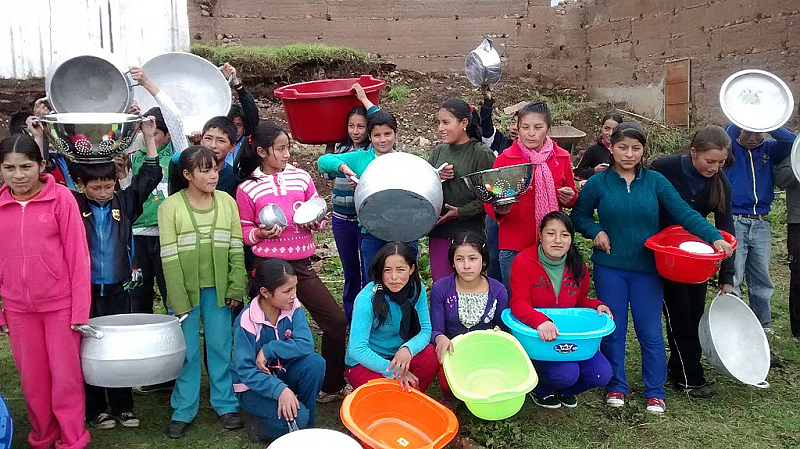
Chiara’s charism of unity, instigator for social transformation
“The attraction of modern times” conference material: (3 March 2018, Castelgandolfo – Rome) can be found at: http://chiaralubich.10anni.focolare.org
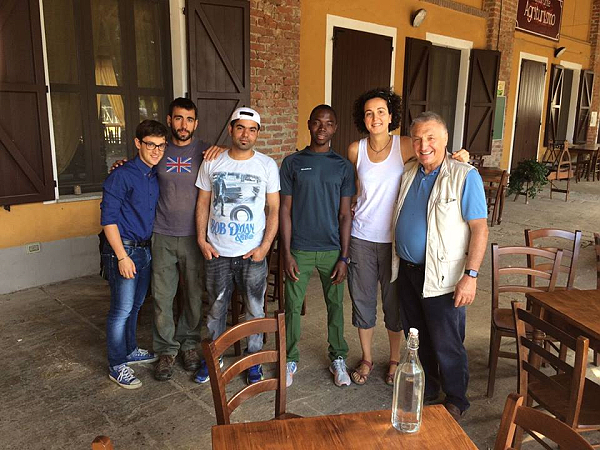
The migrants’ project in Sicily
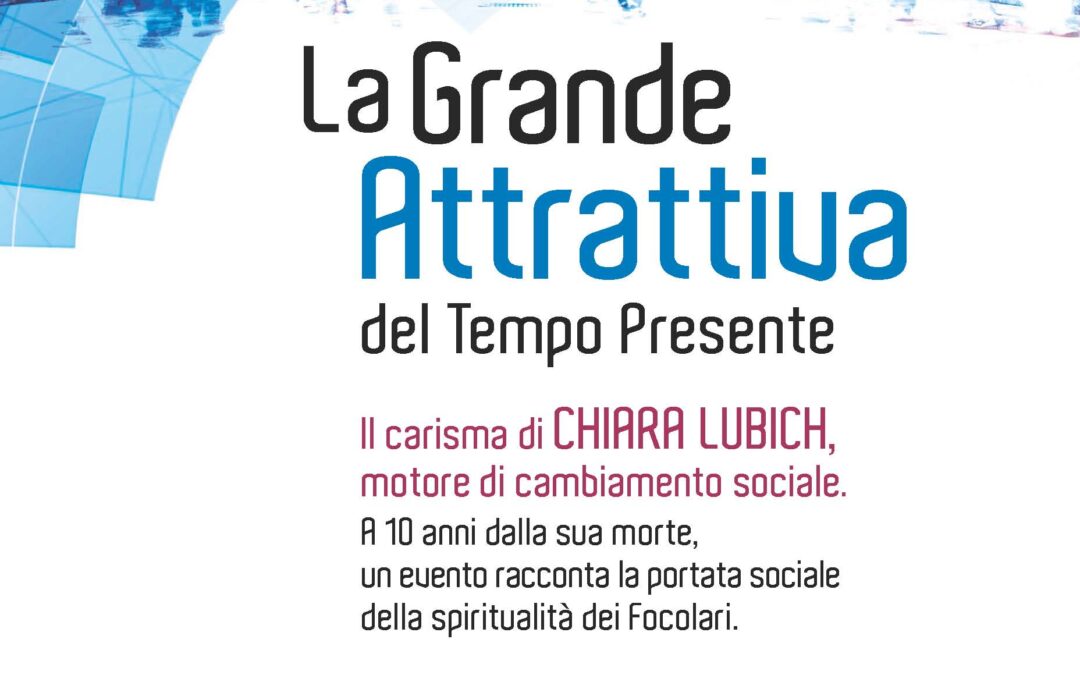
The Great Attraction of Today’s Times
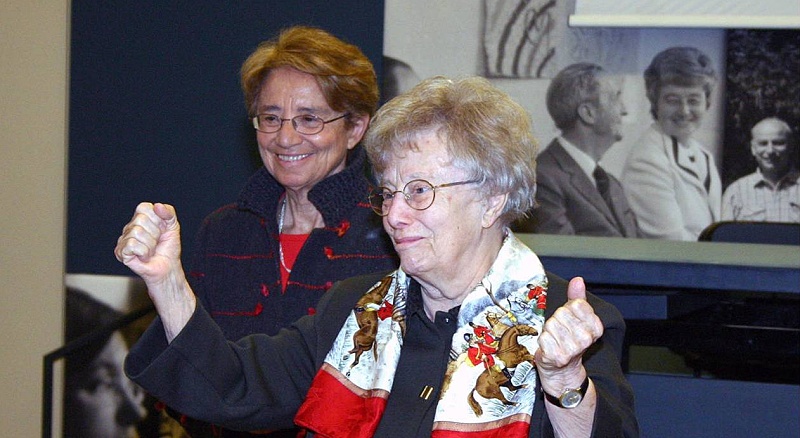
Thank you, Gis!
 With gratitude for “her example of heroic faithfulness to God’s plan for her,” Focolare president Maria Voce, informed Focolare members around the world of her death following a long life spent in its entirety for unity. “Even in the pain of this huge loss,” said Maria Voce, “we are forever one heart and one soul with her.” Gisella Calliari had been born in Lavis, Trent, Italy on April 18, 1920. She was simply known as Gis, one of the first young women, along with her sister, to follow Chiara Lubich in the “adventure of unity,” which led to the starting of the Focolare Movement and its expansion around the world. She was the youngest of three sisters and met Chiara in 1944 in that tiny apartment that lodged the first hearth in Piazza Cappuccini,Trent. The next day, she decided to follow Chiara along the same path. The first hostile reaction from her family was softened when her mother met Igino Giordani who hired Gisella to be his secretary in Rome. During her long life, Gis spent more than 40 years living with Chiara. After living in several focolares in Italy – in Trent, Rome, Milan and Florence, she took charge of the women’s section of the focolarinas. Then, she worked alongside the foundress and Oreste Basso in following the development of the Work of Mary worldwide. This provided her with the opportunity to visit Focoare communities around the world. Her whole life was very profoundly linkded to the charism of unity, to which she was faithful until the last. Focolare.org will soon publish a more extensive biography.
With gratitude for “her example of heroic faithfulness to God’s plan for her,” Focolare president Maria Voce, informed Focolare members around the world of her death following a long life spent in its entirety for unity. “Even in the pain of this huge loss,” said Maria Voce, “we are forever one heart and one soul with her.” Gisella Calliari had been born in Lavis, Trent, Italy on April 18, 1920. She was simply known as Gis, one of the first young women, along with her sister, to follow Chiara Lubich in the “adventure of unity,” which led to the starting of the Focolare Movement and its expansion around the world. She was the youngest of three sisters and met Chiara in 1944 in that tiny apartment that lodged the first hearth in Piazza Cappuccini,Trent. The next day, she decided to follow Chiara along the same path. The first hostile reaction from her family was softened when her mother met Igino Giordani who hired Gisella to be his secretary in Rome. During her long life, Gis spent more than 40 years living with Chiara. After living in several focolares in Italy – in Trent, Rome, Milan and Florence, she took charge of the women’s section of the focolarinas. Then, she worked alongside the foundress and Oreste Basso in following the development of the Work of Mary worldwide. This provided her with the opportunity to visit Focoare communities around the world. Her whole life was very profoundly linkded to the charism of unity, to which she was faithful until the last. Focolare.org will soon publish a more extensive biography.
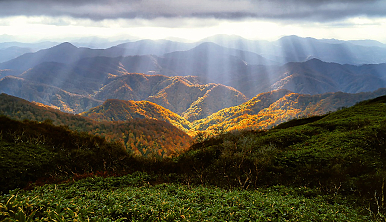
Hemmerle: The Word and the Spirit
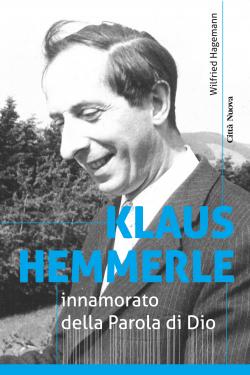 “There’s only one way to be able to have the most unity and communion possible among us right here and now, and I for one can see no other. This way coincides with […] us, you and me, all of you and me and all of us together, day by day, in all the situations of our life and in every situation that comes between us, staying anchored in His Word.” (266) “The Word of God goes beyond the barriers between us and creates communion. […] Nobody can take this away from us. Nobody can prohibit us from doing it. We can never turn back now. This is the essential point where the road opens for us to move on. […] If we live the Word to the extreme and in a spirit of reciprocity so that what you live and what I live are the same Word, both of them His Word, then the unity between us grows […] We can ask ourselves: But how are we to live in the one Spirit which is the deepest and most intimate reality of God, and the deepest and most intimate reality of me? It’s because of the Spirit whom I seek in you with patient endurance, the gifts of the Spirit that lie in you, a believer and a Christian like me. I question you at great length until I find the Spirit in you. I’m never content myself with compromises saying: ‘Deep down you’re not bad, nor am I. I’m able to find a halfway point where we can meet!’
“There’s only one way to be able to have the most unity and communion possible among us right here and now, and I for one can see no other. This way coincides with […] us, you and me, all of you and me and all of us together, day by day, in all the situations of our life and in every situation that comes between us, staying anchored in His Word.” (266) “The Word of God goes beyond the barriers between us and creates communion. […] Nobody can take this away from us. Nobody can prohibit us from doing it. We can never turn back now. This is the essential point where the road opens for us to move on. […] If we live the Word to the extreme and in a spirit of reciprocity so that what you live and what I live are the same Word, both of them His Word, then the unity between us grows […] We can ask ourselves: But how are we to live in the one Spirit which is the deepest and most intimate reality of God, and the deepest and most intimate reality of me? It’s because of the Spirit whom I seek in you with patient endurance, the gifts of the Spirit that lie in you, a believer and a Christian like me. I question you at great length until I find the Spirit in you. I’m never content myself with compromises saying: ‘Deep down you’re not bad, nor am I. I’m able to find a halfway point where we can meet!’  I don’t even say: ‘I take something of yours and something of mine to come up with a formula that we can both agree on without having to change any fundamentals.’ Rather, I ask myself: ‘Where is the Spirit in you?’ The insistence in my questioning never constrains you, limits you, but it frees you, so that you can offer me the gifts of the Spirit in you. I’m prepared to let myself be interrogated by you to extreme, so that, trusting in the Spirit, I can also offer and give to you my gifts as gifts from God. Giving our gifts to one another, discovering in reciprocity the gifts of the Spirit in one another – this is the only path for the one Spirit.” (265, 266) (June 15, 1979, From a dialogue with Evangelical Lutheran pastor Lukas Vischer) Anyone who has been living the spirituality of unity for a long time can never stop and say: Is what the other saying to me appropriate? What isn’t appropriate? In what way is what they are saying compatible with my thinking? And with regard to what isn’t compatible? I try to make myself one with the other person, I try to have the other person as my starting point, not as a way to deny what I affirm with certainty based on Christ, but in the sense that in front of the person, I ask: What light are they trying to convey to me? So, I look at myself from the perspective of that other person. I make myself one with the other, trying to re-read my truth through the light of the other.” (268) (Extracts from dialogue session during the Ecumenical School in Ottmaring, Germany) Winfried Hagemann: KLAUS HEMMERLE, innamorato della Parola di Dio (Città Nuova 2013).
I don’t even say: ‘I take something of yours and something of mine to come up with a formula that we can both agree on without having to change any fundamentals.’ Rather, I ask myself: ‘Where is the Spirit in you?’ The insistence in my questioning never constrains you, limits you, but it frees you, so that you can offer me the gifts of the Spirit in you. I’m prepared to let myself be interrogated by you to extreme, so that, trusting in the Spirit, I can also offer and give to you my gifts as gifts from God. Giving our gifts to one another, discovering in reciprocity the gifts of the Spirit in one another – this is the only path for the one Spirit.” (265, 266) (June 15, 1979, From a dialogue with Evangelical Lutheran pastor Lukas Vischer) Anyone who has been living the spirituality of unity for a long time can never stop and say: Is what the other saying to me appropriate? What isn’t appropriate? In what way is what they are saying compatible with my thinking? And with regard to what isn’t compatible? I try to make myself one with the other person, I try to have the other person as my starting point, not as a way to deny what I affirm with certainty based on Christ, but in the sense that in front of the person, I ask: What light are they trying to convey to me? So, I look at myself from the perspective of that other person. I make myself one with the other, trying to re-read my truth through the light of the other.” (268) (Extracts from dialogue session during the Ecumenical School in Ottmaring, Germany) Winfried Hagemann: KLAUS HEMMERLE, innamorato della Parola di Dio (Città Nuova 2013).
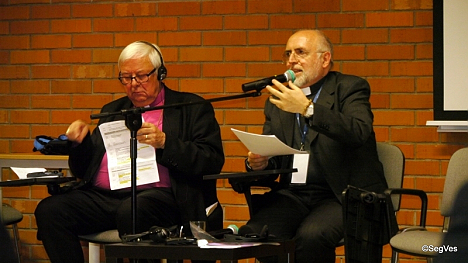
The Focolare and the Unity of Christians
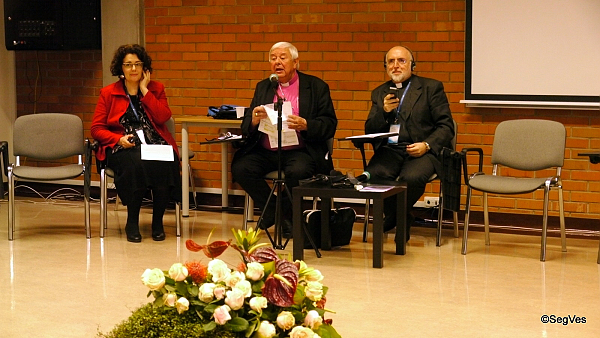
 Moran explained: “The charism God had gifted Chiara has its roots in an ecclesial dimension that can be shared by all the confessions, because it draws inspiration from the heart of the Gospel. And this can be related to the nature of the spirituality which arose from this charism: a spirituality that sets a ‘dialogue of life’ as the pre-condition to ecumenical dialogue. It is an ecumenism of ‘love,’ ‘truth,’ and ‘of the heart,’ terms which also recur today to underline a reciprocity of love that does not replace theological dialogue, but gives the opportunity to grow closer, in a profound ‘exchange of gifts’ that enrich one and the other.” Unity and reconciliation start in the heart, in the encounter between people in a warm reception, Morán underlined. But “the unity we live or seek,” he argued “is not uniformity, it is the Holy Spirit himself who generates diversity.” Therefore, it is not a theoretical approach, but a dynamic experience of evangelical love, an ecumenical laboratory which, in the experience of the Focolare, now binds Christians belonging to over 300 Churches, and which spread, at least as a self-awareness within numberless ecclesiastic settings. “Dialogue of life is fruitful” – he added – “also in and among the parishes of various Churches: a twinning that helps to mutually know one another and find new forms of collaboration for social and cultural projects. Also the youths belonging to various Churches are committed in the front line to support primary emergency actions or aid to the most needy.” What are the repercussions at theological level? “Some experts were called to take part in the official theological dialogues. Also at regional and especially diocesan levels, many have personally undertaken the commitment. An example, among many, are the theological symposiums established between the professors of the Rumanian-Orthodox Faculty of Cluj-Naponica (Romania) and the Sophia University Institute of Loppiano (Italy), where last 14 December an ecumenical chair was established, dedicated to Patriarch Athenagoras and Chiara Lubich. Silently but tenaciously, God is tracing an irreversible path to reach universal brotherhood, his design on humanity.” Morán ended his reflection with the words of the “Ottmaring Declaration” with which the Focolare Movement inaugurated the celebrations for the fifth centenary of the Reformation: “With all our hearts we want to support the Churches in the commitment to reach a full and visible communion. We shall do all that is possible to make our activities and initiatives be substantiated by this open and fraternal attitude among Christians.” Read the whole text
Moran explained: “The charism God had gifted Chiara has its roots in an ecclesial dimension that can be shared by all the confessions, because it draws inspiration from the heart of the Gospel. And this can be related to the nature of the spirituality which arose from this charism: a spirituality that sets a ‘dialogue of life’ as the pre-condition to ecumenical dialogue. It is an ecumenism of ‘love,’ ‘truth,’ and ‘of the heart,’ terms which also recur today to underline a reciprocity of love that does not replace theological dialogue, but gives the opportunity to grow closer, in a profound ‘exchange of gifts’ that enrich one and the other.” Unity and reconciliation start in the heart, in the encounter between people in a warm reception, Morán underlined. But “the unity we live or seek,” he argued “is not uniformity, it is the Holy Spirit himself who generates diversity.” Therefore, it is not a theoretical approach, but a dynamic experience of evangelical love, an ecumenical laboratory which, in the experience of the Focolare, now binds Christians belonging to over 300 Churches, and which spread, at least as a self-awareness within numberless ecclesiastic settings. “Dialogue of life is fruitful” – he added – “also in and among the parishes of various Churches: a twinning that helps to mutually know one another and find new forms of collaboration for social and cultural projects. Also the youths belonging to various Churches are committed in the front line to support primary emergency actions or aid to the most needy.” What are the repercussions at theological level? “Some experts were called to take part in the official theological dialogues. Also at regional and especially diocesan levels, many have personally undertaken the commitment. An example, among many, are the theological symposiums established between the professors of the Rumanian-Orthodox Faculty of Cluj-Naponica (Romania) and the Sophia University Institute of Loppiano (Italy), where last 14 December an ecumenical chair was established, dedicated to Patriarch Athenagoras and Chiara Lubich. Silently but tenaciously, God is tracing an irreversible path to reach universal brotherhood, his design on humanity.” Morán ended his reflection with the words of the “Ottmaring Declaration” with which the Focolare Movement inaugurated the celebrations for the fifth centenary of the Reformation: “With all our hearts we want to support the Churches in the commitment to reach a full and visible communion. We shall do all that is possible to make our activities and initiatives be substantiated by this open and fraternal attitude among Christians.” Read the whole text
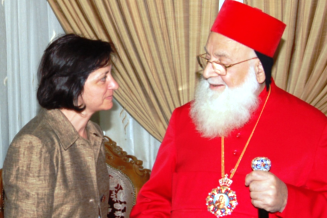
Ecumenism: Mirvet’s Choice
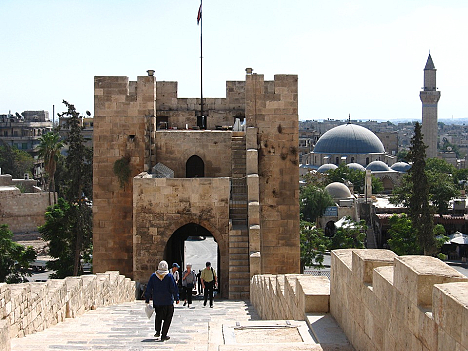 Mirvet Kelly’s grandfather was a deacon: “I remember going with him every Sunday to the Syro-Orthodox Divine Liturgy. I was proud to watch him all dressed in white as he recited his portion of the prayers at the altar.” There are several Christian Churches in Homs, Syria, where Mirvet grew up: Armenian Apostolic, Greek Orthodox and various Catholic Rites, Maronite, Melkite and Syro-Catholic. Before the war, even though we were linked to our own Churches, the faithful attended other Churches without any problem. “As I grew older,” she went on to say, “a lot of things changed: Grandfather died and the Divine Liturgy seemed long and outdated. I was the only Christian at school in the midst a lot of Muslims. At Christmas and Easter I’d be the only one absent and, when I returned, I was bombarded with questions: ‘Why are there so many Churches? Why was your Jesus crucified and rising from the dead on different dates in different Churches? Some friends and I decided to no longer belong to one Church or another, but to be Christians and that’s all. Like many of them, I stopped going to my own Church.” A
Mirvet Kelly’s grandfather was a deacon: “I remember going with him every Sunday to the Syro-Orthodox Divine Liturgy. I was proud to watch him all dressed in white as he recited his portion of the prayers at the altar.” There are several Christian Churches in Homs, Syria, where Mirvet grew up: Armenian Apostolic, Greek Orthodox and various Catholic Rites, Maronite, Melkite and Syro-Catholic. Before the war, even though we were linked to our own Churches, the faithful attended other Churches without any problem. “As I grew older,” she went on to say, “a lot of things changed: Grandfather died and the Divine Liturgy seemed long and outdated. I was the only Christian at school in the midst a lot of Muslims. At Christmas and Easter I’d be the only one absent and, when I returned, I was bombarded with questions: ‘Why are there so many Churches? Why was your Jesus crucified and rising from the dead on different dates in different Churches? Some friends and I decided to no longer belong to one Church or another, but to be Christians and that’s all. Like many of them, I stopped going to my own Church.” A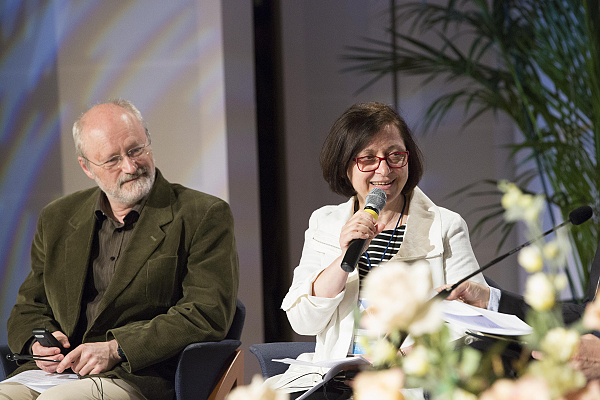 fter a while, Mirvet met a group that was trying to live the Gospel according to the Focolare spirituality. “Through them, I discovered that God is the Father of everyone and that we’re all loved by Him as sons and daughters. My life began to change. Every time I tried to love, going to visit an elderly person or a poor person, for example, my heart would be overcome with peace and joy. One day, I came across a sentence in one of Chiara Lubich’s writings: ‘We should love the other person’s Church as our own.’ Not only did I not love the other person’s Church – I didn’t even love my own Church, which I had criticized and abandoned. At that point, Mirvet’s life, which was already very fruitful both personally and ecumenically, took a new leap. She felt God calling her to give herself entirely to Him. “In the Focolare communities I’ve lived in,” she explained, “I found myself to be the only Orthodox among Catholics of all ages, countries, languages, cultures, Churches and ways of thinking. Trying to live in unity with all the different ideas about things is always a challenge, because each of us has her own tastes and ideas down to the smallest details.
fter a while, Mirvet met a group that was trying to live the Gospel according to the Focolare spirituality. “Through them, I discovered that God is the Father of everyone and that we’re all loved by Him as sons and daughters. My life began to change. Every time I tried to love, going to visit an elderly person or a poor person, for example, my heart would be overcome with peace and joy. One day, I came across a sentence in one of Chiara Lubich’s writings: ‘We should love the other person’s Church as our own.’ Not only did I not love the other person’s Church – I didn’t even love my own Church, which I had criticized and abandoned. At that point, Mirvet’s life, which was already very fruitful both personally and ecumenically, took a new leap. She felt God calling her to give herself entirely to Him. “In the Focolare communities I’ve lived in,” she explained, “I found myself to be the only Orthodox among Catholics of all ages, countries, languages, cultures, Churches and ways of thinking. Trying to live in unity with all the different ideas about things is always a challenge, because each of us has her own tastes and ideas down to the smallest details.  But when we try to appropriate the other person’s reality as our own, we experience that the differences become an enrichment. We often pray for each other’s Churches, in an ongoing growth in the faith and in the relationship with God. And almost without realizing it, we bring the fruit of our communion into our respective Churches, to our jobs and into our daily lives. It seems like a drop in the ocean, but even the tiniest steps united to those of many others in the world, can make a difference. In the countries of the Middle East where I lived, for example, I saw priests helping people, without ever asking what Church they belonged to. They did projects to help out different Churches, to help them meet their needs whether they were Christian – or even Muslim. Last year, Catholics and Orthodox celebrated Easter on the same day. Two Syrian friends who now live in Vienna, Austria, recently reported to me how they and many other Syrians have been helped by a parish priest and some Catholic women focolarini to look for a house, medicine and work. They formed a group in which they live and help each other to share their common Christian experience. In the United States there are more than fifty Syro-Orthodox Christians who meet regularly, once in the Orthodox churches and once in the Catholic churches. They experience that God is always with us and that we have to pray, to live and to love so that Jesus’s testament ‘that all may be one’ is fulfilled as soon as possible.”
But when we try to appropriate the other person’s reality as our own, we experience that the differences become an enrichment. We often pray for each other’s Churches, in an ongoing growth in the faith and in the relationship with God. And almost without realizing it, we bring the fruit of our communion into our respective Churches, to our jobs and into our daily lives. It seems like a drop in the ocean, but even the tiniest steps united to those of many others in the world, can make a difference. In the countries of the Middle East where I lived, for example, I saw priests helping people, without ever asking what Church they belonged to. They did projects to help out different Churches, to help them meet their needs whether they were Christian – or even Muslim. Last year, Catholics and Orthodox celebrated Easter on the same day. Two Syrian friends who now live in Vienna, Austria, recently reported to me how they and many other Syrians have been helped by a parish priest and some Catholic women focolarini to look for a house, medicine and work. They formed a group in which they live and help each other to share their common Christian experience. In the United States there are more than fifty Syro-Orthodox Christians who meet regularly, once in the Orthodox churches and once in the Catholic churches. They experience that God is always with us and that we have to pray, to live and to love so that Jesus’s testament ‘that all may be one’ is fulfilled as soon as possible.”
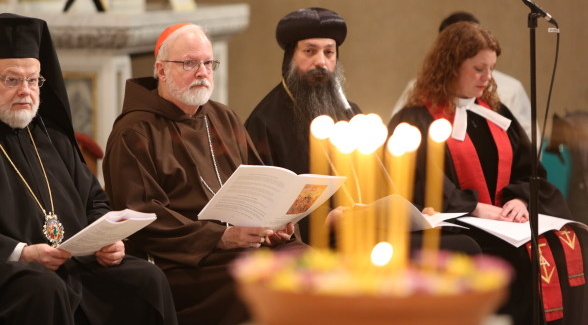
Week of Prayer for Christian Unity
 The Week of Prayer for Christian Unity has been celebrated for 110 years. It was an ecumenical initiative held between the feasts of Saint Peter on January 18th and the Conversion of Saint Paul on January 25th. It was first promoted by Reverend Paul Wattson, founder of Graymoor in New York. In the Southern Hemisphere it is celebrated during the Season of Pentecost. The event has a precedent in Scotland, in 1740 with a Pentecostal Evangelical preacher who invited all to a day of prayer for unity. The same invitation was extended by the Ecumenical Patriarch of Constantinople, Joachim III in 1902. In 1894 Pope Leo XIII encouraged an Octave of Prayer for Unity. During the Second Vatican Council the Catholic Church highlighted prayer as the soul of the Ecumenical Movement. In 1966, the Pontifical Council for the Promotion of Christian Unity and the Faith Constitution of the Ecumenical Council of the Church called for the joint preparation of the official texts for the Week of Prayer, a task that has been entrusted for over thirty years to different local ecumenical teams. For 2018, the Churches of the Caribbean were chosen, and the team was comprised of Roman Catholics, Baptists, Anglicans, and Methodists. The Focolare Movement is committed to promoting this important event, which is in accordance with Jesus’s prayer to the Father “that all may be one” (Jn 17:21).
The Week of Prayer for Christian Unity has been celebrated for 110 years. It was an ecumenical initiative held between the feasts of Saint Peter on January 18th and the Conversion of Saint Paul on January 25th. It was first promoted by Reverend Paul Wattson, founder of Graymoor in New York. In the Southern Hemisphere it is celebrated during the Season of Pentecost. The event has a precedent in Scotland, in 1740 with a Pentecostal Evangelical preacher who invited all to a day of prayer for unity. The same invitation was extended by the Ecumenical Patriarch of Constantinople, Joachim III in 1902. In 1894 Pope Leo XIII encouraged an Octave of Prayer for Unity. During the Second Vatican Council the Catholic Church highlighted prayer as the soul of the Ecumenical Movement. In 1966, the Pontifical Council for the Promotion of Christian Unity and the Faith Constitution of the Ecumenical Council of the Church called for the joint preparation of the official texts for the Week of Prayer, a task that has been entrusted for over thirty years to different local ecumenical teams. For 2018, the Churches of the Caribbean were chosen, and the team was comprised of Roman Catholics, Baptists, Anglicans, and Methodists. The Focolare Movement is committed to promoting this important event, which is in accordance with Jesus’s prayer to the Father “that all may be one” (Jn 17:21).
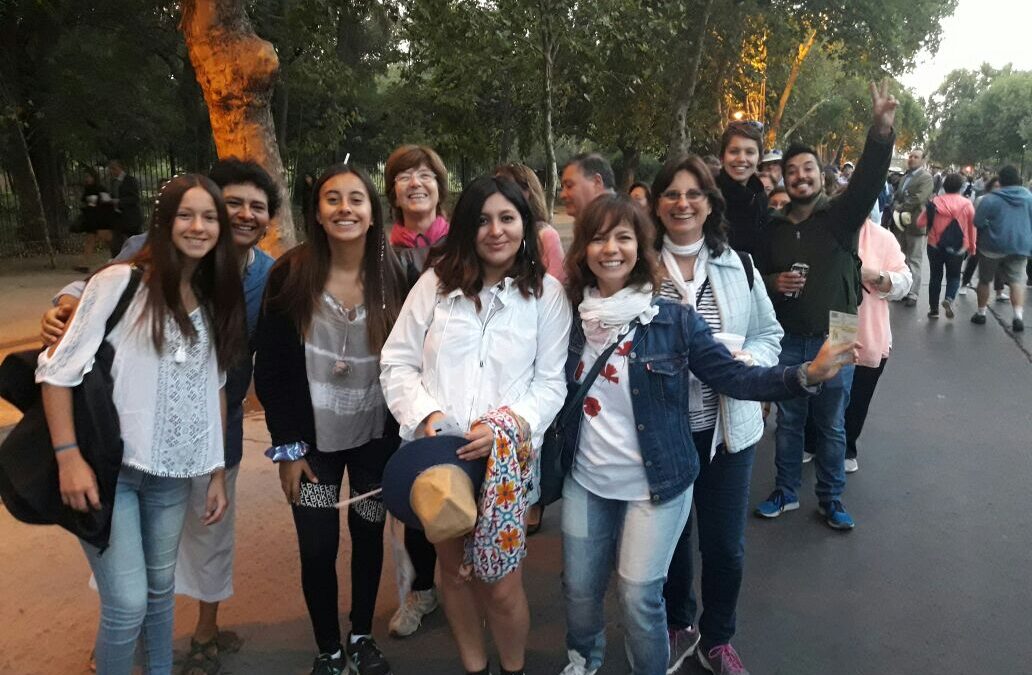
The enthusiasm of the young people of Chile
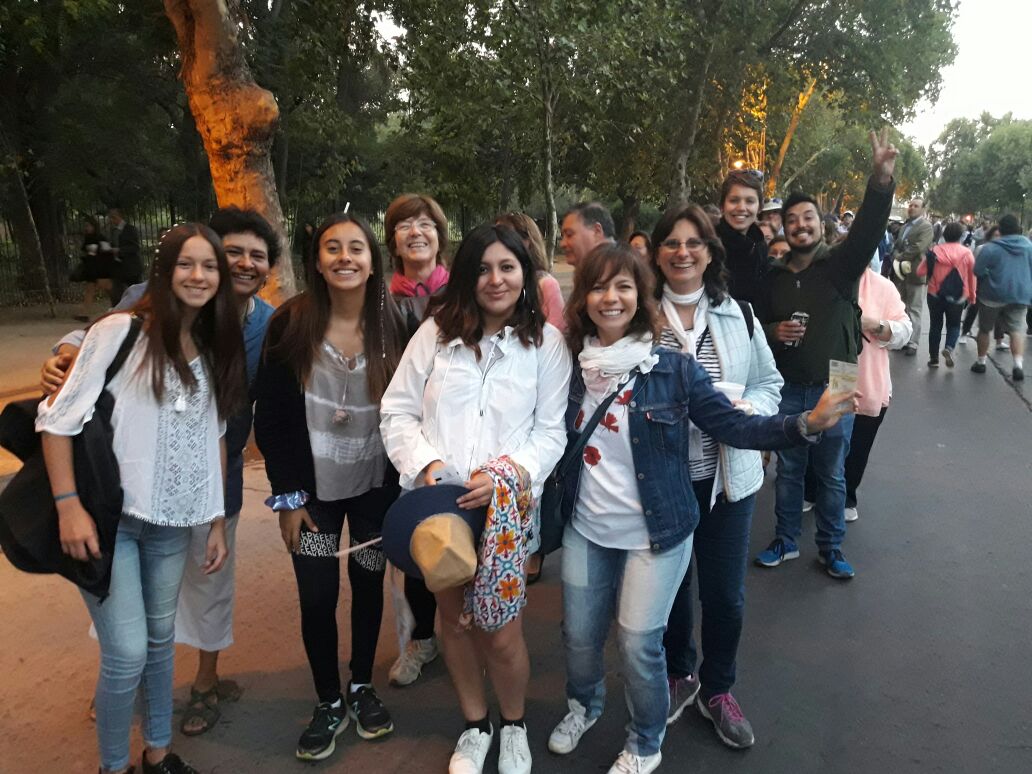 It is the second day of Pope Francis in “their” land, after he landed in the evening of 15 January at the Airport of Santiago, to start a journey that in two weeks will touch base with two South American countries. “I want to look into your eyes, face to face,” he had said before setting out on his journey. About 15,000 volunteers are at work, offering their talents, time and commitment, to provide a fundamental service in the various events that will be held during the first lap in Chile. “This experience breaks the limits of a task we are entrusted with: in fact, it is the sincere expression of a commitment which will mark our lives forever,” some of them said. “In contrast with the apathy expressed by some of the media, the youths of Chile offer a note of enthusiasm and emotion for the Pope’s arrival,” well expressed by the song composed by Claudio González Carrasco, of the Focolare community in Temuco (southern Chile). Welcomed by the outgoing President, Michelle Bachelet, the Pope then proceeded towards the Apostolic Nunciature, where he will stay during this first lap. Among the many fundamental moments of the journey in Chile, will be the meeting with Chilean mapuches populations, who are battling to safeguard their own identity, and the Mass of 17 January for the indigenous populations of the region.
It is the second day of Pope Francis in “their” land, after he landed in the evening of 15 January at the Airport of Santiago, to start a journey that in two weeks will touch base with two South American countries. “I want to look into your eyes, face to face,” he had said before setting out on his journey. About 15,000 volunteers are at work, offering their talents, time and commitment, to provide a fundamental service in the various events that will be held during the first lap in Chile. “This experience breaks the limits of a task we are entrusted with: in fact, it is the sincere expression of a commitment which will mark our lives forever,” some of them said. “In contrast with the apathy expressed by some of the media, the youths of Chile offer a note of enthusiasm and emotion for the Pope’s arrival,” well expressed by the song composed by Claudio González Carrasco, of the Focolare community in Temuco (southern Chile). Welcomed by the outgoing President, Michelle Bachelet, the Pope then proceeded towards the Apostolic Nunciature, where he will stay during this first lap. Among the many fundamental moments of the journey in Chile, will be the meeting with Chilean mapuches populations, who are battling to safeguard their own identity, and the Mass of 17 January for the indigenous populations of the region.
A bigger family
“Various circumstances had pointed out that we could no longer remain in Venezuela, our country. Armando had been fired and a letter from Perù had sparked a glimmer of hope. It seemed that God was calling us there.” With these words Ofelia and Armando started to recount their adventure, forced to leave behind their already adult sons Daniel and Felix, to find a home, work, and a future for all in another country. “Without a dime we started to prepare ourselves. We also received a sum to allow us to cover the costs of the journey. It’s traumatic to leave one’s own country. Our daughter had already left for Peru in October, but at the frontier they had taken away her PC and money. On this premise we headed off for the border.” Armando and Ofelia left everything but brought along a photo of Domenico Mangano: a person of great faith, committed to the Focolare community in central Italy, and a pugnacious politician who died in 2001 and for whom cause for beatification had been initiated recently. “We asked him to take care of our journey.” «Crossing the border incredibly did not cause any particular difficulties. We crossed over almost as if we were invisible, and a young woman, like an angel, instructed us on what we had to do. After just one check on our baggage we passed, without the pressing crowd that had amassed at the border the days before. We could hardly believe it. We thought that it was due to the help of Domenico, and once again we entrusted ourselves to him. Due to a slight mishap we arrived in Quito and spent the night in the women’s Focolare house. Some members of the local community brought us to dinner and a walk in the day time. After a journey of seven days, we finally got to Lima.” In Lima, Ofelia and Armando were hosted in the house of Elba and Mario, besides receiving clothing, a food bag and cash. “We visited both focolare houses, and went to Centro Fiore to help prepare Christmas lunch which the communities of Lima offer to girls saved from white slavery, and are guests of the nuns. They were happy. We also met again, Silvano and Nilde, who had left Venezuela before us. Everyone received us with love, and we felt like a real family.” “On Christmas day a family invited us to their home and after lunch we went for a walk. Now we pray to the Lord to help us find a house and a job. We have undergone so many experiences and we know that Domenico and Chiara Lubich continue to help us from above. “One night, while we were sleeping,” continued Ofelia “a barefooted girl holding a babe in her arms knocked on our door. It was not our house, but we decided to open just the same, since it seemed that Jesus himself was asking our help. It was the neighbour on the floor above, whose husband was drunk and maltreating her. She told us that up until then she had never dared to knock on another door of the condominium, but that she had seen us some day earlier while we were going down the stairs, and in her heart thought that she could trust us. And now there she was before us. Armando went to speak to her husband, while I tried to console the young woman. A few days later she was able to return to her apartment and now Armando and that man are continually in contact. We are overjoyed in having loved Jesus in that family. As to us, God will guide us to understand what he wants from us.” But with a renewed hope: “We are certain that the detachment from our family, our country and friends, will bear fruit.” Gustavo Clariá
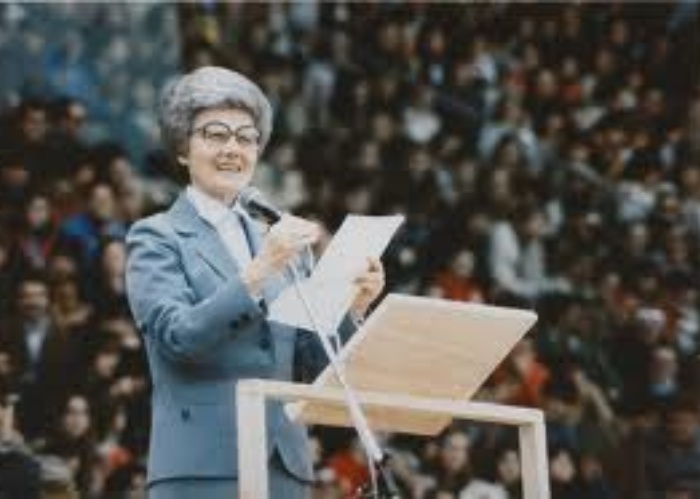
I was at Genfest 1980
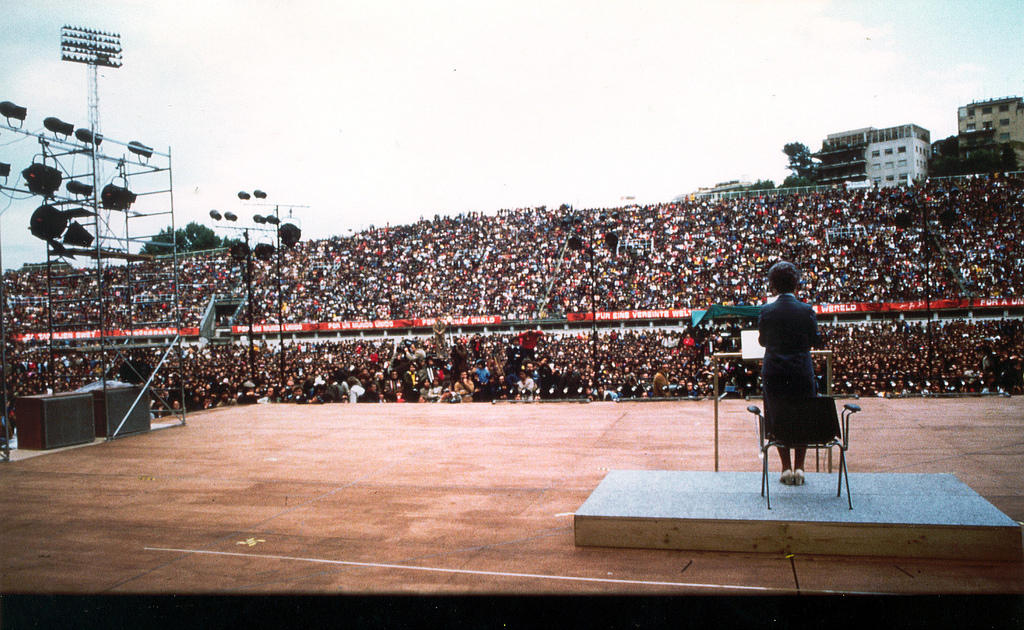 I was born and grew up in Macau, a former Portuguese colony is now part of Continental China, where I got to know the Ideal of unity at a Mariapolis. Macau is a small city that can be visited in few hours, so the invitation to take part in a Genfest in Rome, with thousands of young people from around the world – really appealed to me, even though I didn’t have least idea of what it was. We had just begun to live this ideal of unity, with other young people and a few women focolarini who often came to visit us and bring us the news and the concrete life of the Gospel that is lived in the Movement around the world. That world that I had known only through my geography lessons, but that now, with the Ideal of unity, had become smaller and nearer. Just arrived in Rome, several days earlier, we found ourselves in a house with lots of young people from Philippines, Hong Kong, Australia, Latin America…. How could I live with all of them? We Asians were a bit shy and, not knowing the language, we didn’t know how to communicate. Instead, there was no need to talk in order to understand one another, because we had same joy in common and from the very first, there as a very strong mutual understanding among all of us. After only a couple days, we already felt like we were one family. Then we learned that the title of the Genfest was: For A United World. The Genfest was going to be held at an open stadium, so I remember us praying a lot that it wouldn’t rain. Hundreds of buses from Europe were awaiting us. We learned that Chiara Lubich (whom I had not yet met in person) wanted the Genfest to be a moment of God. More than to the fest, Chiara brought us to the essential.
I was born and grew up in Macau, a former Portuguese colony is now part of Continental China, where I got to know the Ideal of unity at a Mariapolis. Macau is a small city that can be visited in few hours, so the invitation to take part in a Genfest in Rome, with thousands of young people from around the world – really appealed to me, even though I didn’t have least idea of what it was. We had just begun to live this ideal of unity, with other young people and a few women focolarini who often came to visit us and bring us the news and the concrete life of the Gospel that is lived in the Movement around the world. That world that I had known only through my geography lessons, but that now, with the Ideal of unity, had become smaller and nearer. Just arrived in Rome, several days earlier, we found ourselves in a house with lots of young people from Philippines, Hong Kong, Australia, Latin America…. How could I live with all of them? We Asians were a bit shy and, not knowing the language, we didn’t know how to communicate. Instead, there was no need to talk in order to understand one another, because we had same joy in common and from the very first, there as a very strong mutual understanding among all of us. After only a couple days, we already felt like we were one family. Then we learned that the title of the Genfest was: For A United World. The Genfest was going to be held at an open stadium, so I remember us praying a lot that it wouldn’t rain. Hundreds of buses from Europe were awaiting us. We learned that Chiara Lubich (whom I had not yet met in person) wanted the Genfest to be a moment of God. More than to the fest, Chiara brought us to the essential.
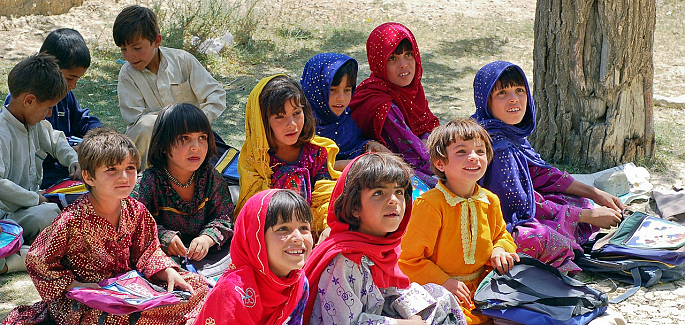
Chiara Lubich: love is practical

Foto: Pixabay
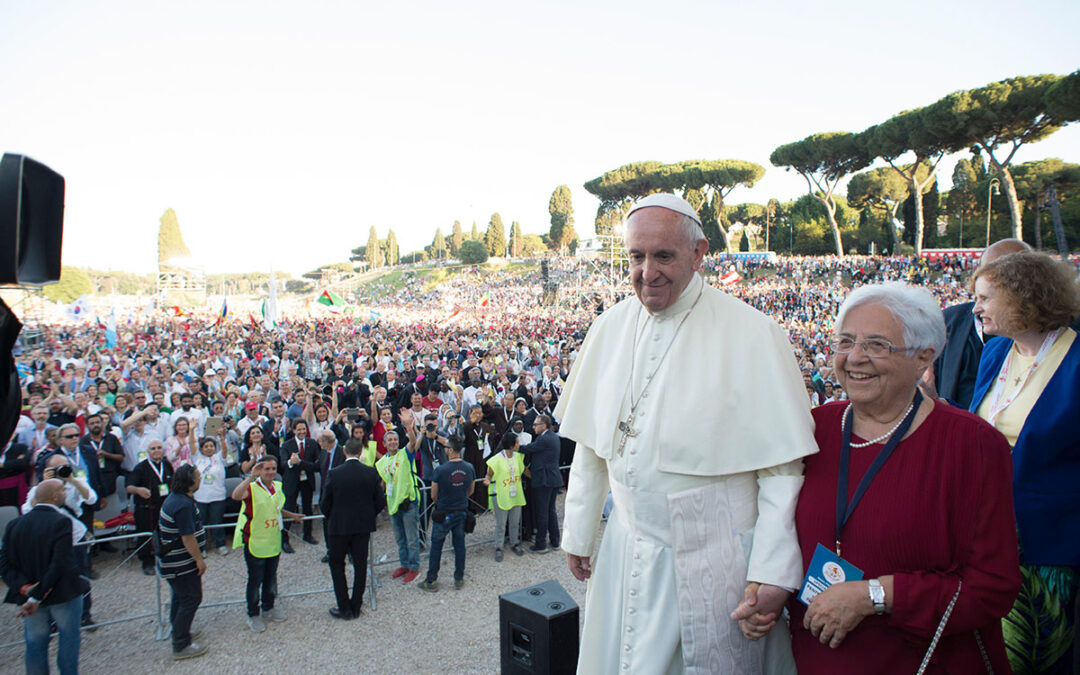
Maria Voce: “Space, not payback”
The special end-of-the-year article-interview of the magazine edited by San Paolo entitled, “Women, the future of the Church?” by Alberto Chiara is a two-page article with many photos. But during the interview the discussion broadens, ranging from the role of the woman in the Church to the challenges opened by the pontificate of Francis to go towards the poor and the marginalized, up to the commitment to dialogue with the new generations, which will be the focus of a dedicated Synod in October, to be preceded by important pre-Synod events. Will the women save the Church? “Jesus Christ has already saved the Church,” Maria Voce briefly replied. “What counts is what the men and women of the various communities do.” The journalist prodded on, recalling the recent appointment of Pope Francis, in two key Departments – that for the lay and the one for family and life – of two women, Linda Ghisoni and Gabriella Gambino, both married and with children, (the first, a university professor and magistrate of the Court for marriage annulment proceedings in Lazio, and the second, a professor of Bioethics and Jurisprudence at the Roman University of Tor Vergata and of Sciences of Marriage and the Family at the John Paul II Pontifical Institute). “It seems that Pope Francis has the firm intention of affirming an authentic, real rapport of complementarity between woman and man,” Maria Voce replied. “Of course, this rapport has always existed. In the beginning God created man, male and female. He created two essentially different beings which, together, make up humanity.” After so much machismo is this the payback time of women? «Pope Francis wants the women, like men, to have the possibility to express themselves within the Church, also taking on roles of greater responsibility, but without crushing man, but rather, by bringing out their own talents, that particular capacity for regeneration and maternity. No payback, therefore, even if women up to now have not had enough room, in the Church as well as in society.” As to the Church’s state of health today, Maria Voce commented: “I am really happy to live in our time, with this Church. There couldn’t be a better moment.” And added: “The characteristic trait which is most convincing to me is the “basic serenity that marks the rapport between the Pope and the people of God. Francis is a Pope who is always generous in welcoming others, ready to open out to and attentive in understanding the difficulties of humanity. He doesn’t hide the difficulties of the moment, also within the Church, but every era has its difficulties, and our days are not exempted to this rule. Several times I have thought of how much Pope Bergoglio must suffer in feeling misunderstood, and criticized severely for his words interpreted out of context…” Having to choose, first one, then two words that define the current pope, the Focolare president indicated “charity” and “truth,” but specified: “One does not exclude the other. Bergoglio knows that some things he says or does may bother some people and may not be fully understood by all. But he goes on, driven by love, to improve and correct certain situations.” With regard to the sectors preferred by the Pope, Emmaus observed: “The insistent focus of the Pope on the poor, the sick, and the marginalized, and his capacity to bend down towards those who make mistakes, does not make him overlook other categories.” In the face of a Church that is always more open to dialogue on the same level with all, Maria Voce expressed a dream: “That the Pope promote a day of common prayer and invite the heads of the other Churches, Orthodox, Anglicans, Lutheran, Methodists, Baptists… to pray together once a year, during the Week of Prayer for the Unity of Christians, or at another time. I think that if the faithful see their heads pray together habitually, they would discover the possibility of unity in diversity.” The end of the interview was dedicated in a phrase to the youth, to whom the Church intends to dedicate itself this year with particular attention: “We adults should listen to them.”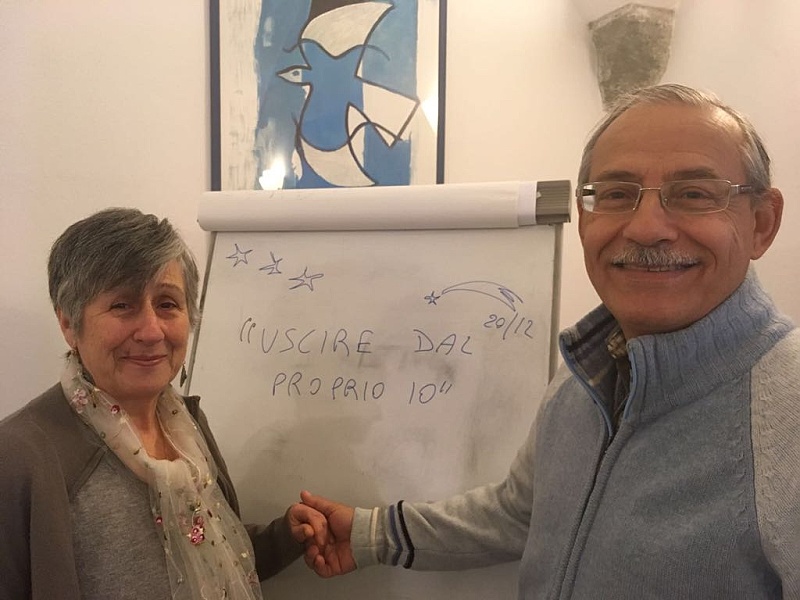
Family life: The challenge of Rosy and Leo
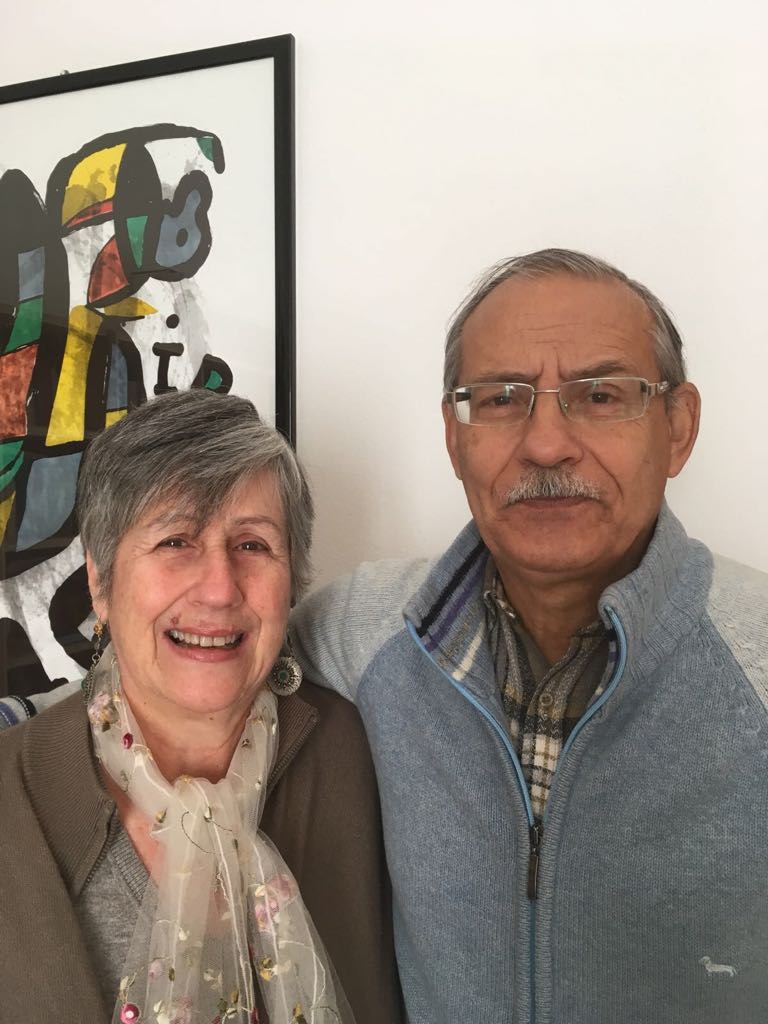 Rosy and Leo Prisco are from Naples, Italy. He’s a railroad worker and she’s an accountant. They’re retired. Their story began 40 years ago at a time when couples who opted for a civil ceremonies were very few. They were agnostics and went to city hall for their wedding. They were so different from each other that no one was betting on their staying together. At the birth of their first child they had a doubt: Should they baptize him or not? They spoke with the parish priest. “For us, adamant Marxists and agnostics, it was unthinkable that a priest should welcome us in such a warm, friendly and open way. Father Salvatore didn’t express a single judgement towards us regarding our situation as a couple, but he became a friend to the point that we were even able to tell him about our constant fighting. Yes, because it was easy to be a revolutionary when we were outside the house, inside the house I was the one doing all the cooking and cleaning. I remember how – to get Leo to listen to me (I was a bit crazy, but at least it worked sometimes!) – I’d do what we did when we held protests on the town square: I’d hang signs on the kitchen walls that said: ‘You’re a tyrant,’ ‘You’re treading on the equality of women,’ and so on. Father Salvatore introduced us to other couples. They were also having problems but had learned to dialogue, and they also had a secret: apologizing and beginning again. We began doing the same, which helped to improve our relationship one day at a time. Meanwhile, Father Salvatore agreed to celebrate Francesco’s baptism and, six years later, the baptism of Nunzio.” “Thanks to Father Salvatore and the other families,” Leo explains, “we had an encounter with God and with God’s love and, little by little, the desire grew in us to be children in accordance with God’s heart.” We came to realize that even though we had turned our backs on him, He never stopped speaking to us, because He is Love. Just as He had in 1993, inside a mortuary room at a hospital. There, by chance, we had come across the pain of two parents whose little angel, a boy of three years, had died. That was a powerful message to us. What if that happened to us? They were the same parents that we met again at a Focolare meeting, invited by Father Salvatore. Yet, from that pain of theirs three family homes were opened for children in difficulty.”
Rosy and Leo Prisco are from Naples, Italy. He’s a railroad worker and she’s an accountant. They’re retired. Their story began 40 years ago at a time when couples who opted for a civil ceremonies were very few. They were agnostics and went to city hall for their wedding. They were so different from each other that no one was betting on their staying together. At the birth of their first child they had a doubt: Should they baptize him or not? They spoke with the parish priest. “For us, adamant Marxists and agnostics, it was unthinkable that a priest should welcome us in such a warm, friendly and open way. Father Salvatore didn’t express a single judgement towards us regarding our situation as a couple, but he became a friend to the point that we were even able to tell him about our constant fighting. Yes, because it was easy to be a revolutionary when we were outside the house, inside the house I was the one doing all the cooking and cleaning. I remember how – to get Leo to listen to me (I was a bit crazy, but at least it worked sometimes!) – I’d do what we did when we held protests on the town square: I’d hang signs on the kitchen walls that said: ‘You’re a tyrant,’ ‘You’re treading on the equality of women,’ and so on. Father Salvatore introduced us to other couples. They were also having problems but had learned to dialogue, and they also had a secret: apologizing and beginning again. We began doing the same, which helped to improve our relationship one day at a time. Meanwhile, Father Salvatore agreed to celebrate Francesco’s baptism and, six years later, the baptism of Nunzio.” “Thanks to Father Salvatore and the other families,” Leo explains, “we had an encounter with God and with God’s love and, little by little, the desire grew in us to be children in accordance with God’s heart.” We came to realize that even though we had turned our backs on him, He never stopped speaking to us, because He is Love. Just as He had in 1993, inside a mortuary room at a hospital. There, by chance, we had come across the pain of two parents whose little angel, a boy of three years, had died. That was a powerful message to us. What if that happened to us? They were the same parents that we met again at a Focolare meeting, invited by Father Salvatore. Yet, from that pain of theirs three family homes were opened for children in difficulty.”  For Rosy and Leo, who in 1995 said their yes in the Sacrament of Marriage, finding Gino and Elisa within the context of the Focolare appeared to be no small coincidence. “Right away a bond was established,” Rosy recounts, “which led us to offer our full-time help as foster parents in a home for families who came to stay at Casa Sorriso for longer or shorter time periods, depending on their family situations.” “This experience,” Leo confides, “gave us an awareness of being merely instruments in God’s hands, and being able to be of help wasn’t a matter of having any special gifts. Today, as then, we’re not the perfect family. We just want to place ourselves at the service of Jesus in the people we meet. Like those little Russian children that we took into our home: a relationship that continues until today now that they’re adults.” In the beginning of 2017, already retired, they wanted to celebrate the 50th anniversary of the New Families Movement by being actively involved in some of the celebratory events. They also took part in a meal for young people. The year came to an end, but not their determination to give more. Last October they moved to Loppiano, planning to stay until July and be able to follow things more closely: practical things like transportation for the families that go there from around the world.
For Rosy and Leo, who in 1995 said their yes in the Sacrament of Marriage, finding Gino and Elisa within the context of the Focolare appeared to be no small coincidence. “Right away a bond was established,” Rosy recounts, “which led us to offer our full-time help as foster parents in a home for families who came to stay at Casa Sorriso for longer or shorter time periods, depending on their family situations.” “This experience,” Leo confides, “gave us an awareness of being merely instruments in God’s hands, and being able to be of help wasn’t a matter of having any special gifts. Today, as then, we’re not the perfect family. We just want to place ourselves at the service of Jesus in the people we meet. Like those little Russian children that we took into our home: a relationship that continues until today now that they’re adults.” In the beginning of 2017, already retired, they wanted to celebrate the 50th anniversary of the New Families Movement by being actively involved in some of the celebratory events. They also took part in a meal for young people. The year came to an end, but not their determination to give more. Last October they moved to Loppiano, planning to stay until July and be able to follow things more closely: practical things like transportation for the families that go there from around the world.

